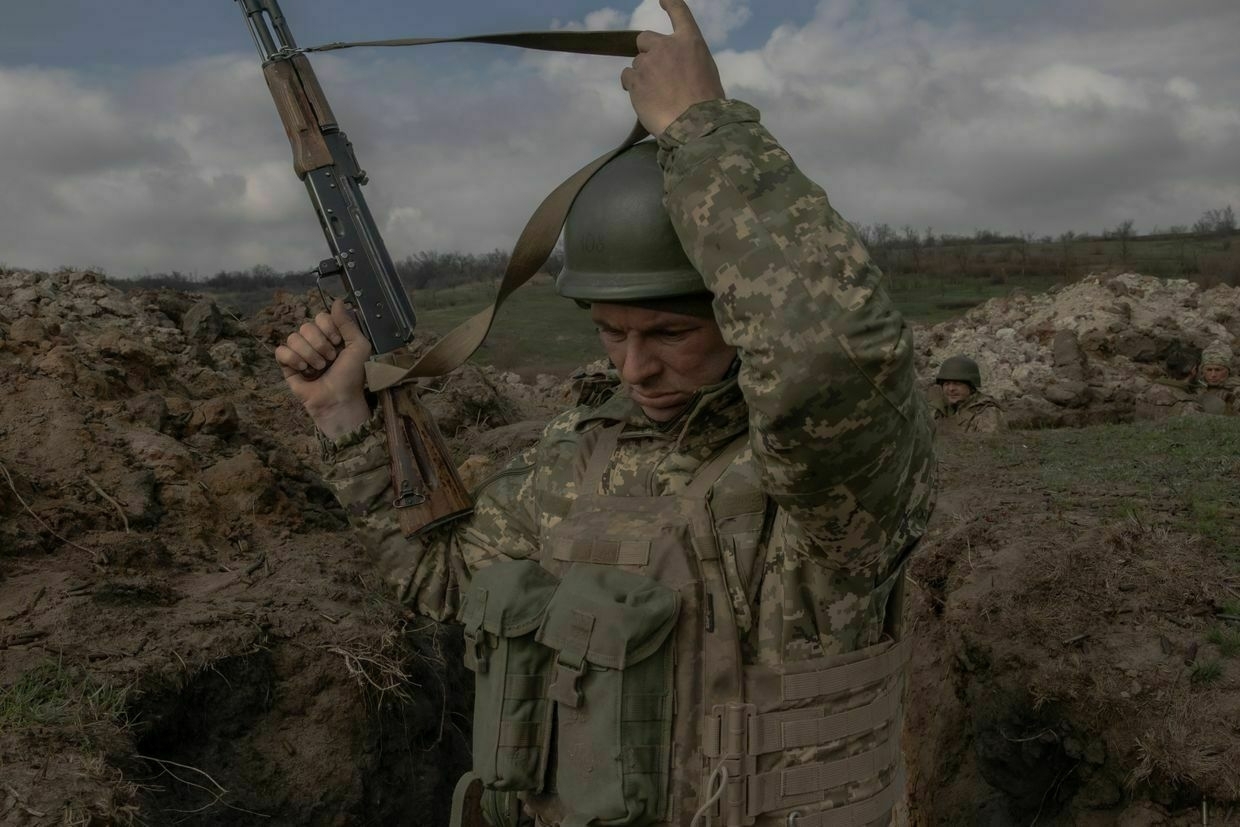-
Detention, pressure, threats — US pastor in Ukraine tells the Kyiv Independent about his encounter with Russians
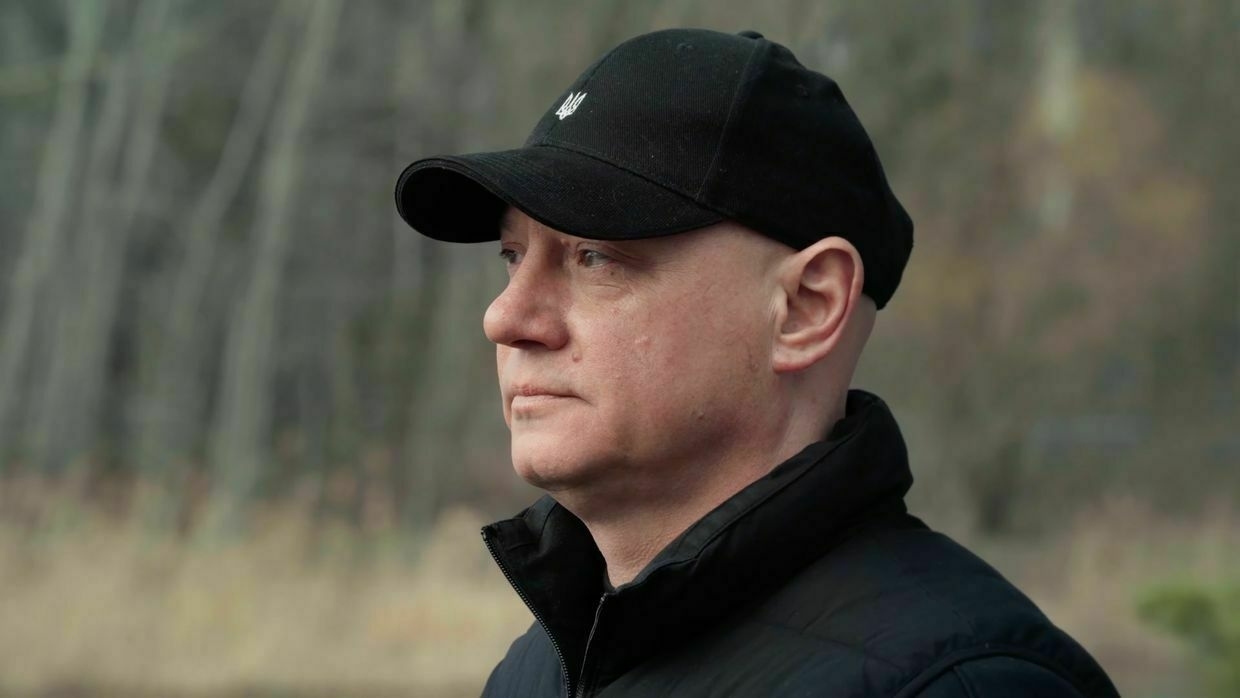
Dmytro Bodyu, a U.S. citizen and the pastor of the “Word of Life” Pentecostal Church in Russian-occupied Melitopol, was detained by Russians in March 2022. During his detention, he was accused of working for the CIA and received death threats from the Russian military.
Only an intervention by the U.S. State Department saved him.
“On the morning of March 19, several military vehicles and a couple of civilian cars stopped outside our home. Around 15 Russian soldiers were in full gear, wearing balaclavas and carrying shields… They treated me like a Mexican drug lord. They jumped over the fence, went through neighboring yards, and entered from all sides at once,” Bodyu recalls in an in-depth interview for the Kyiv Independent’s new investigative documentary “No God But Theirs."
The pastor and his family were warned by the U.S. Embassy and given advice to leave Melitopol one month before the Russian full-scale invasion of Ukraine started. But Bodyu decided he could not abandon his Church.
During his detention, Russian special services repeatedly accused him of working for the CIA and demanded that he disclose his call sign and his “handler from Langley,” he says.
“It felt like being in a psychiatric ward — you’re an absolutely normal, healthy person, but they try to convince you that you’re a schizophrenic, you just don’t know it, and that soon you’ll realize you’re exactly where you should be,” Bodyu recalls.
Meanwhile, Russian soldiers threatened to kill him.
They took whatever they wanted. There are no laws; nothing functions in the occupied territories.
"The soldiers said: 'We have orders to shoot you. Now, we will question you. We know who you are, what you are. You're a CIA employee, a spy. You gave away our positions, our people died because of you. You led protests in the city, you're giving money to the Armed Forces of Ukraine, you lead the partisans here' — things like that," the pastor says.
After eight days, his time in detention was cut short.
Russia’s persecution of Ukrainian clergy is part of an organized genocidal campaignIn 1953, Polish-American lawyer Raphael Lemkin, the man who coined the term “genocide,” wrote a text titled Soviet Genocide in Ukraine. In it, Lemkin spoke not only about the Holodomor — the man-made famine organized in Ukraine by Stalin in 1932–1933 that claimed the lives of around 4 million peopleThe Kyiv IndependentDanylo Mokryk
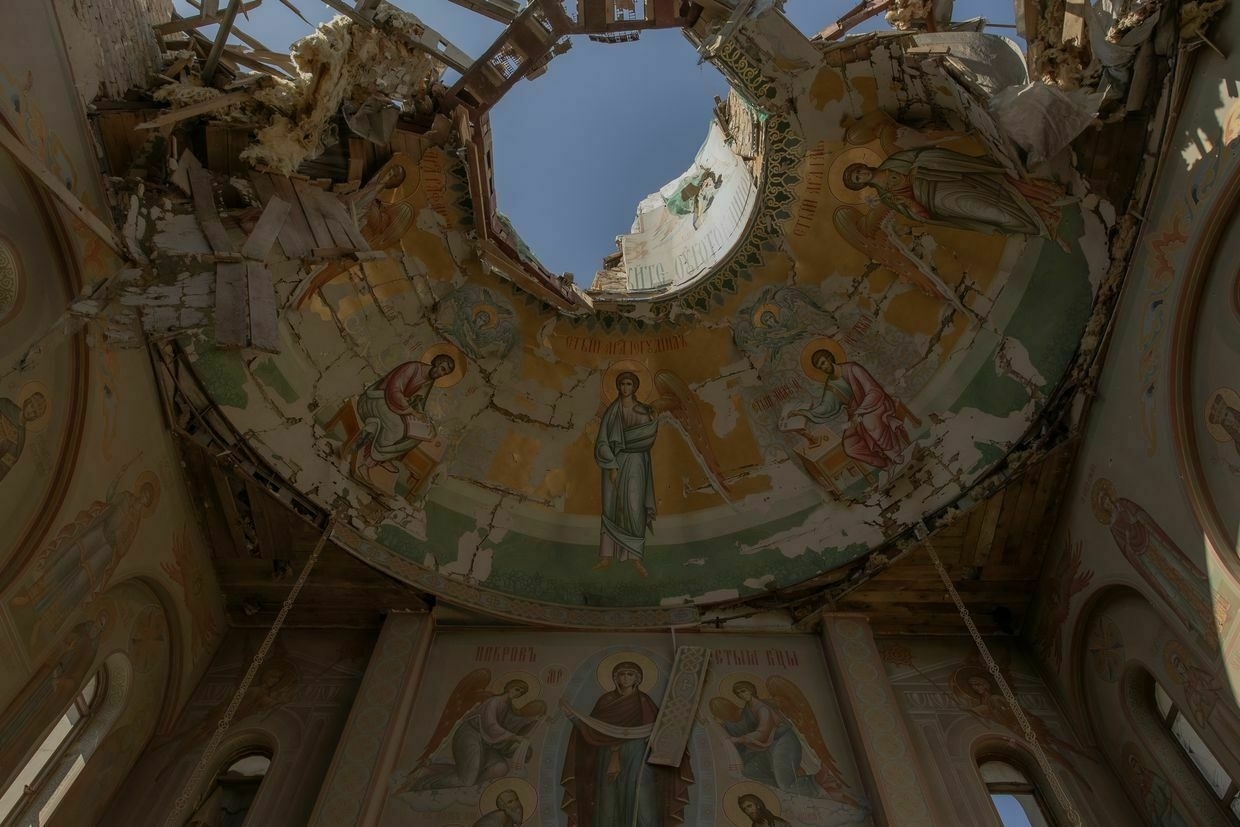
"We had an interrogation (with an FSB operative) during the day, and in the evening, he comes in and says, 'Well, that's it, you're going home.' And I'm like, 'What do you mean? That's unexpected.' He says, 'It was unexpected for us too, believe me.' I ask, 'So who decided I should go home?' He says, 'They decided up top.' I say, 'What do you mean? God decided?' He says, 'No, Moscow decided to release you.'"
After his release, Bodyu and his family left Melitopol.
They are now living near Kyiv. In Melitopol, his Pentecostal Church "Word of Life" was officially banned by the Russian occupation authorities a day after Christmas — on Dec. 26, 2022. The Church's building is now occupied by a department of the Russian Ministry of Internal Affairs. Russian authorities also confiscated all of Bodyu's businesses (he owned seven cafes and restaurants in Melitopol).
"I call them pirates. That's what they are — pirates. They took whatever they wanted. There are no laws; nothing functions in the occupied territories." Bodyu says.
In the investigative documentary "No God But Theirs," the Kyiv Independent's journalists also identified several officials implicated in the persecution of Ukrainian Christians in Melitopol.
Besides Dmytro Bodyu's Church, the Russian-occupation authorities also banned several other Churches — Melitopol's largest Protestant Church "New Generation," the Baptist Church "Grace" and the Ukrainian Greek Catholic Church subordinated to the Vatican.
They were stripped of all property, and their buildings now housed different Russian institutions.
-
‘A serious crisis’ — pro-Russian leader in Bosnia threatening peace in the Balkans
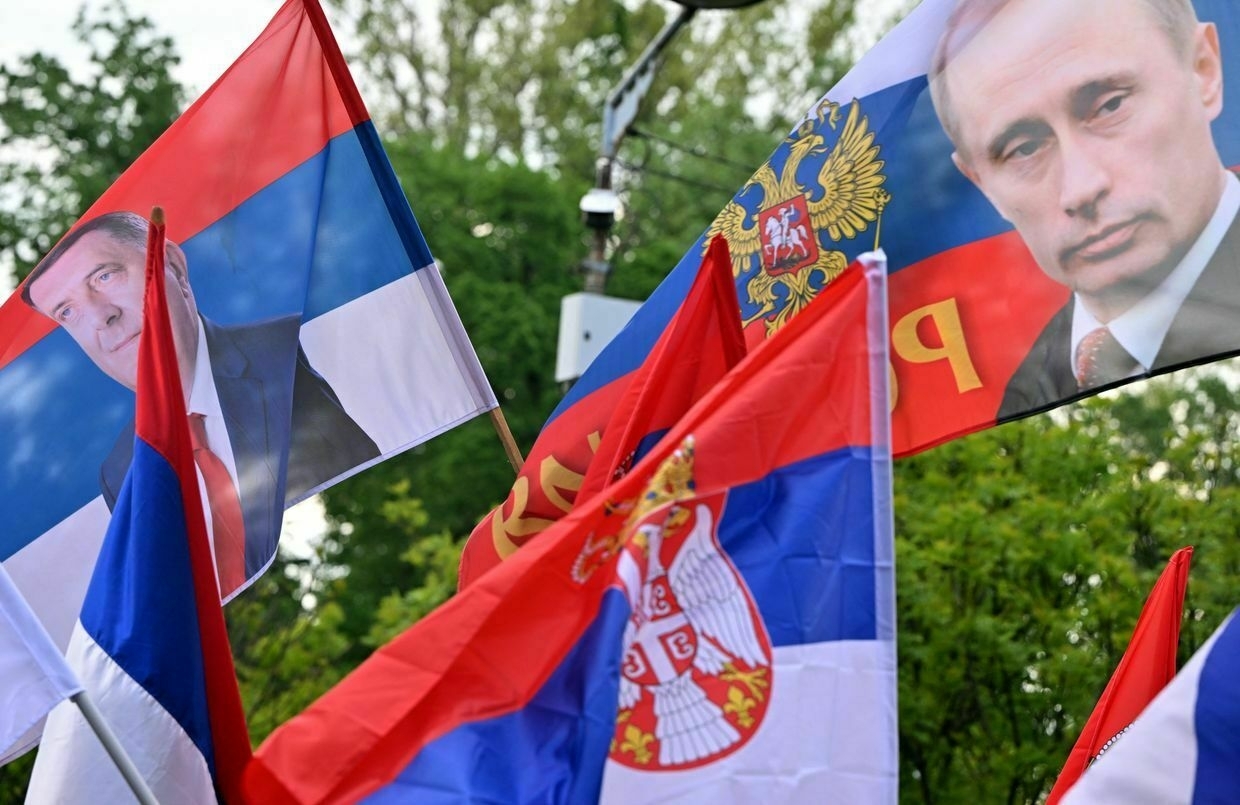
BANJA LUKA, Bosnia and Herzegovina — When a court convicted Bosnian Serb leader Milorad Dodik of defying an international peace envoy in February, it was supposed to end his career in politics.
He faced not only jail time, but a ban on holding public office.
But three months later, little has changed.
Dodik remains at the helm of Republika Srpska, one of two autonomous entities that make up the nation of Bosnia and Herzegovina.
Despite an international warrant for his arrest, Dodik has repeatedly visited one of his biggest backers, Russian President Vladimir Putin, in Moscow, using those visits to fan the flames of ethnic separatism at home.
Dodik’s embrace of the Russian strongman emphasizes the Kremlin’s outsized role in destabilizing Bosnia and Herzegovina.
But it also reflects a local struggle: After years of growing tensions, Dodik is now in open confrontation with the central government and using Russia to bolster his position.
Experts say that risks dragging the country into the greatest crisis since it was torn apart by civil war and genocide in 1992-1995.
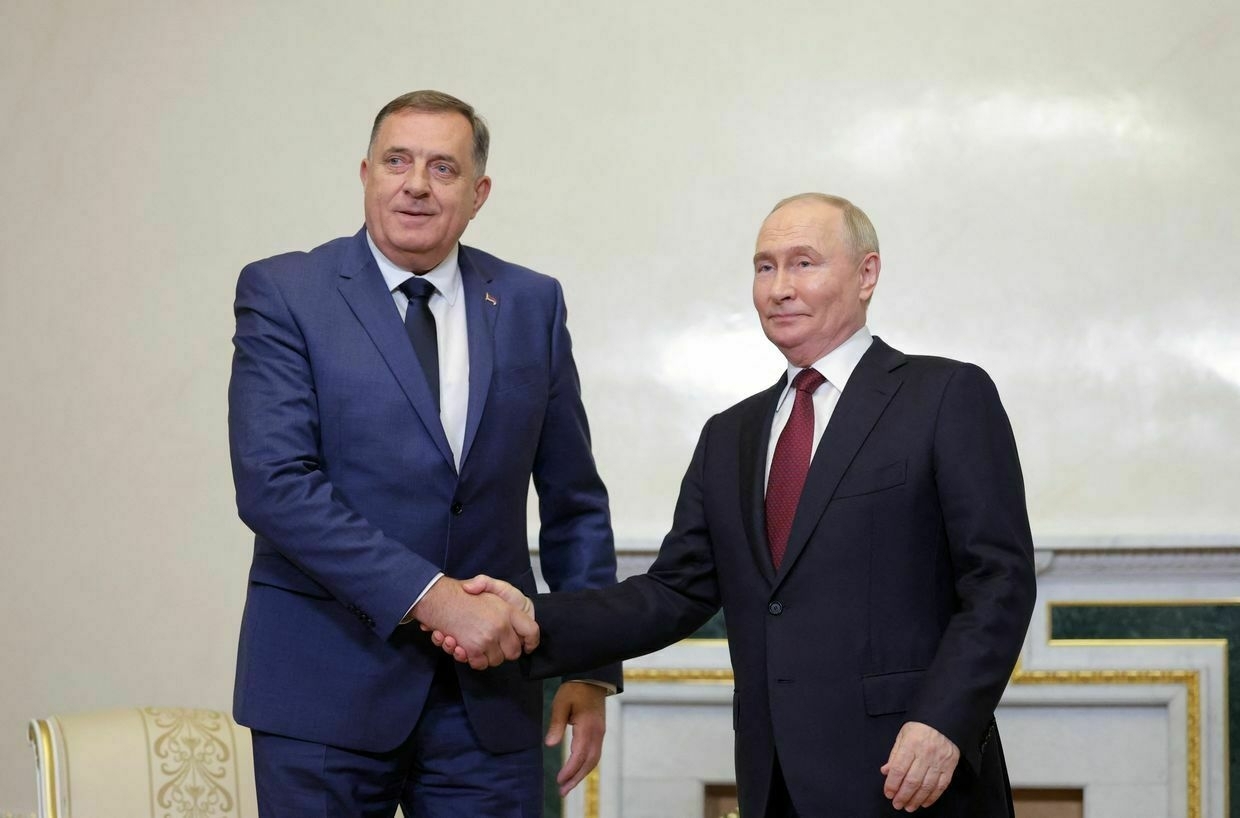
Russia’s President Vladimir Putin (R) shakes hands with Republika Srpska President Milorad Dodik (L) during a meeting on the sidelines of the Saint Petersburg International Economic Forum in Saint Petersburg, Russia, on June 6, 2024. (Anton Vaganov / Pool / AFP via Getty Images) “The situation is tense and unpredictable,” said Nebojsa Vukanovic, a member of the political opposition in Republika Srpska.
Dodik’s office did not respond to a request for comment by publication time.
Moscow’s man in the BalkansThis year alone, Dodik has already made two visits to Russia.
He first turned up in Moscow in March. Then, he returned on May 9, as Russia marked Victory Day.
In an interview with the Russian state-owned news agency TASS, he described Putin as a “person who understands perfectly well where the world is” and praised the invasion of Ukraine.
Though the trips were international, experts believe the motivation is domestic.
With roughly 1.2 million people, Republika Srpska comprises a third of the population of Bosnia and Herzegovina. The vast majority of the region’s residents are ethnic Serbs.
Dodik was first elected the region’s prime minister in 1998. Since then, he has come to dominate its politics.
During that time, he has often relied on threats of secession to garner support among the region’s ethnic Serb majority, according to Aleksandar Savanovic, a political sciences professor at the University of Banja Luka, the regional capital.
Until 2022, such threats were “a good way to win elections without real plans to create Republika Srpska as an independent state,” he said.
Then, around the time when Russia launched its full-scale invasion of Ukraine, Dodik saw an opening to solidify Moscow’s support for his regime.
“Bosnians very well understand what’s happening in Ukraine because we went through the same thing in the 1990s.”
Savanovic suggests the Bosnian Serb leader believed the Kremlin would look favorably on a more brazen secessionist policy. “It was a good moment to protect his power,” he said.
Since then, Dodik has held multiple meetings with Putin and has become one of the Russian invasion’s most vocal supporters in Europe. Much to the chagrin of Western leaders, his comments regularly echo false Kremlin talking points – including the “extermination of the Russian population in Ukraine” and Ukraine’s “bombings” in the country’s eastern regions.
Ismet Fatih Cancar, a former advisor to the minister of security of Bosnia and Herzegovina and an expert on international security in the Balkans, emphasizes that similar ethnic allegations of repressions against Bosnia’s Serb population underpin Dodik’s secessionist aims.
Those claims date back to the 1990s, when Serb nationalists’ attempt to preserve an ethnically homogenous state fueled a civil war and ethnic cleansing in Bosnia and Herzegovina.
But Cancar believes they are “completely out of reality.”
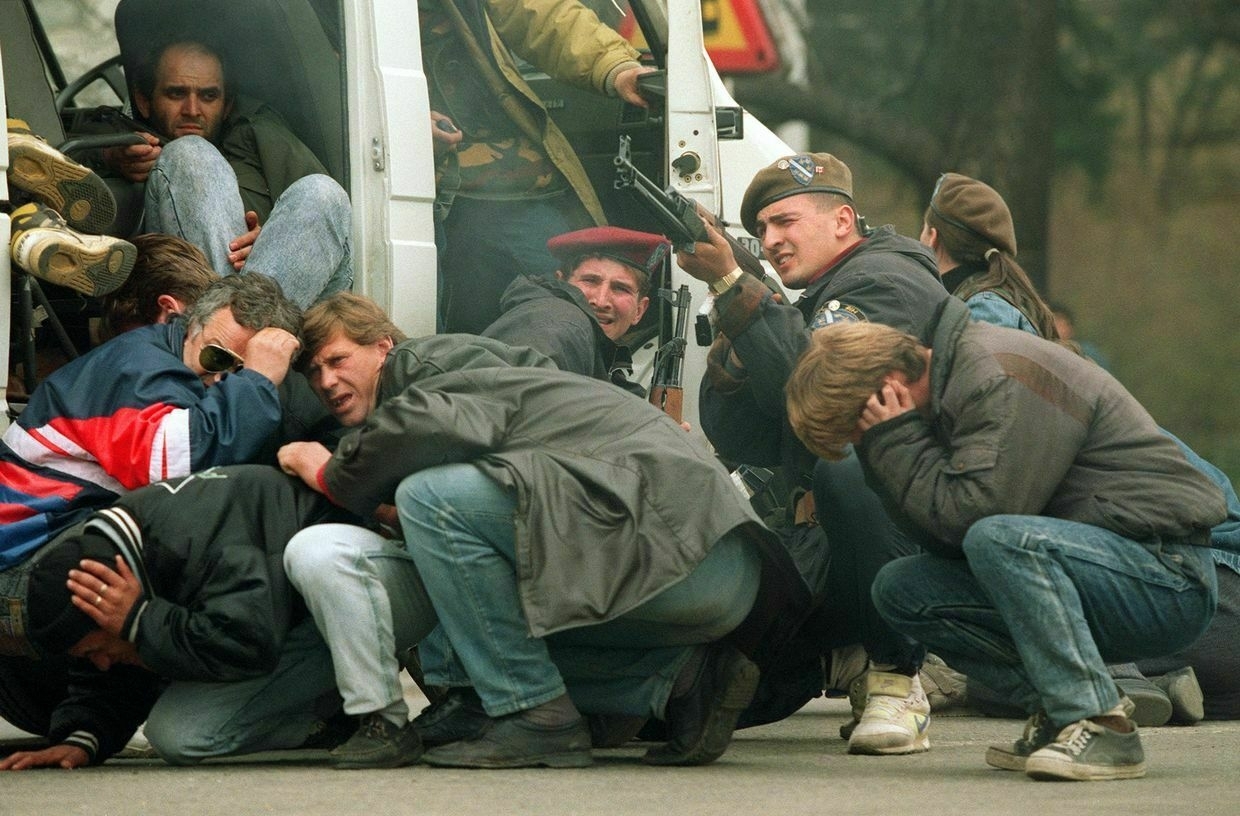
A Bosnian special forces soldier returns fire as Serbian snipers open fire on a rally in Sarajevo, Bosnia-Herzegovina, on April 6, 1992. (Mike Persson / AFP via Getty Images) 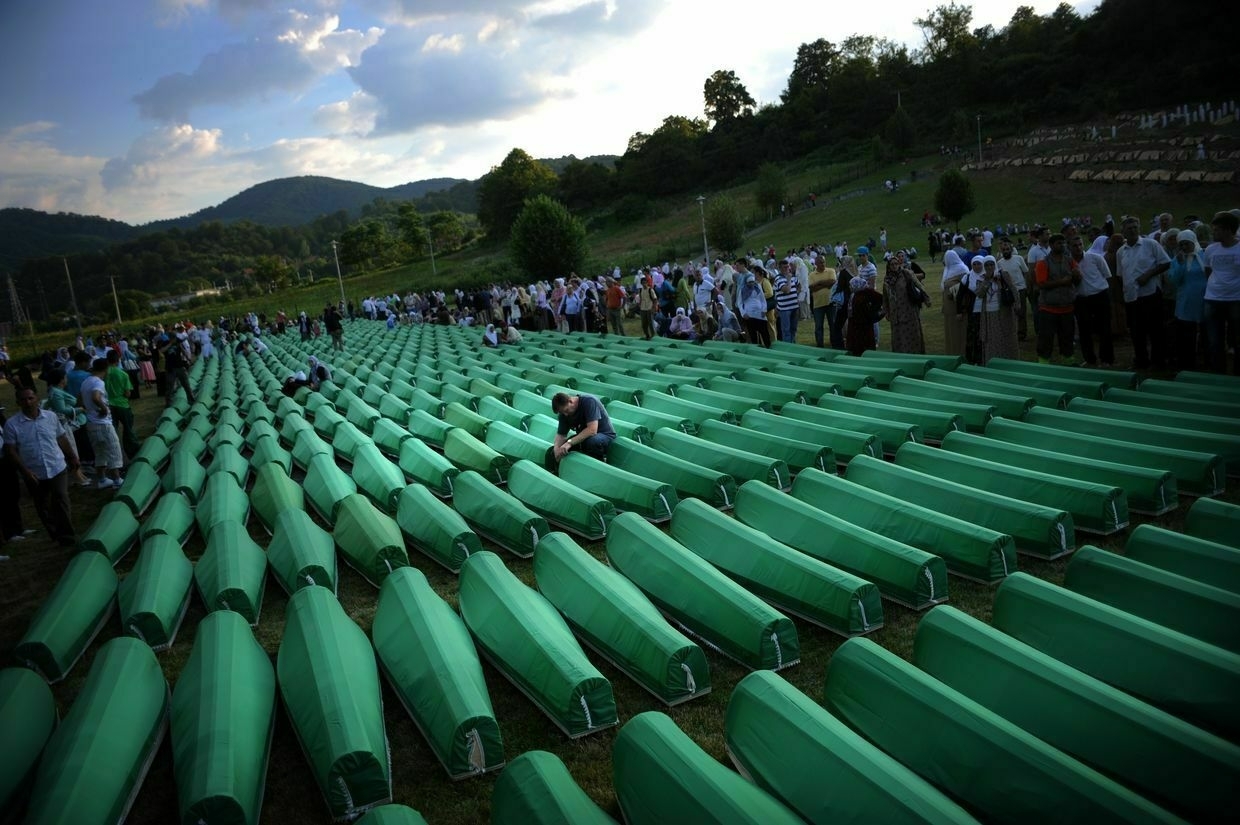
Bosnians mourn over coffins of Srebrenica massacre victims during preparations for a mass burial in Potocari, near Srebrenica, Bosnia and Herzegovina on July 10, 2010. (Dimitar Dilkoff / AFP via Getty Images) “I think Bosnians very well understand what’s happening in Ukraine because we went through the same thing in the 1990s,” he said.
Dodik isn’t the only one who stands to gain from efforts to destabilize Bosnia and Herzegovina. Cancar thinks Russia would also benefit “from having another conflict that will divert attention from Ukraine.”
Showdown in courtAlthough separatist rhetoric is not new in Republika Srpska, the tipping point came in 2023, when Dodik supported the passage of a controversial measure to suspend the rulings of Bosnia’s Constitutional Court inside Republika Srpska.
That threatened to undermine the foundations of peace in the country.
Under the Dayton Accords, which ended the civil war in 1995, a high representative for Bosnia and Herzegovina is tasked with overseeing the civilian implementation of the agreement. Since 2021, German politician Christian Schmidt has held that position.
Controversially, the high representative has the power to impose and annul laws.
On July 1, 2023, Schmidt did just that: He annulled the Republika Srpska judicial measure against the Constitutional Court and amended the criminal code to make defying the “constitutional order” a crime.
Dodik signed the measure Schmidt annulled into law anyway. Prosecutors filed an indictment against him the following month.
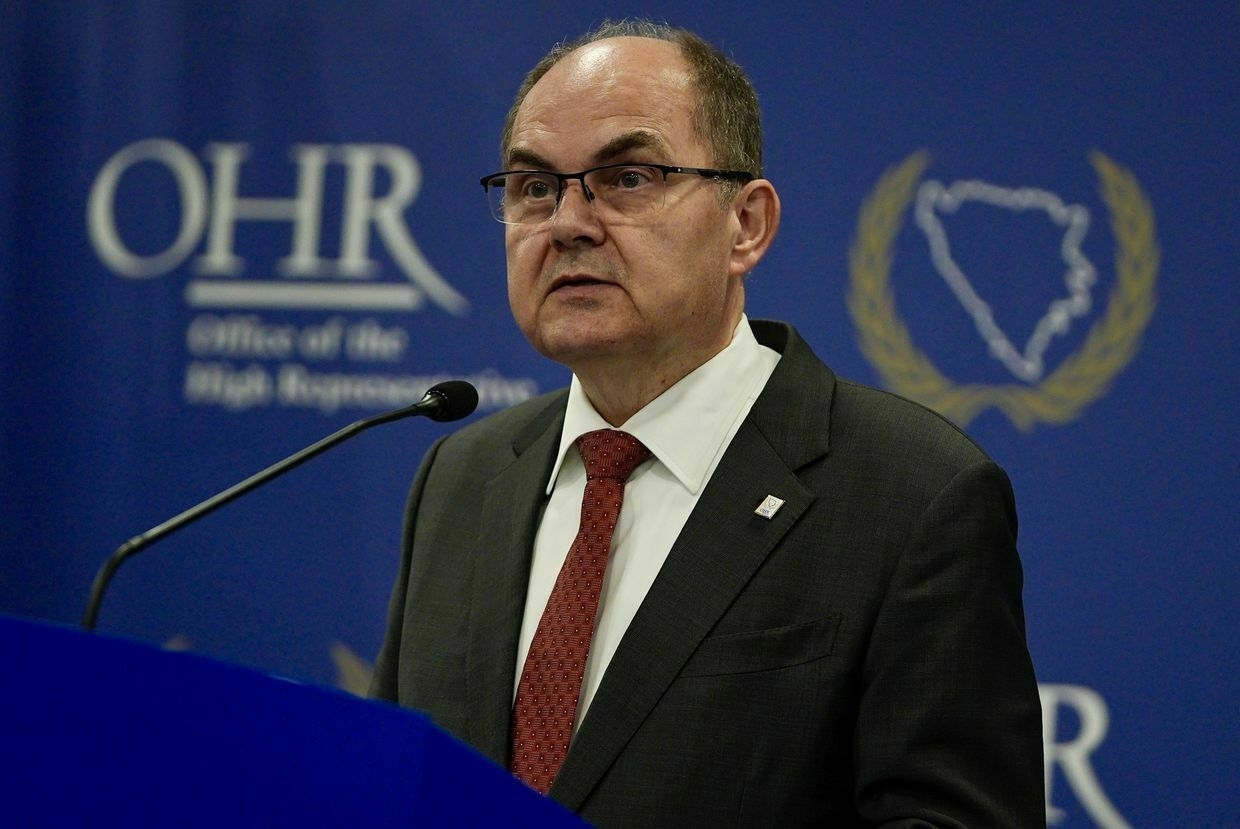
High Representative Christian Schmidt speaks in Sarajevo, Bosnia and Herzegovina, on April 24, 2025. (Samir Jordamovic/Anadolu via Getty Images) In February, following a lengthy trial, a court in Sarajevo, the capital of Bosnia and Herzegovina, found Dodik guilty of defying the high representative’s orders, sentencing him to one year in jail and banning him from office for six years.
On April 23, state police attempted to arrest Dodik, but were repelled by Republika Srpska police.
“This is a serious political and constitutional crisis,” the Office of the High Representative said in a statement to the Kyiv Independent. It considers the law and Dodik’s actions a “de facto coup d’etat” that threatens constitutional order and Bosnia and Herzegovina’s bid for EU membership.
Walking the streets of Banja Luka, it’s not difficult to understand the danger.
From spy rings to arson — Russia’s sabotage across Europe continues unpunishedAlongside Russia launching its full-scale invasion of Ukraine, Moscow has also ramped up its hybrid attacks across Europe. In 2024 alone, Russia could be behind around 100 “suspicious incidents” in Europe, Czech Foreign Minister Jan Lipavsky claimed. Last month, the Dutch intelligence said that Moscow keeps stepping up its attacksThe Kyiv IndependentKateryna Denisova
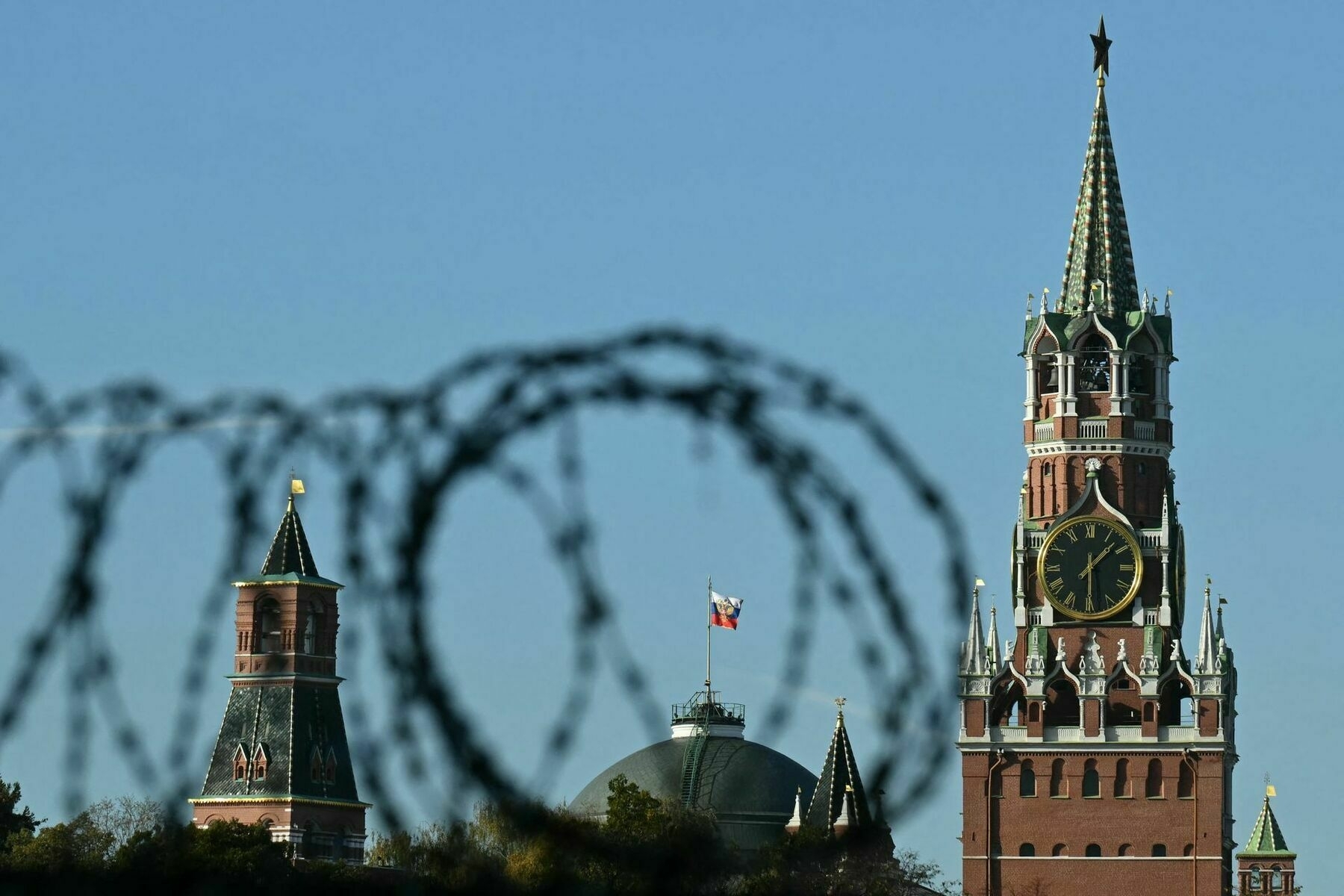
The city is filled with advertisements for Dodik’s political party, the Alliance of Independent Social Democrats. Billboards bear his image and push his narrative. One reads: “They tried me because they couldn’t put a million Serbs in the courtroom!”
Their effect is less clear.
"Putin is, in this logic of Serbian peoples, the biggest politician in the world."
According to Savanovic, Dodik’s defiance of the country’s peace mechanisms has actually alienated his supporters, many of whom do not want a return to the conflict of the 1990s.
“I don’t know a single person in Banja Luka who supports Mr. Dodik, even in his political party,” he said.
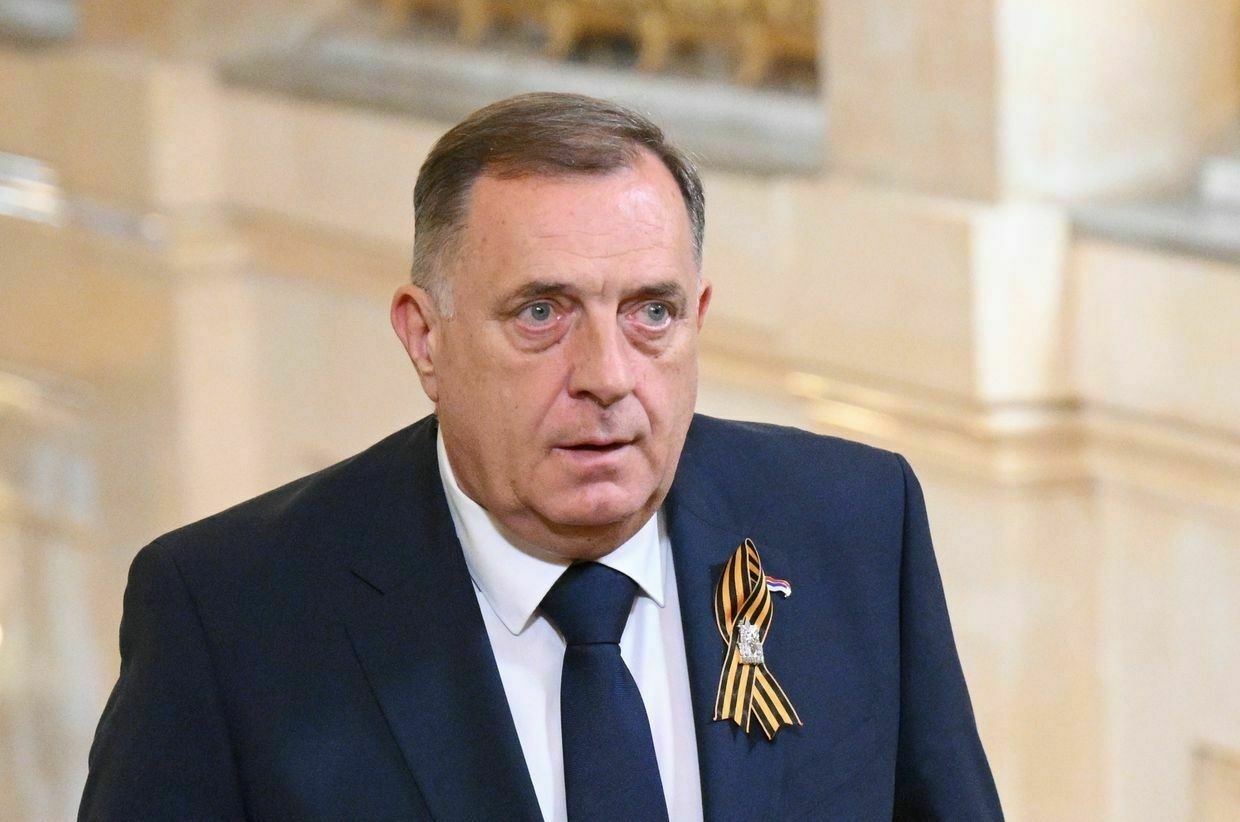
President of Republika Srpska, Milorad Dodik, arrives at the Kremlin in Moscow, Russia, on May 8, 2025. (Alexandr Kryazhev/RIA Novosti/Pool/Anadolu via Getty Images) “He expected more support from the people,” said Tanja Topic, a journalist and the head of the Friedrich Ebert Foundation in the city.
Internationally, the picture is hardly rosy. Even President Aleksandar Vucic of Serbia, usually a reliable ally, is currently distracted by his own domestic political crisis, Topic added. And Dodik’s gamble that U.S. President Donald Trump would adopt a more accommodating stance on his nationalistic policies has not paid off.
She believes that Dodik’s visits to Russia were an attempt to shore up support among his remaining allies and supporters.
“He used these opportunities to create a pro-Russia narrative in Republika Srpska,” Topic said. “Putin is, in this logic of Serbian peoples, the biggest politician in the world.”
Signs of support for Russia are common in Banja Luka. A stand selling T-shirts to tourists features one with Putin’s face alongside those displaying Serb nationalistic slogans. There is a Putin-themed restaurant in town, and Russia opened a branch of its embassy here in the summer of 2024.
In 2018, local officials announced that they would begin construction of a Russian cultural center.
On a recent visit to the planned site, construction was in full swing. At its center is an Orthodox Church covered in a web of scaffolding. The metal skeletons of two onion domes lay in the dust nearby. Officials recently said that the complex will be complete this summer.
Dangerous territoryRussia’s influence in the region may not be merely diplomatic and financial.
Last fall, reports that Moldova had uncovered a pro-Kremlin hybrid warfare operation shined a spotlight on Republika Srpska. Moldovan authorities said that Russia used camps in the region to train agitators to provoke instability in Moldova around its October presidential election.
Officials in Republika Srpska have denied the existence of such camps. Bosnia and Herzegovina’s Defense Ministry did not respond to requests for comment or interviews with officials.
But the scandal emphasized the high stakes of Russian influence in Republika Srpska.
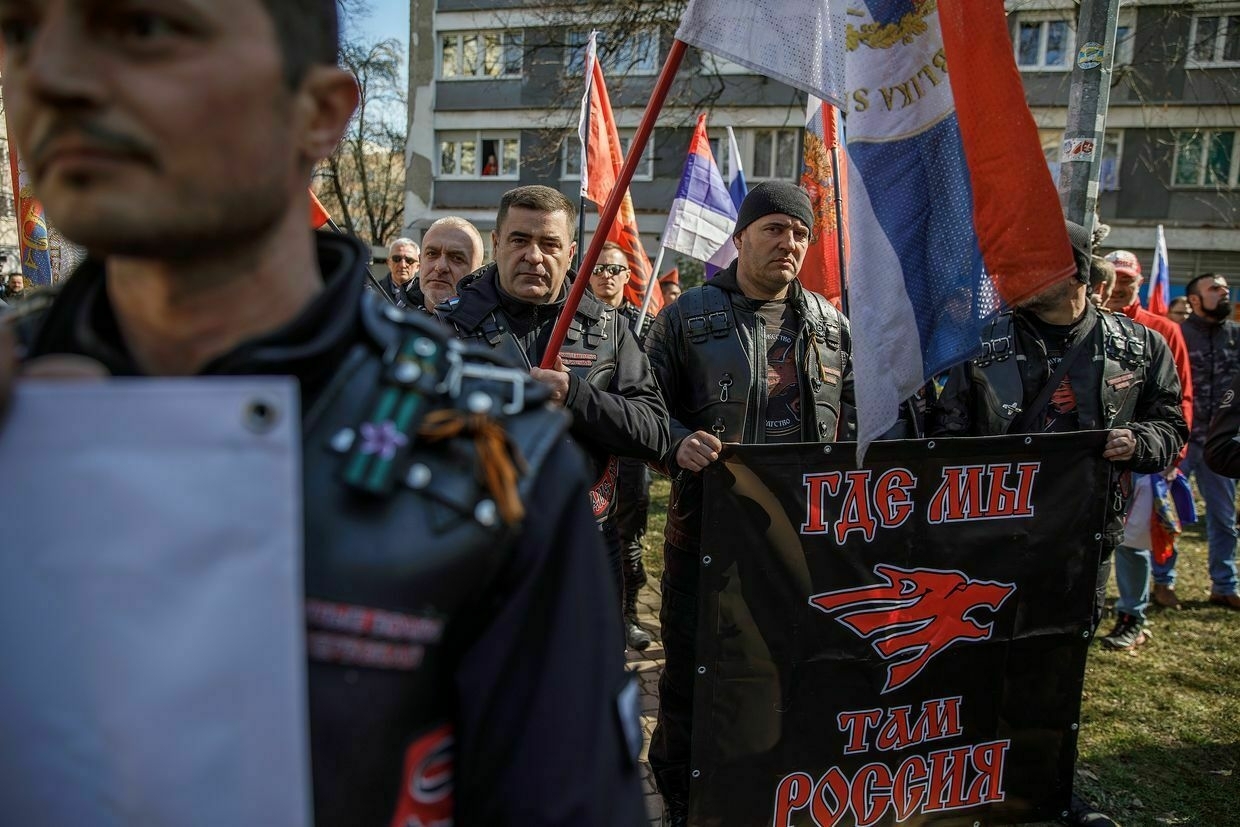
Members of the Night Wolves motorcycle club attend a pro-Russia rally in Banja Luka, Bosnia and Herzegovina, on March 12, 2022. (Damir Sagolj/Getty Images) Now, no one is sure how the current crisis may play out.
While few believe there will be a return to violence, experts told the Kyiv Independent that tensions can continue to escalate and small-scale conflict is possible.
Dodik, meanwhile, shows no sign of backing down. In March, he announced that Republika Srpska would form an independent border police force, a potential major escalation.
“If we accept this as a status quo, (Dodik) will take this as a form of support or silent acquiescence to what he’s done and will move on the offensive,” said Cancar, the international security expert.
That could mean the Republika Srpska’s slow integration into Serbia and restrictions on the movement of people, goods, and services along Bosnia and Herzegovina’s internal boundaries.
“And then at that point,” Cancar added, “all bets are off.”
-
Why did Russia invade Ukraine? Moscow’s claims of ‘root causes,’ unpacked
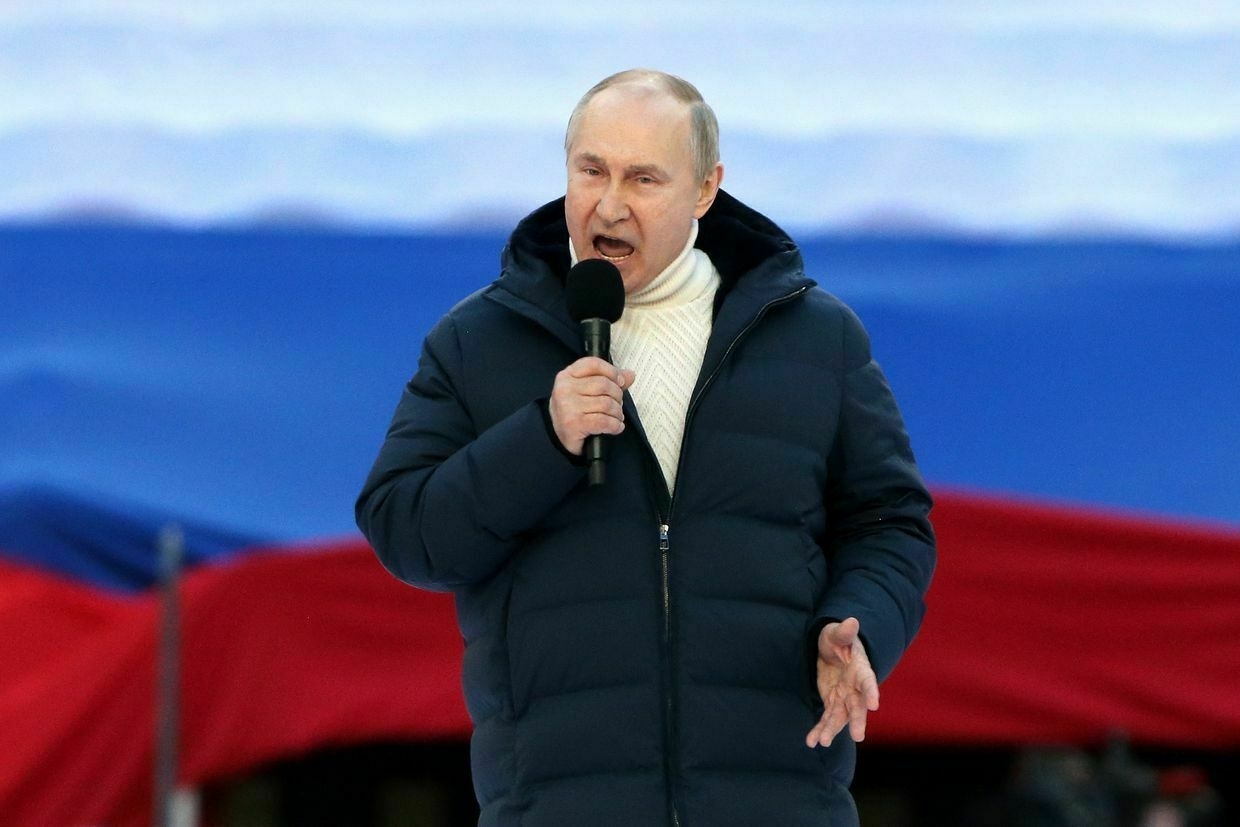
As Russia continues to bombard cities and towns across Ukraine, Russian officials have hardened their position against a ceasefire, continuing to repeat the obscure demand that the war’s “root causes” be addressed before agreeing to any truce.
For months, the phrase “root causes” has become a go-to talking point repeated by Russian President Vladimir Putin and his deputies, including Russian Foreign Minister Sergey Lavrov, to justify their continued aggression.
“In (Russia’s) telling, they ascribe these root causes to an aggressive West,” said Robert Person, an expert on Russian foreign policy and a member of the Council on Foreign Relations (CFR).
“The most concrete thing that you’ll hear, when they’re talking about the root causes that they refer to, is the enlargement of NATO."
Russia has named the alleged threat from NATO in its attempts to justify its invasion of Ukraine, among other reasons, and has demanded that a peace agreement include a ban on Ukraine ever joining the alliance.
But Russia’s framing is a red herring, Person and other experts argue.
“What Putin is after in Ukraine and beyond is not just a rollback of the prospect of NATO membership. It’s not about securing Ukraine’s neutrality,” he said. “It’s really about turning Ukraine into a subservient vassal state with a puppet government that does his bidding."
The false narratives serve a useful purpose for Russia’s government, however, said Mercedes Sapuppo, assistant director in the Atlantic Council’s Eurasia Center.
“When Putin discusses the ‘root causes’ of his war, he is calling up a framework that he claims justifies Russia’s aggression in Ukraine by falsely placing blame on Ukraine,” said Sapuppo. “Putin and the Kremlin are using these narratives to frame Ukraine as the instigator of the Kremlin’s war."
Even U.S. President Donald Trump has bought into the idea, saying as recently as last month, “I think what caused the war to start was when (Ukraine) started talking about joining NATO."
NATO: a ‘nonsensical’ explanation for the warAlongside NATO expansion, Russia has at times named additional reasons for its invasion — including propaganda claims of Nazi extremism, and protecting the status of Russian language speakers or the Moscow Patriarchate of the Russian Orthodox Church — but it has placed outsized emphasis on NATO.
In 2018, Ukraine enshrined its goal of NATO membership in its constitution and has since argued that membership in the security alliance is needed in the future to deter further Russian aggression.
Yet the idea that NATO is the root cause of this conflict is “nonsensical,” said Stephen Hall, assistant professor in Russian and post-Soviet politics at the University of Bath.
“It’s a narrative that’s pushed by the Kremlin to try and get so-called ‘useful idiots’ to play it up in the media and elsewhere."
One sign that Putin’s concerns go beyond NATO, notes Hall, is the limited resistance that Russia put up when Poland joined NATO in 1999 and when Lithuania, Latvia, and Estonia followed in 2004 — four countries that share a border with Russia.
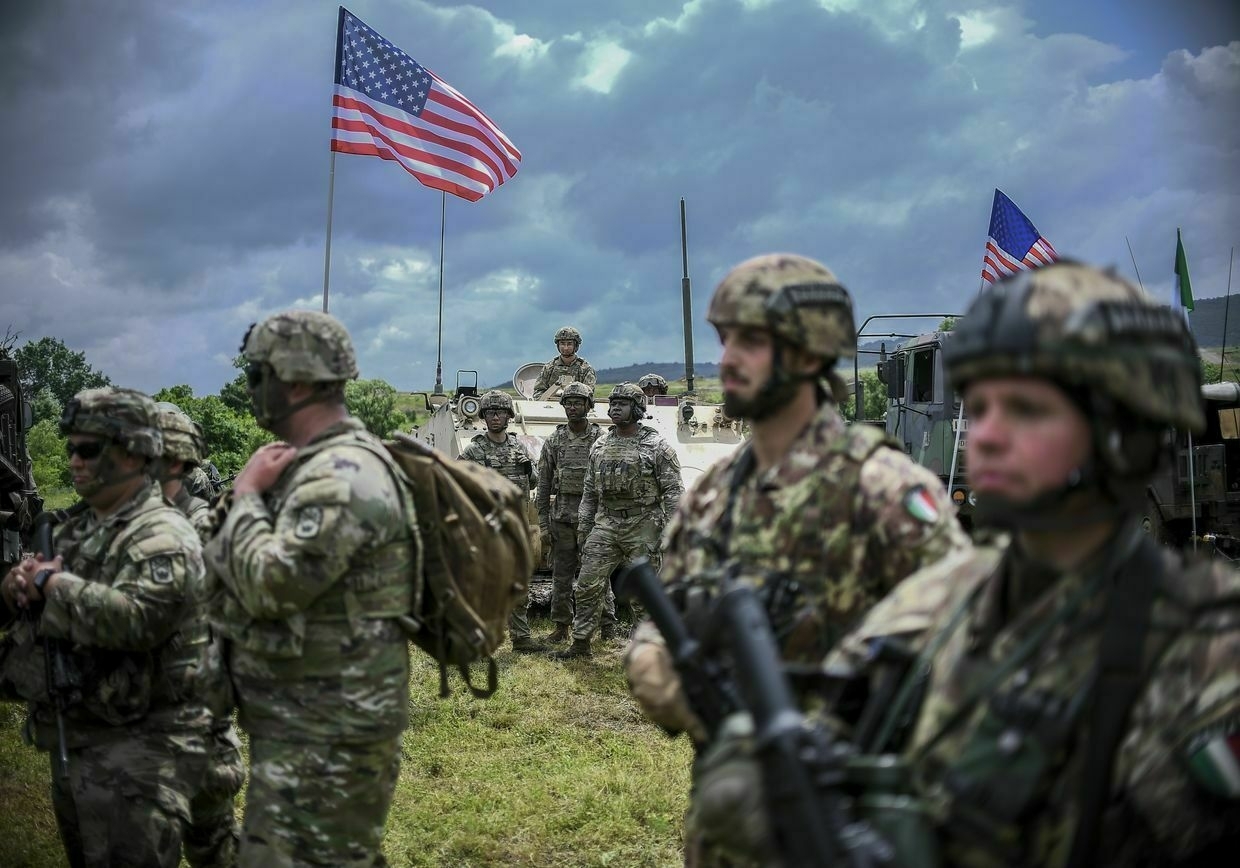
Military personnel take part in the “Defense Shield 23” multinational battle group exercises in Novo Selo, Bulgaria, on May 29, 2023. (Borislav Troshev / Anadolu Agency via Getty Images) 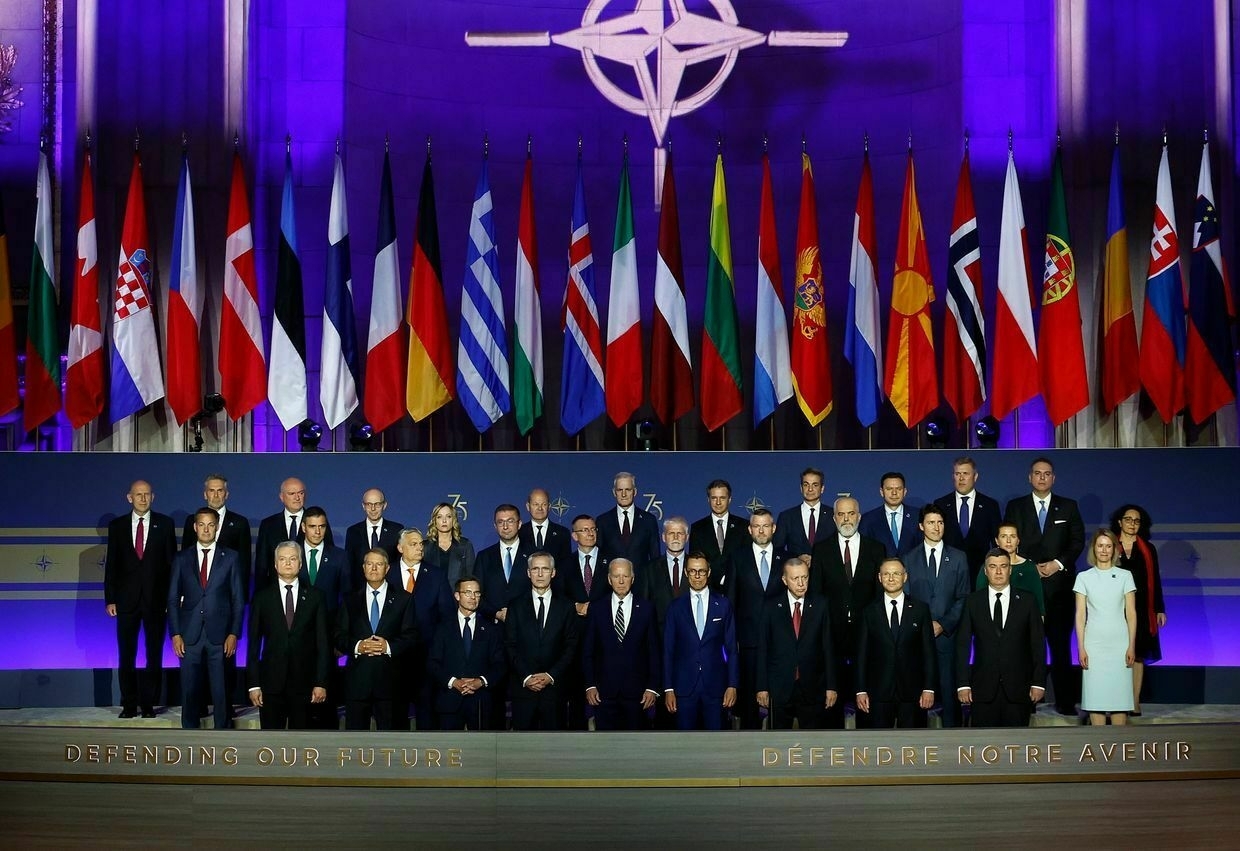
Heads of state pose for a group photo during the NATO 75th anniversary celebratory event at the Andrew Mellon Auditorium in Washington, D.C., U.S. on July 9, 2024. (Kevin Dietsch / Getty Images) “Then fast forward to when the state with the longest border (in NATO) with Russia, Finland, joins in 2023. There’s barely a peep from Moscow,” he added.
While NATO is relevant, it is only in highlighting to Putin that Ukraine is slipping away from Russian influence, Hall said. Additionally, if Ukraine were to make independent decisions based on the will of its people, it could send a signal to Russian citizens that democracy is a viable option for them, as well.
“That, obviously, is a problem for Putin’s autocracy, or any autocracy for that matter,” Hall said.
“It’s very clear that the root cause for him, really, is just Ukraine’s existence.”
Before Russia’s 2014 invasion, the idea of NATO membership was deeply unpopular with Ukrainian citizens, with only around 15 to 20% of Ukrainians supporting it at the time.
Since Russia’s invasion, however, support has skyrocketed. According to a poll last year by the Kyiv International Institute of Sociology, 84% of Ukrainians would like to see their country join NATO.
Evidence that NATO is a smokescreen for Putin’s motivations is seen not just in how Putin treats other NATO members, but also how it has treated Ukraine for decades, Person of CFR said.
"For over twenty years, Putin has very aggressively been targeting Ukrainian sovereignty and Ukrainian democracy," Person said, citing Putin’s interference in Ukraine during the 2004 Orange Revolution as an example.
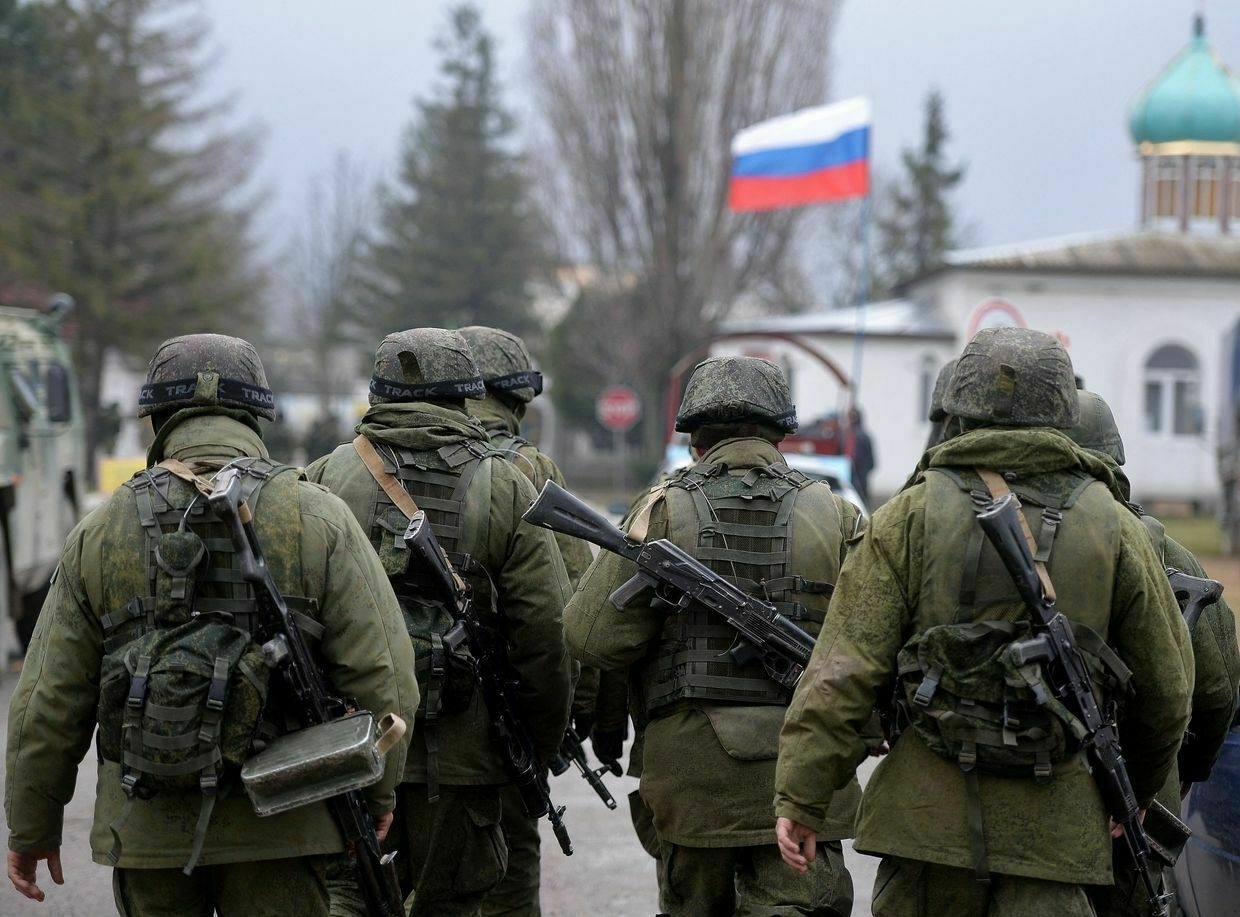
Russian soldiers in the area surrounding a Ukrainian military unit outside Simferopol, Crimea, Ukraine on March 20, 2014. (Filippo Monteforte / AFP via Getty Images) In the lead-up to the Orange Revolution, Putin heavily promoted pro-Russian candidate Viktor Yanukovych ahead of the 2004 presidential election, including visiting Ukraine to push his preferred candidate. His attempts to interfere with Ukraine’s politics prompted a backlash, helping to spark protests over a rigged election that resulted in Yanukovych’s defeat.
"Then in 2014, when Russia invaded Crimea, when they invaded the Donbas, membership in NATO was nowhere on the immediate agenda — for NATO or Ukraine. There was a constitutional provision at the time that prohibited it, and required neutrality," Person noted. "How does that somehow spark or cause the Russian invasion of 2014?"
What this means for peace negotiationsSapuppo, of the Atlantic Council's Eurasia Center, says understanding Putin’s motivation for the war is necessary for informing the West’s strategies for negotiations with the Russian leader.
"It’s very clear that the root cause for (Putin), really, is just Ukraine’s existence. This should make it clear to Western leaders that any agreements to end the war need to be very forward-looking when it comes to security guarantees," she said.
If Western leaders were to fall into the trap of focusing on NATO limitations, this would not only fail to address the true reasons for the invasion, but would also allow Russia to establish a revisionist history, she said.
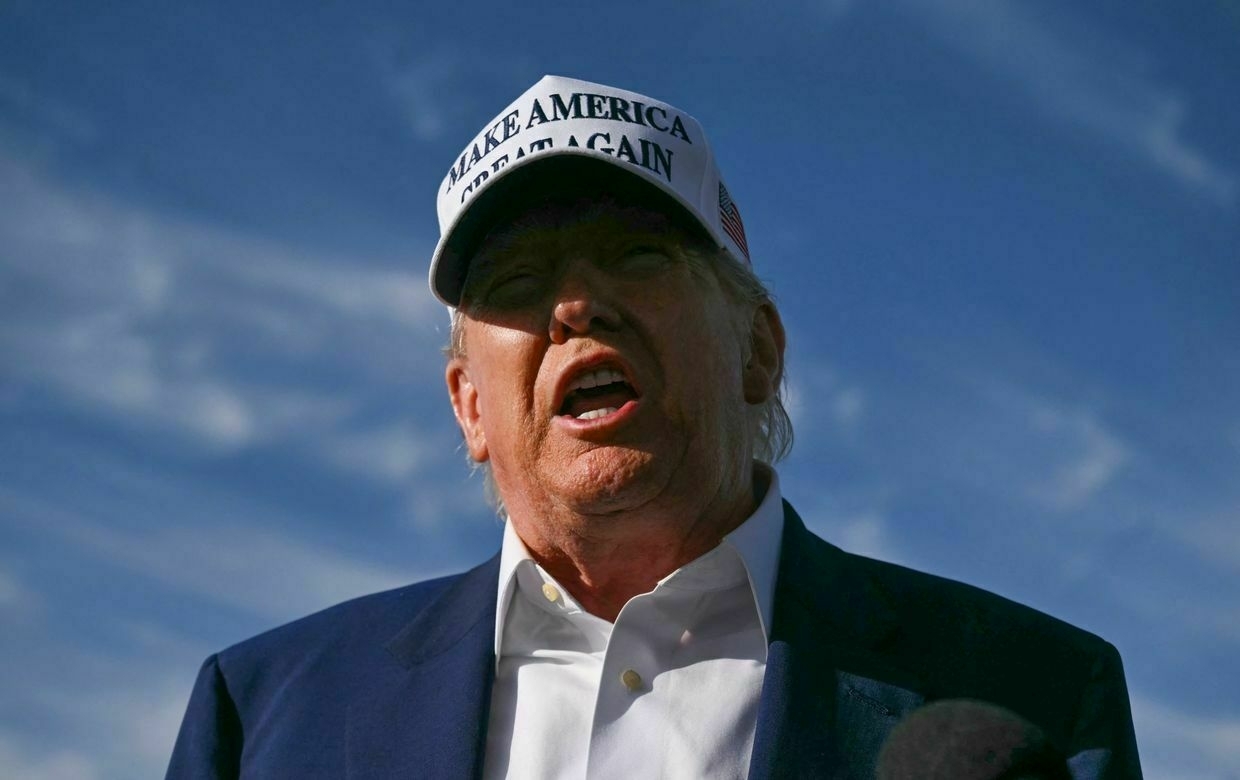
U.S. President Donald Trump speaks to journalists before boarding Air Force One at Morristown Municipal Airport in Morristown, New Jersey, on May 25, 2025. (Saul Loeb / AFP via Getty Images) But recognizing the underlying motives for Russia’s invasion also means recognizing that they are far more difficult to solve than a question of neutrality, Person added.
"You could draw lines on a map all day long. No line, unless it incorporates, at least all of Ukraine up to and including Kyiv and its government, is going to satisfy Putin’s demands," he said.
"At the end of the day, what Putin cannot tolerate is a sovereign Ukraine that chooses its own foreign policies and partnerships, its own economic relationships."
Hi, this is Andrea. Thank you for reading this article. The Kyiv Independent doesn't have a wealthy owner or a paywall. Instead, we rely on readers like you to keep our journalism funded. We're now aiming to grow our community to 20,000 members — if you liked this article, consider joining our community today.
What happens to all the guns in Ukraine post-war?As peace talks ramp up, experts and officials are already working on a looming post-war threat: the potential large-scale proliferation of guns in Ukraine once they are no longer needed on the battlefield. “When the war ends, Ukraine will not only have to rebuild its infrastructure and resettle displaced peopleThe Kyiv IndependentAndrea Januta
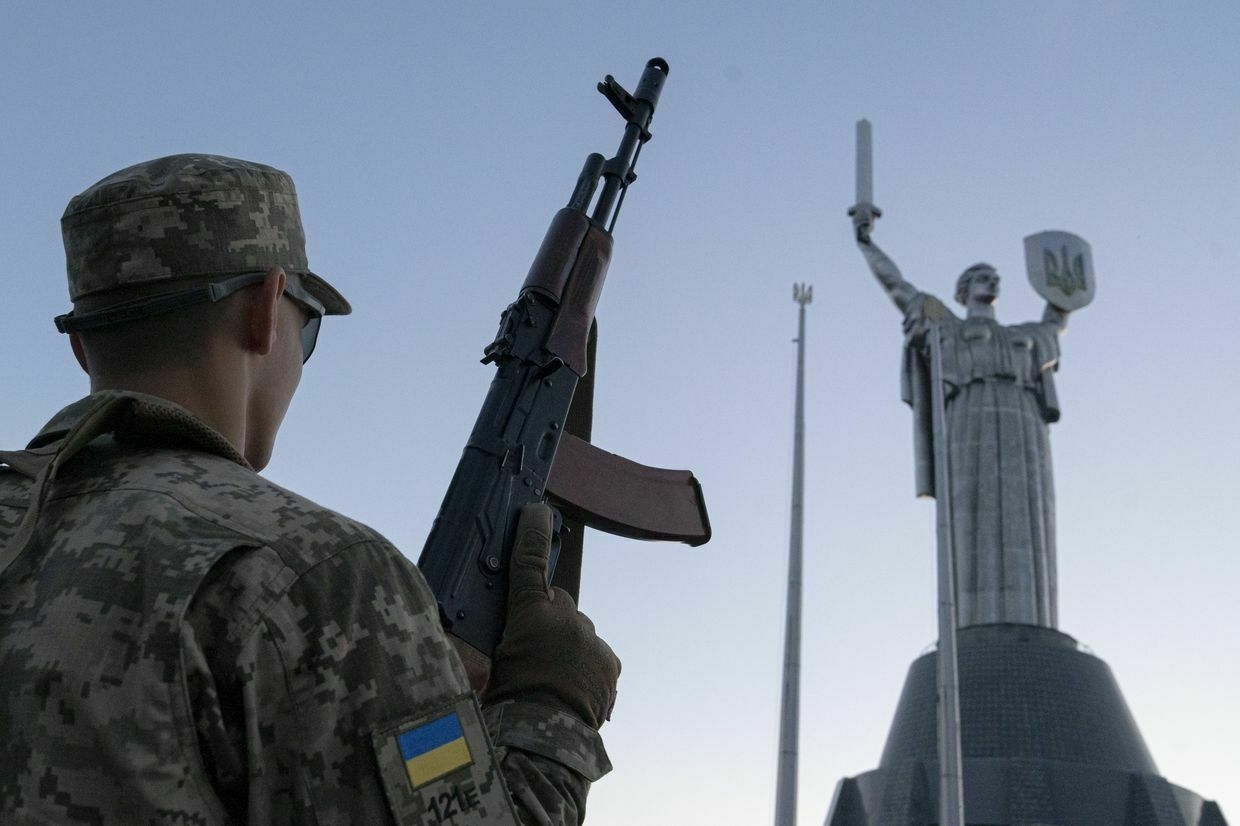
-
EU to restore quotas on Ukrainian farm imports in June, Bloomberg reports
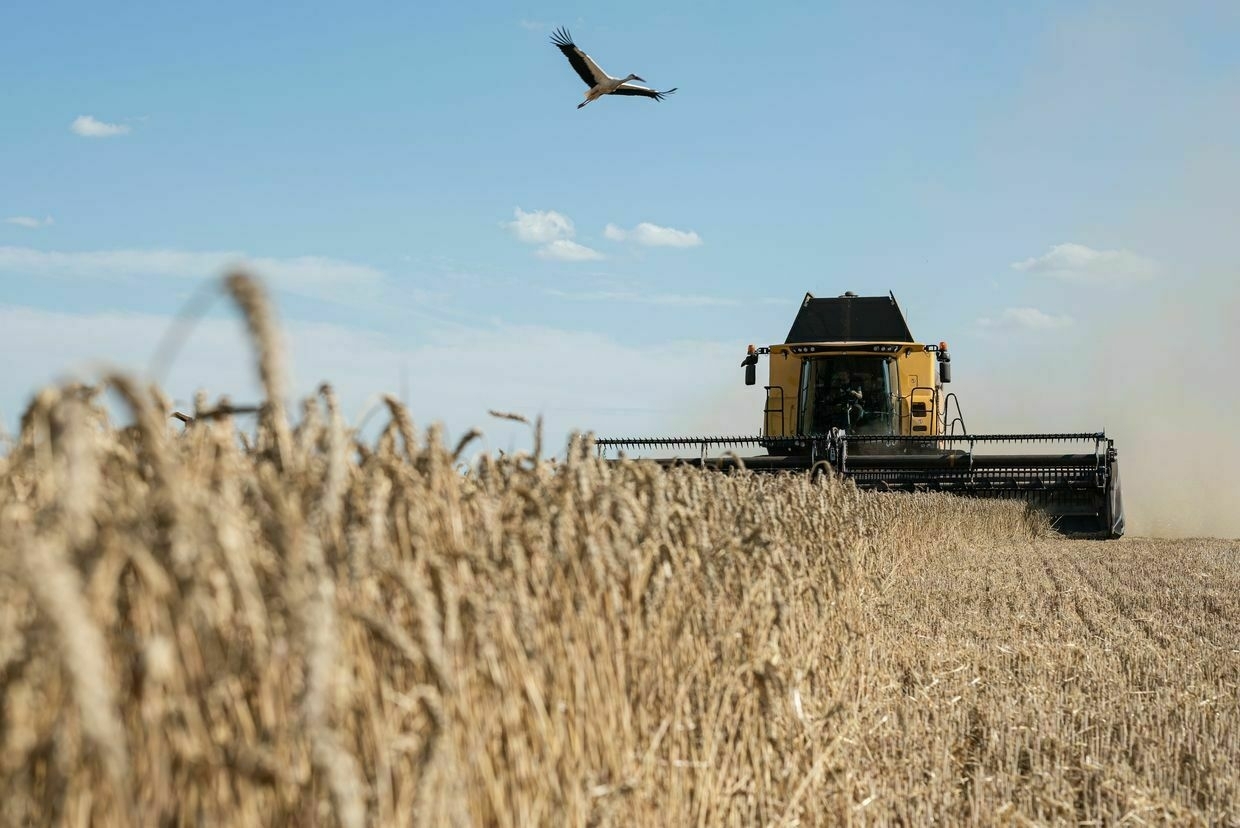
The European Union has agreed to reintroduce import quotas on several Ukrainian agricultural products starting June 6, Bloomberg reported on May 23.
The move marks a significant shift in EU trade policy toward Kyiv, as bloc members seek to balance wartime support for Ukraine with growing domestic unrest from European farmers.
The quotas were eliminated at the beginning of Russia’s full-scale invasion in 2022.
Their reintroduction was approved by the European Commission on May 22. While no EU member voted against the new measure, several — including Sweden, the Czech Republic, Denmark, Estonia, Finland, Germany, Ireland, and Lithuania — abstained.
The decision comes after protests across Central and Eastern Europe, where farmers argued that the influx of lower-cost Ukrainian goods has depressed local prices and undermined their livelihoods.
Polish farmers and truckers in particular have staged repeated blockades at the Ukrainian border since 2023 to protest duty-free imports.
Agricultural exports are critical to Ukraine’s wartime economy, and EU market access has served as a lifeline following Russia’s 2022 invasion, which severely disrupted Black Sea shipping lanes.
In response, the EU introduced a duty- and quota-free regime in June 2022 to ease the flow of Ukrainian goods to global markets. The agreement has been extended twice, most recently until June 5.
The European Commission said the quotas are temporary and that talks are underway to revise the EU-Ukraine Deep and Comprehensive Free Trade Area (DCFTA), the broader legal framework governing bilateral trade.
Editorial: Russia just said it doesn’t want peace in Ukraine. This is what you need to doRussia is now saying the quiet part out loud. It has no intention of stopping the war in Ukraine. We in Ukraine knew this all along, of course, but to sate the demands of international diplomacy, Moscow and Washington have engaged in a now more than two-month-long peace process thatThe Kyiv IndependentKyiv Independent
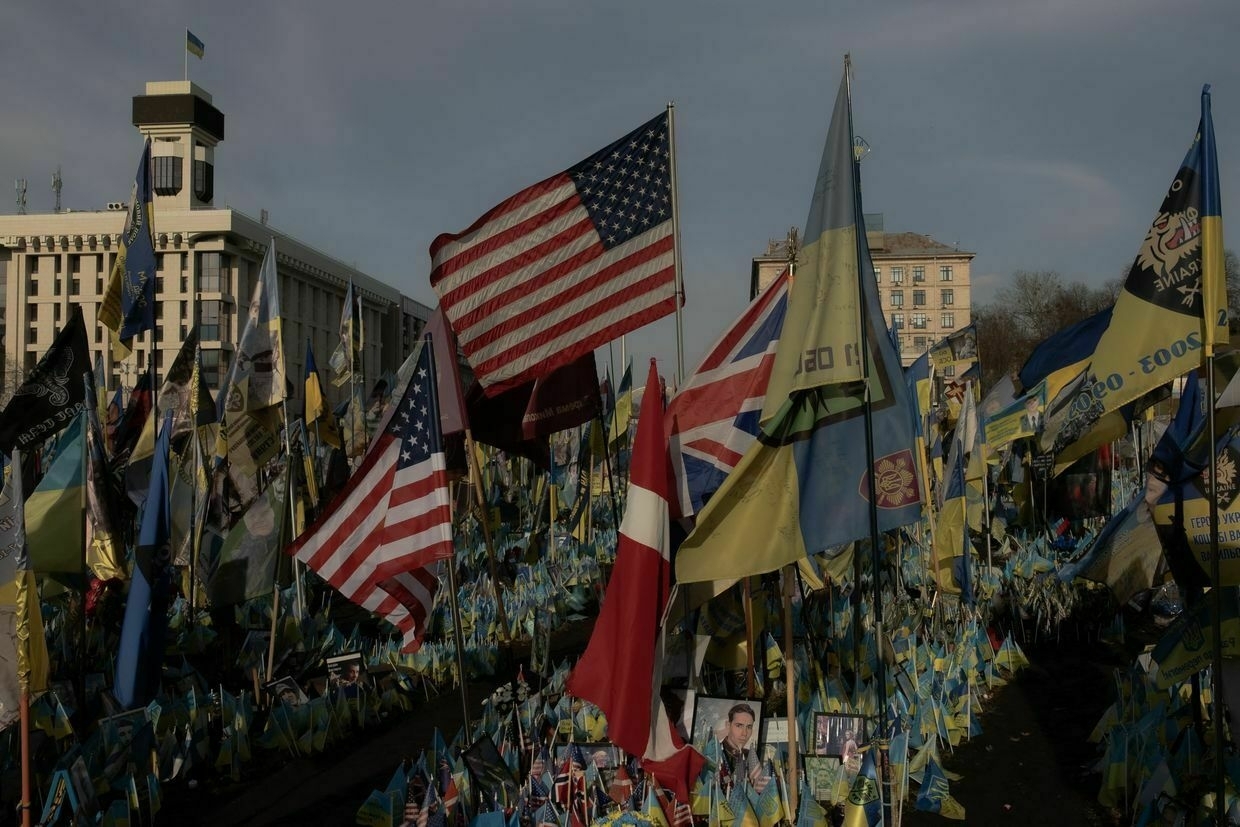
-
Polish jets intercept Russian bomber over Baltic Sea after 'dangerous' maneuvers
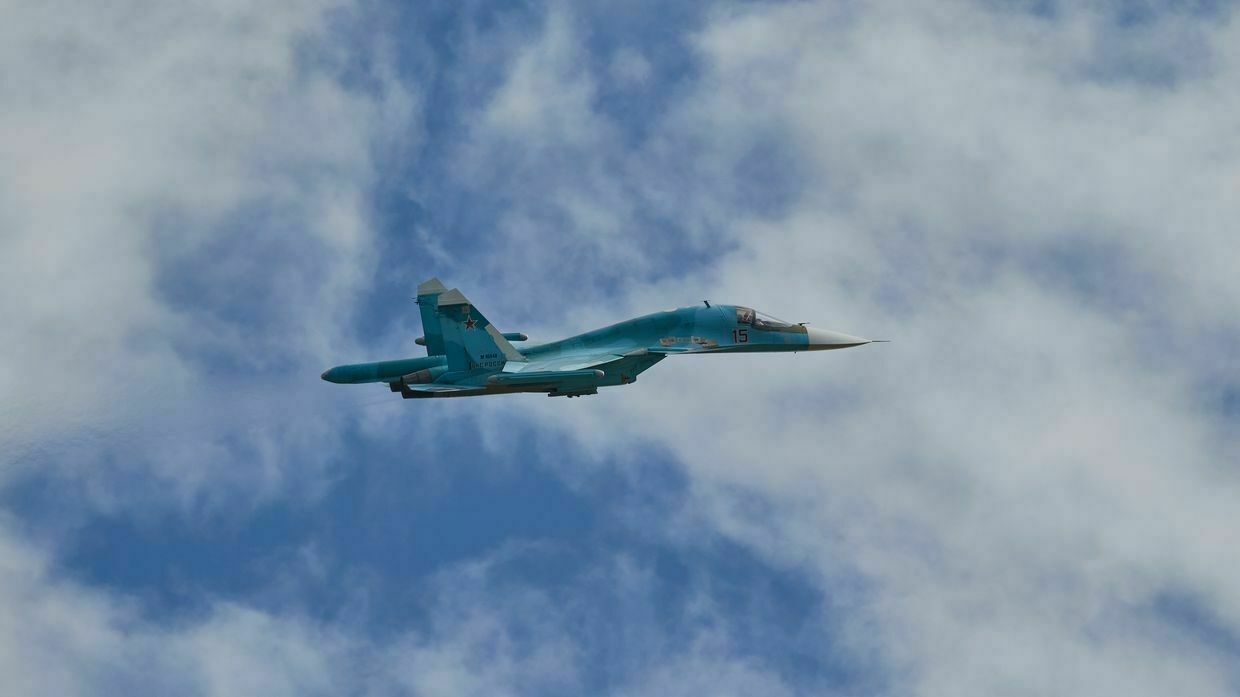
Polish fighter jets intercepted a Russian Su-24 bomber in international airspace over the Baltic Sea on May 22, Polish Defense Minister Wladyslaw Kosiniak-Kamysz said during a press conference on May 23, according to the Polish news outlet RMF24.
The incident marks the latest in a series of Russian provocations near NATO territory. According to Kosiniak-Kamysz, the Russian aircraft posed a threat to regional airspace safety.
“These maneuvers performed by the Russian Su-24 show that the actions were dangerous and intentional,” the minister said. He added that Polish pilots quickly detected, intercepted, and forced the bomber to withdraw from the area.
The encounter took place near the heavily militarized Kaliningrad Oblast, a Russian exclave wedged between Poland and Lithuania.
Russian aircraft often fly from Kaliningrad without using transponders, failing to file flight plans, and not establishing contact with regional air traffic control — a pattern that NATO officials have long described as high-risk behavior.
“We are resistant to provocations, but we react appropriately, individually and collectively,” Kosiniak-Kamysz said, referring to NATO’s air policing measures.
The intercepted aircraft, a Soviet-designed Su-24 bomber, is capable of carrying guided bombs and precision missiles and was developed for low-level penetration missions.
Since the start of Russia's full-scale invasion of Ukraine in 2022, Poland has scrambled fighter jets multiple times in response to missile and drone attacks near its border.
On several occasions, Russian projectiles have briefly entered Polish airspace, prompting strong protests from Warsaw and increased NATO monitoring in the region.
On Feb. 11, a Russian Su-24MR reconnaissance aircraft flew into Polish airspace over the Gdansk Bay for over a minute. Moscow blamed a navigational failure, though Polish officials have dismissed similar explanations in the past as implausible.
Poland, which shares a border with Ukraine and hosts significant NATO infrastructure, has warned that Russian aerial provocations could trigger escalation if not contained.
Ukraine confirms strike on Russian factory making parts for Iskander ballistic missiles, glide bombsUkrainian drones attacked the Energy (Energia) plant in Yelets, Russian Telegram-channel Astra reported, citing locals. Videos on social media purported to show blasts and fires following the strikes.The Kyiv IndependentKateryna Denisova
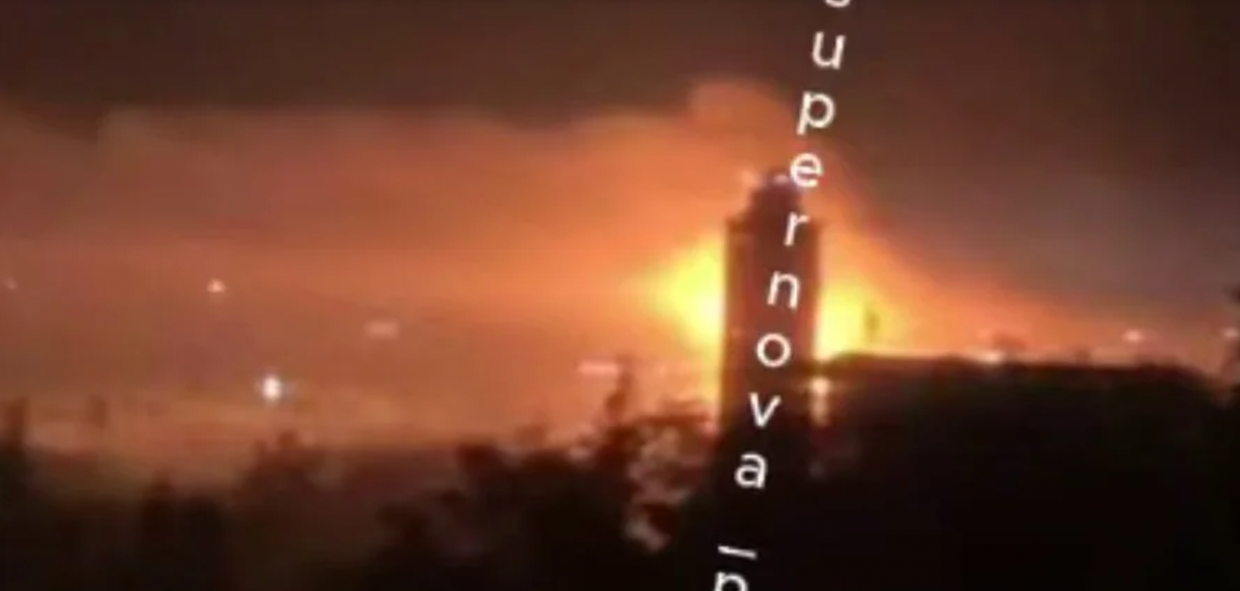
-
Stripping Hungary's EU voting rights on agenda for May 27 meeting
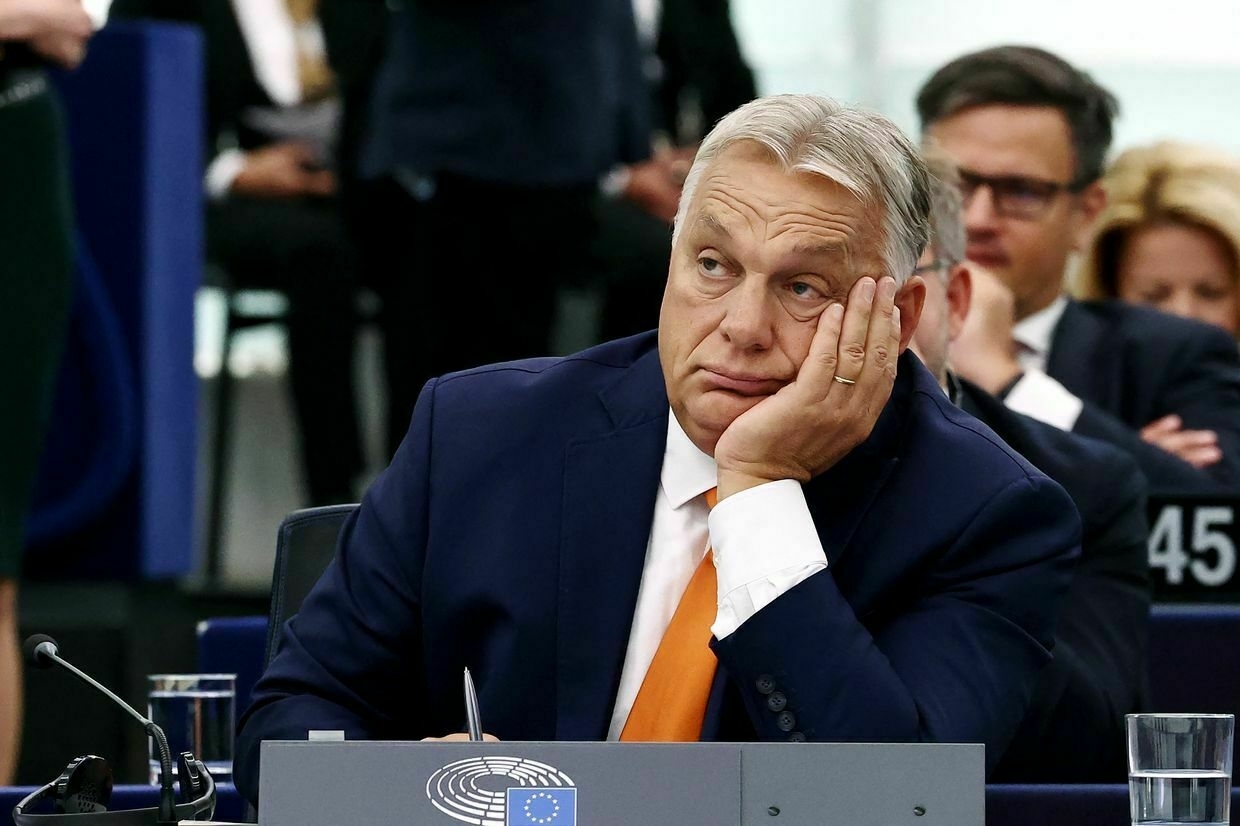
The Council of the European Union will hold a hearing regarding the potential loss of Hungary’s voting rights at a meeting on May 27, according to the agenda on the Council’s web portal.
This will be the eighth hearing regarding Hungary since the European Parliament triggered Article 7 procedures against the country in 2018. Article 7 of the EU Treaty allows for the suspension of Council voting rights if a member state consistently breaches EU founding principles.
European ministers will discuss Hungary’s status at a meeting of the General Affairs Council on May 27, the Council said.
The hearing comes as the EU is looking for ways to override Budapest if it vetoes Ukraine’s accession to the bloc. EU High Representative Kaja Kallas said on May 10 that Brussels has alternative plans in the event Hungary attempts to obstructs Ukraine’s candidacy.
“We have a plan B and a plan C. But our focus is plan A, the essence of which is to get everyone’s support,” Kallas told reporters.
Hungarian Prime Minister Viktor Orban has repeatedly blocked or delayed EU aid packages for Ukraine while opposing sanctions against Russia. Hungary’s ongoing obstruction of support for Ukraine has repeatedly triggered threats to withdraw the country’s voting rights.
The European Parliament has also continuously raised Article 7 concerns regarding Hungary’s “erosion of the rule of law.” Under the Orban government, Hungary has faced increasing criticism from international watchdogs for limiting press freedom and undermining democracy.
Mass protests broke out in Budapest on May 18 in response to a controversial bill that would grant the government sweeping powers to investigate, penalize, or even ban media outlets and non-governmental organizations receiving any foreign funding. The bill, proposed by a member of Orban’s ruling Fidesz party, is similar to Russia’s restrictive “foreign agents” law.
Ukraine’s new drone strategy — cripple Moscow’s airports, make Russian population ‘pay’Hundreds of Ukrainian kamikaze drones have flown towards Moscow in recent weeks. None appear to have even reached the Russian capital, yet the effect on the city — and the wider country — has been hugely significant. Ukrainian drones have forced at least 217 temporary airport closures across Russia since Jan. 1,The Kyiv IndependentTim Zadorozhnyy
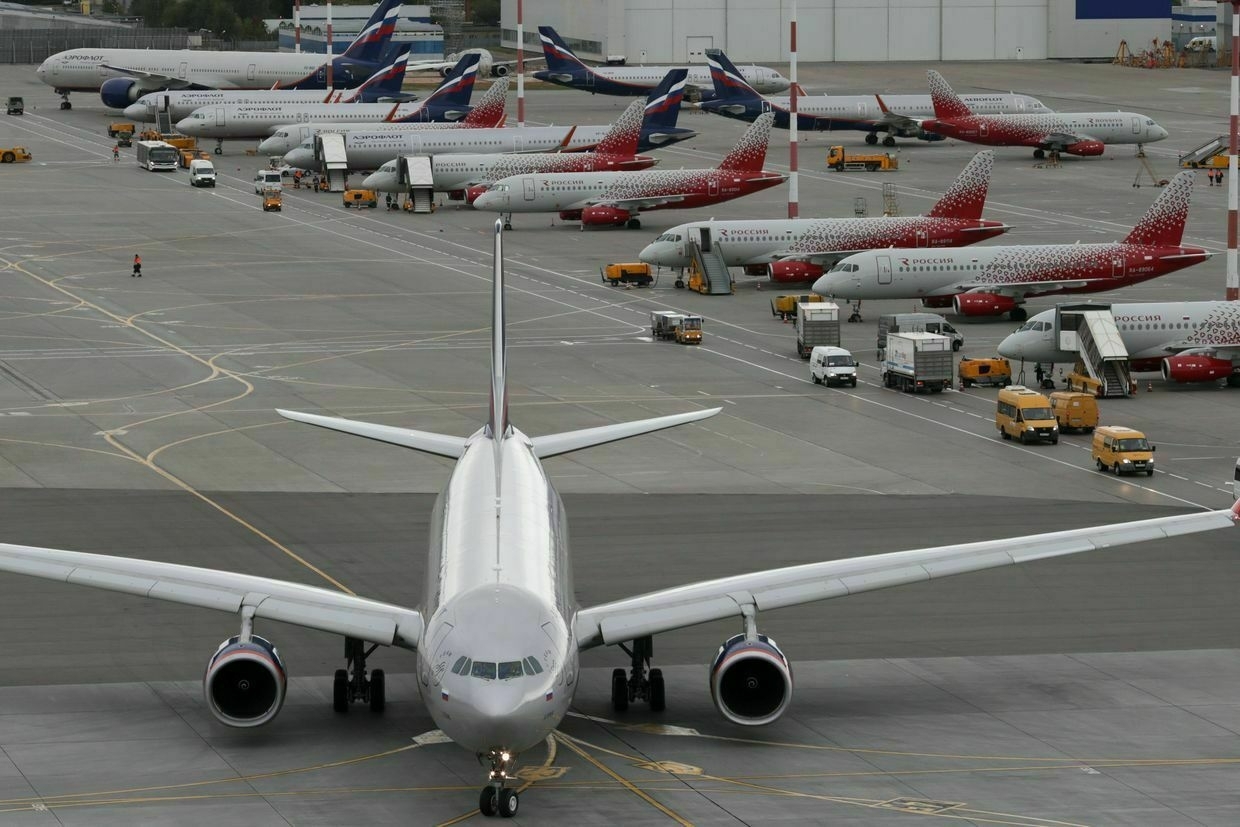
-
EU members preliminarily agree to launch 150-billion-euro defense fund, source says
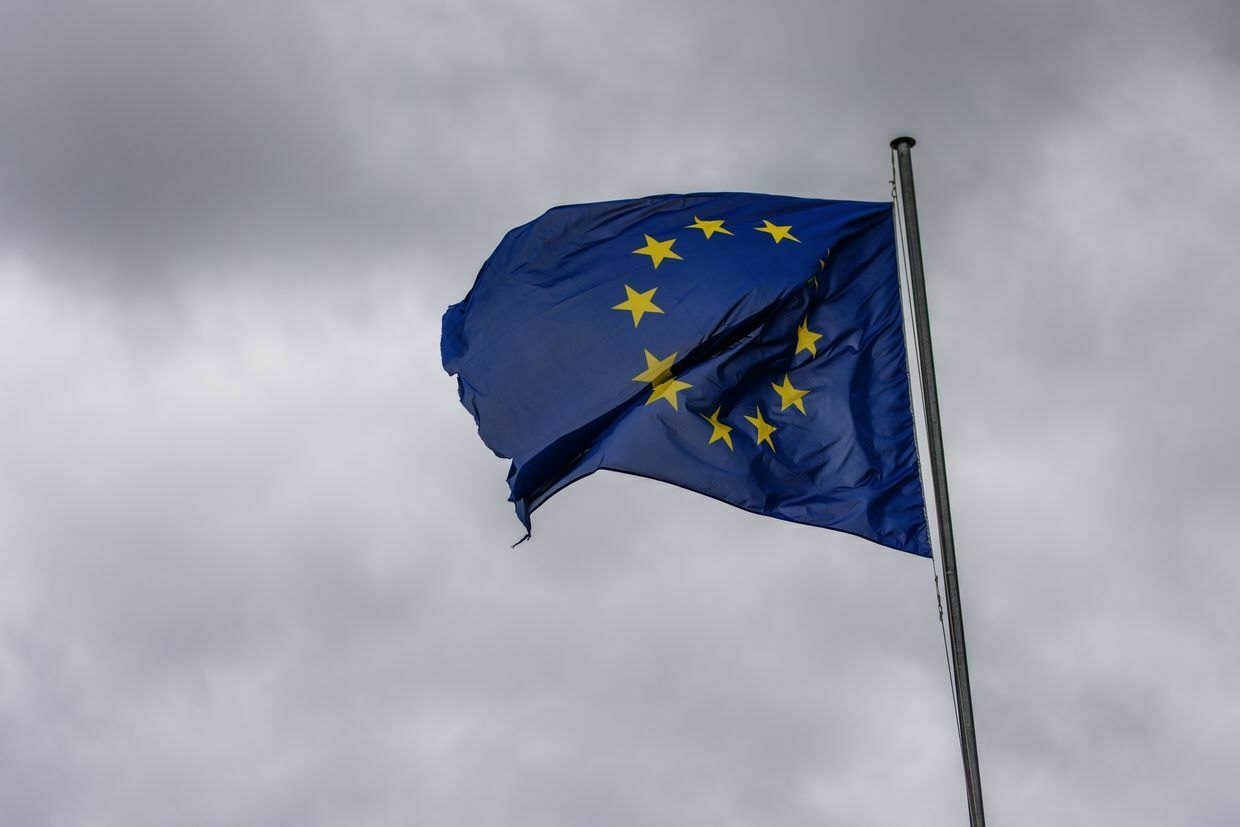
Editor’s note: The article was updated with a confirmation from an EU official.
EU countries have agreed in principle to launch a common defense fund of 150 billion euros ($170 billion), an EU official told the Kyiv Independent on May 19.
The decision was previously reported by the Financial Times and Bloomberg.
The move comes as Europe faces an increasingly challenging security environment, with Russia continuing to wage its war against Ukraine and U.S. security commitments to its European partners growing uncertain.
The new mechanism, proposed by the European Commission in March, will allow member states to borrow money from the EU to purchase weapons and military equipment. A formal approval is expected next week, Bloomberg’s source said.
Some non-EU countries will reportedly be able to participate in the program if their expenditures do not exceed 35% of the cost.
Despite agreement on the need to hike defense spending, several EU states have disagreed on whether these efforts should be coordinated with nations outside of the bloc, such as the U.K. or Turkey.
The U.K. and the EU concluded a new security pact on May 19, covering areas from maritime security to cyber threats, as London and Brussels seek to reset post-Brexit relations.
The 150-billion-euro fund was proposed as part of the European Commission’s ambitious ReArm Europe program, which would also allow member states to spend an additional 650 billion euros ($730 billion) on defense by loosening fiscal rules.
Some of the funds raised under the ReArm Europe program will be allocated to military support to Ukraine, EU Defense Commissioner Andrius Kubilius said in a media interview in May.
US allows Australia to send Abrams tanks to Ukraine despite private objections, media reportsDespite private protests, Washington eventually gave permission for Australia to begin shipping out the U.S.-made tanks to Ukraine, ABC reported.The Kyiv IndependentMartin Fornusek
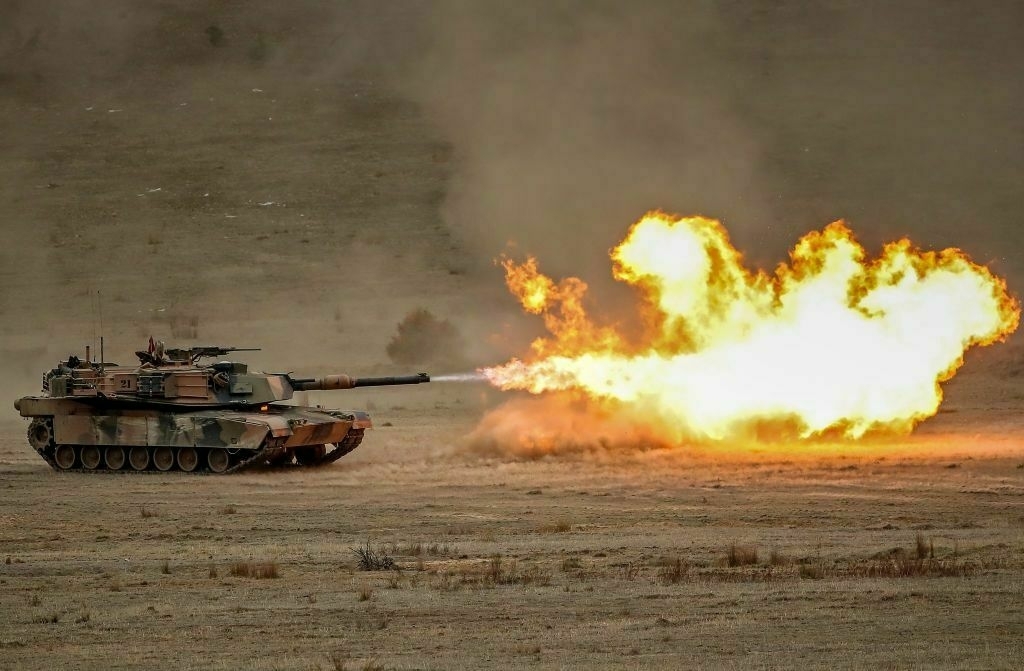
-
Thousands protest in Hungary against Russia-style bill targeting media, NGOs
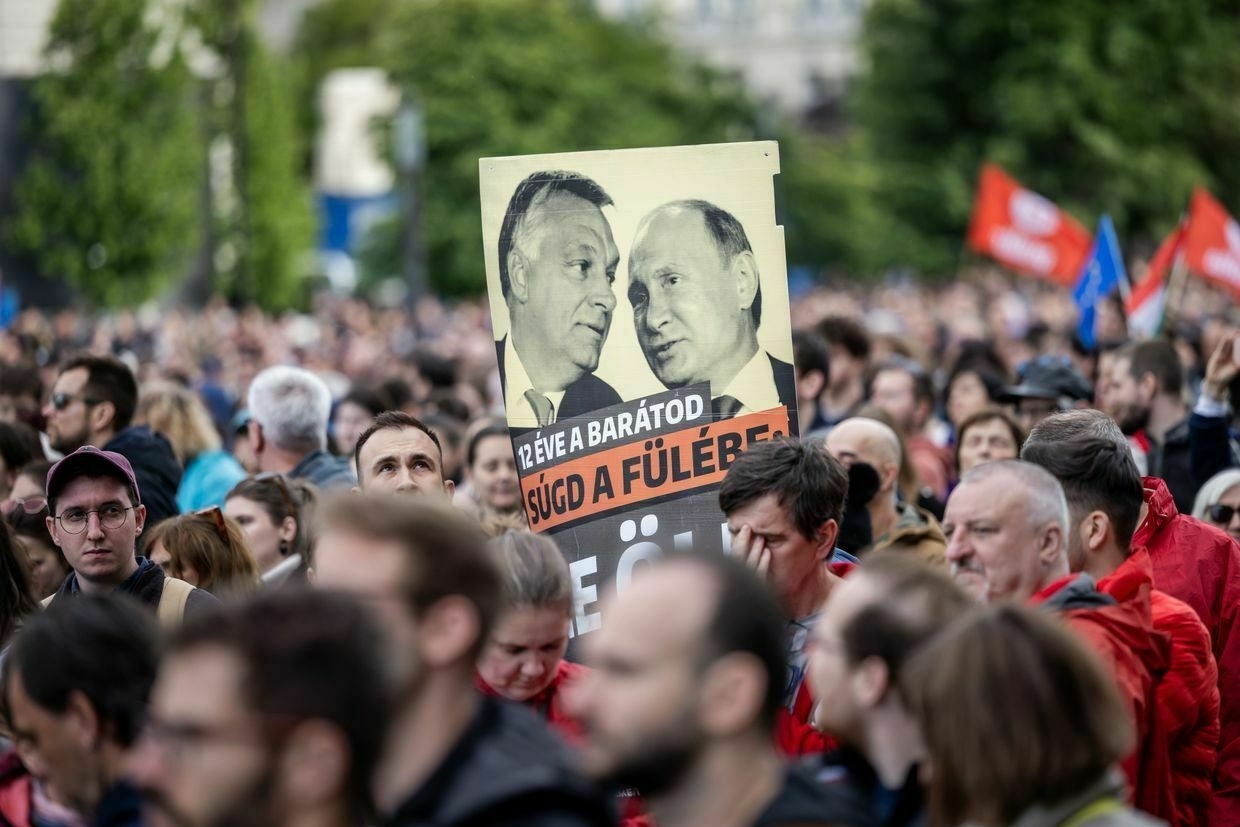
Around 10,000 people rallied in Hungary’s capital on May 18 to protest a controversial bill that critics say would limit free expression and mimic Russia’s restrictive “foreign agent” law, the Associated Press reported.
The demonstration in Budapest, one of the largest in recent months, came after a member of Prime Minister Viktor Orban’s ruling Fidesz party introduced legislation that would grant the government sweeping powers to investigate, penalize, or even ban media outlets and non-governmental organizations receiving any foreign funding.
Protesters packed Kossuth Square outside Hungary’s parliament, denouncing the bill as an attack on civil society and democratic freedoms. Speakers at the rally described the legislation as an authoritarian move designed to silence dissent ahead of national elections next year.
“This bill is nothing more than a threat, a threat against people being able to express their opinions clearly and freely,” said Jakab Toth, one of the speakers. “If it doesn’t belong to all of us, if not all of us are free, then sovereignty is solely and exclusively the sovereignty of the government."
The proposed law would create a government blacklist of organizations receiving international support and allow intrusive surveillance, large fines, and operational bans. It would be enforced by the Sovereignty Protection Office, a state body established in 2023 that critics say targets independent voices under the guise of national security.
Orban and his allies have accused foreign actors, particularly the United States during previous administrations and Ukraine, of funding independent media and anti-corruption groups to undermine his government. Those organizations deny the claims, saying their work serves the public interest and adheres to professional standards.
Hungary has faced increasing criticism from international watchdogs for eroding press freedom and democratic checks under Orban’s 15-year rule. The new legislation, expected to pass in the Fidesz-dominated parliament, is seen by many as the most repressive yet.
In May 2024, a similar foreign agents bill was passed in the Georgian Parliament. The law, backed by the ruling Georgian Dream party, mirrors repressive Russian legislation used to crack down on the Kremlin regime’s critics and NGOs in Russia with foreign ties of any kind.
Georgian Dream’s repressions against independent media and decisions to distance the country from the EU have prompted mass protests spanning months and violent crackdowns by the police in the country.
After spying scandal erupts, Orban accuses Ukraine of meddling, cooperating with Hungarian opposition“Ukraine has initiated a coordinated campaign to vilify Hungary in order to undermine our initiative to hold a poll on (Kyiv’s) EU membership,” Hungarian Prime Minister Viktor Orban said.The Kyiv IndependentTim Zadorozhnyy
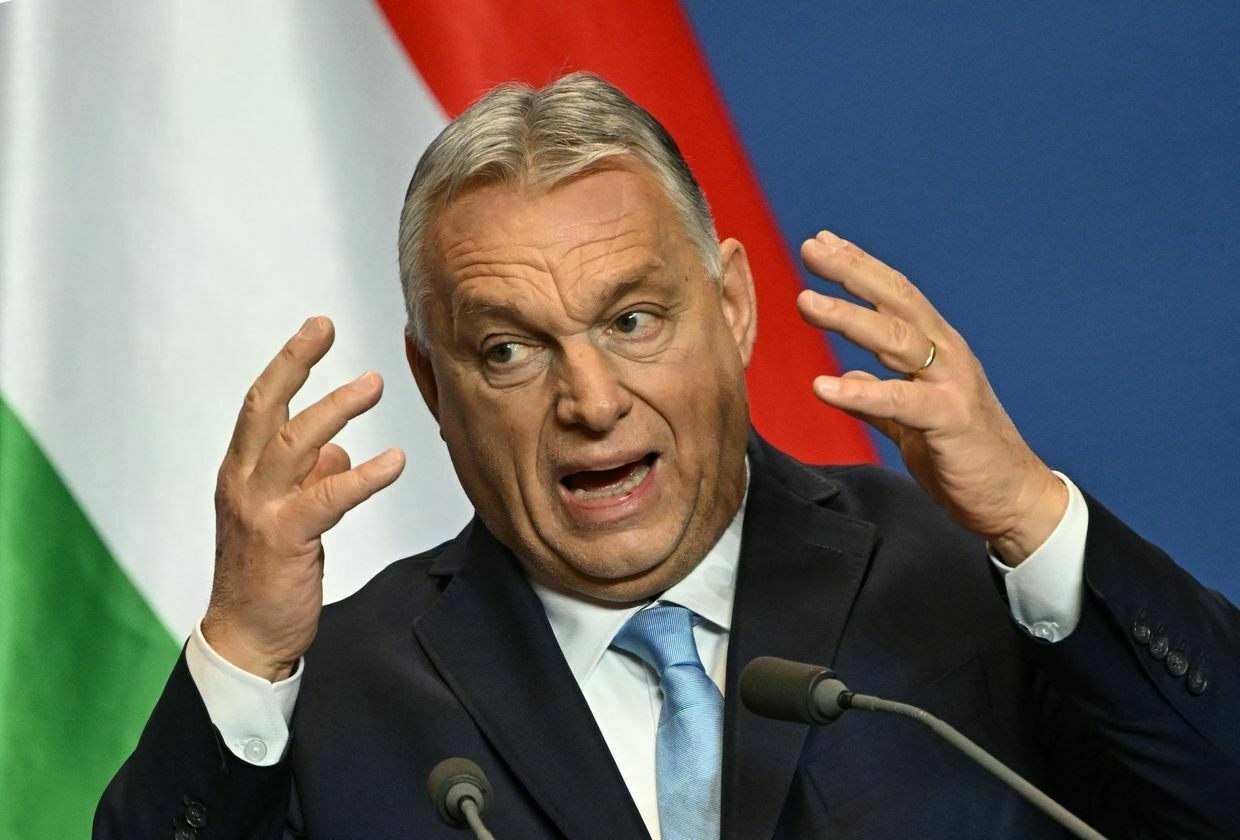
-
US allows Australia to send Abrams tanks to Ukraine despite private objections, media reports
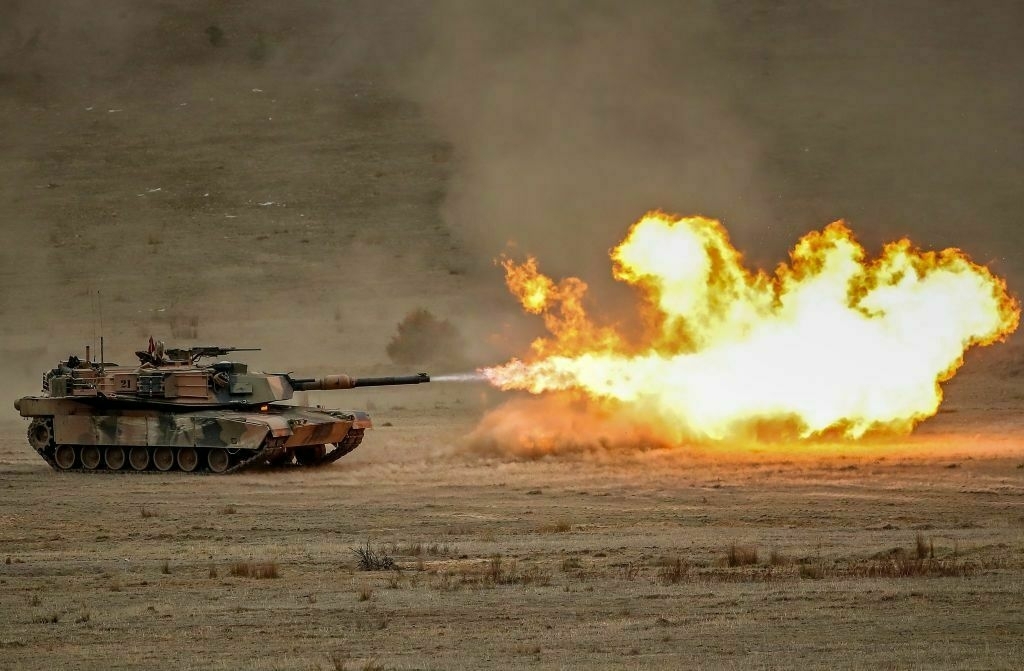
Australian authorities have begun loading the first of the 49 decommissioned Ukraine-bound Abrams tanks onto a cargo ship despite continued private objections from U.S. officials, Australian Broadcasting Corporation (ABC) reported on May 19.
Australian Prime Minister Anthony Albanese confirmed the upcoming delivery of the tanks when meeting President Volodymyr Zelensky in Rome on May 18. The exact date of their arrival is withheld for security reasons, ABC reported.
The Australian broadcaster reported back in April that the shipments of the retired tanks, which are meant to bolster Ukrainian forces as they resist Russian aggression, are delayed in part due to resistance from Washington.
These objections have not fully subsided, with at least one U.S. official questioning their usefulness on the Ukrainian battlefields, according to ABC. An undisclosed Australian defense official told the broadcaster that Canberra is uncertain whether Kyiv is even interested in the vehicles, as their weak roof makes them vulnerable to drones.
U.S. officials have also reportedly pointed to difficulties with their maintenance in the demanding conditions of the Russia-Ukraine war.
Despite the private protests, Washington eventually gave permission for Australia to begin shipping out the U.S.-made tanks to Ukraine, ABC reported.
Australia pledged to send Kyiv the 49 M1A1 Abrams tanks as part of a broader military aid package in October 2024. Ukraine previously received 31 Abrams tanks from the Biden administration in late 2023, though it is unclear how many are still operational as of 2025.
Unlike his predecessor, Joe Biden, U.S. President Donald Trump has been reluctant to allocate additional military aid to Kyiv, aiming instead to broker a peace deal with Russia.
The effectiveness of Abrams tanks on the battlefield in Ukraine has been previously called into question by Western officials. The Associated Press (AP) reported in April 2024 that Ukrainian forces were pulling the tanks from the front lines due to the high risk of detection by Russian drones. The Ukrainian military denied the claim.
Ukraine war latest: Russia launches record 273-drone attack on Ukraine ahead of planned Trump-Putin callKey developments on May 17-18: * Russia launches record 273-drone attack on Ukraine ahead of planned Trump-Putin call * Trump to talk to Putin on May 19 in push to end Ukraine war ‘bloodbath’ * Russia plans ‘training’ launch of Yars intercontinental ballistic missile overnight on May 19, Ukraine’s HUR claims * New clipsThe Kyiv IndependentThe Kyiv Independent news desk
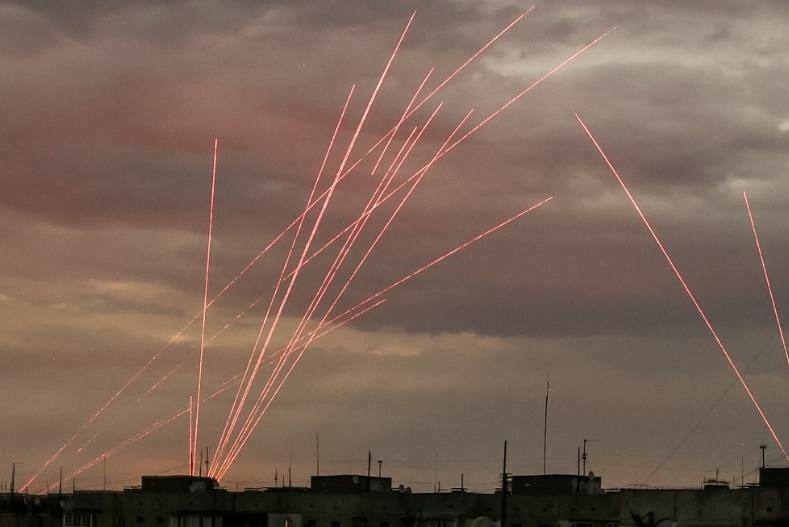
-
Three years into full-scale war, Eurovision still hasn’t solved its Russia problem
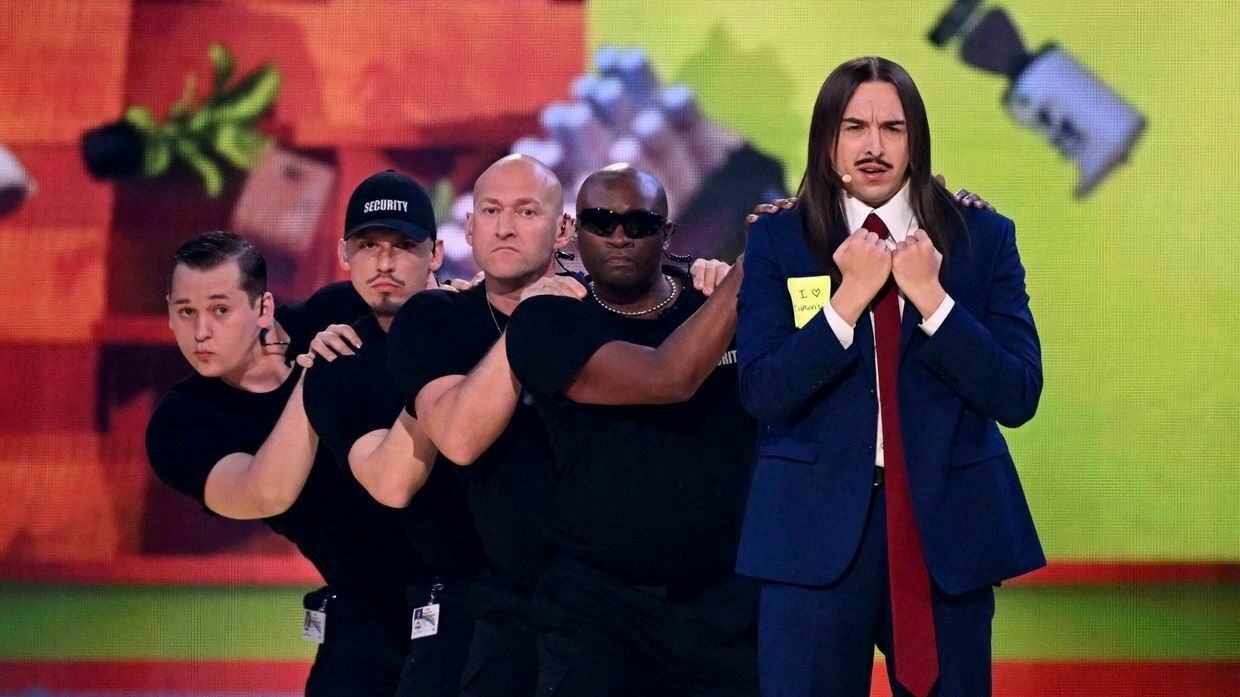
This year’s Eurovision Song Contest is taking place in neutral Switzerland, but politics are center stage. While debate continues over Israel’s participation amid the war in Gaza, Russia — banned from the contest since its full-scale invasion of Ukraine — continues to cast a shadow over the event.
This year, entries from Estonia, Austria, Ireland, Armenia, and Georgia have come under scrutiny for their perceived ties to Russia or cultural influences linked to it.
The grand final of Eurovision 2025 will take place on May 17 in Basel, Switzerland, starting at 10 p.m. Kyiv time (2 p.m. EST). Ukraine’s representative, the band Ziferblat, has qualified for the final with their song “Bird of Pray.”
The Kyiv Independent takes a closer look at some of the most notable cases of Russia’s influence among this year’s contestants.
EstoniaProvocative Estonian representative Tommy Cash has stirred controversy over the Russian influences in his background and work.
Currently, Cash describes himself as being of mixed Russian, Estonian, Ukrainian, and Kazakh descent. However, in older footage, he simply stated that his parents were Russian.
He grew up in a predominantly Russian-speaking neighborhood in Tallinn, Estonia’s capital, and Russian culture has played a major role in shaping his identity. Russian is his second language after Estonian, and post-Soviet aesthetics are a recurring theme in his art.
What has raised eyebrows among some Ukrainians is that his Eurovision music video for “Espresso Macchiato” involves both Russian and Ukrainian collaborators. The video’s director, Alina Pyazok, is a Russian native now based in Los Angeles who has publicly condemned the war. She initially posted an Instagram story listing the nationalities of the creative team, marked with Russian and Ukrainian flags — but later deleted it, apparently in response to backlash.
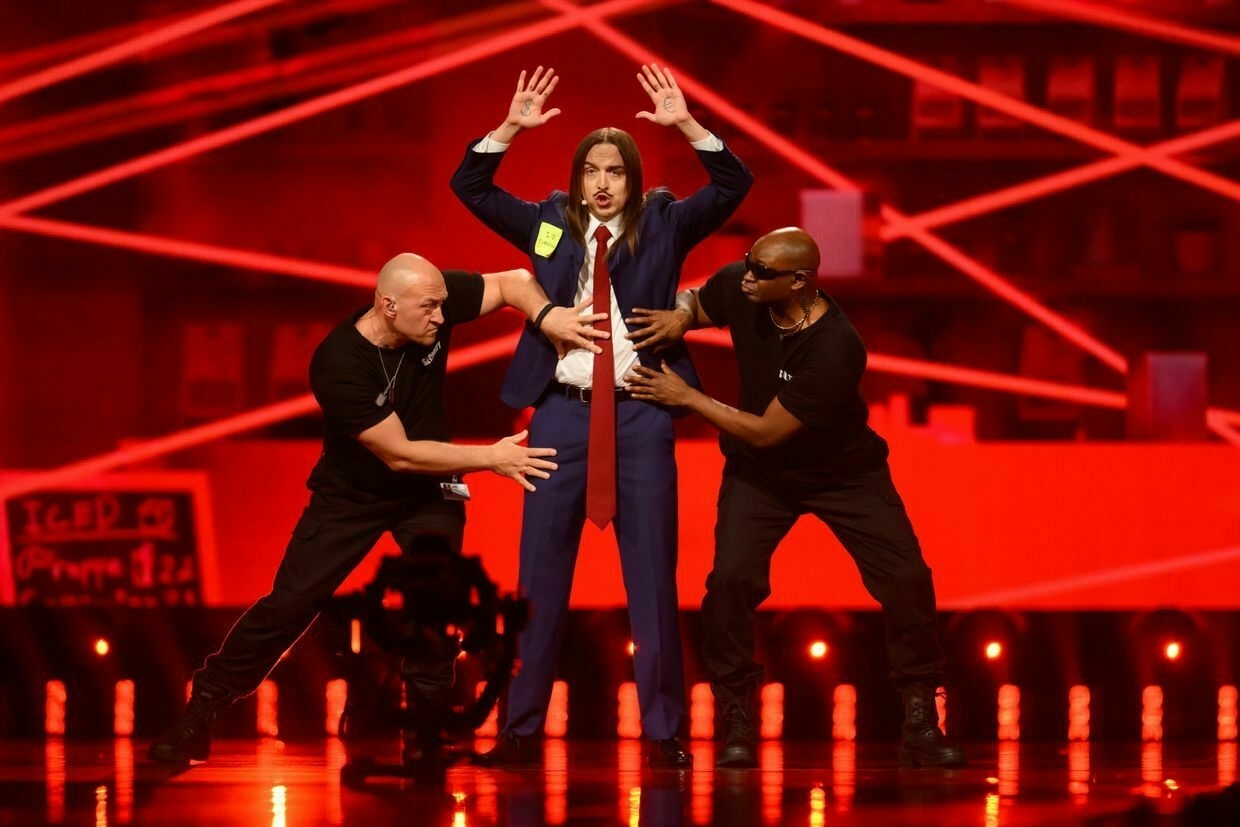
Tommy Cash, representing Estonia, performs during a rehearsal ahead of the semi-final of the 69th Eurovision Song Contest in Basel, Switzerland, on May 13, 2025. (Harold Cunningham / Getty Images) Cash has previously collaborated with the Russian band Little Big — known for their satirical style and for fleeing Russia after the full-scale invasion — releasing two joint music videos with them in 2015.
Rumors have also been circulating that Tommy Cash visited Russian-occupied Crimea in 2021. However, this claim remains unconfirmed. The artist’s representative denied the rumor, saying: “It is obvious that Tommy did nothing of the sort. With everything happening in the world right now, Russia is no longer of interest to Tommy.”
After the full-scale invasion began, Cash canceled his scheduled concerts in Kyiv, Moscow, and St. Petersburg. He has confirmed in both his music and interviews that he hopes to one day perform again in both Russia and Ukraine.
His public response to the war has been seen by some as vague. While he stated he condemns the war, he avoided naming Russia as the aggressor.
In a Facebook post in February 2022, he wrote: “It’s very hard to accept the current military actions, it’s all very sad! I am a strong opponent of any military aggression. I fully support the Ukrainian people and the people of Russia who do not support the invasion — it’s not their choice,” he wrote on Facebook. “This is an extremely sad situation, and I really hope that soon I will be able to return to these beautiful countries to perform my new music there.”
AustriaAustrian contestant JJ, currently ranked second by bookmakers, has sparked controversy by revealing in an interview with APA that he drew inspiration for his Eurovision song “Wasted Love” from Russian opera singer Anna Netrebko, among others.
Netrebko, who has longstanding ties to the Kremlin, has faced criticism for supporting Russian President Vladimir Putin and Russia’s war in Ukraine since 2014.
Though she publicly condemned Russia’s full-scale invasion in 2022 — a move widely seen as necessary to preserve her international opera career — she stopped short of directly condemning Putin.
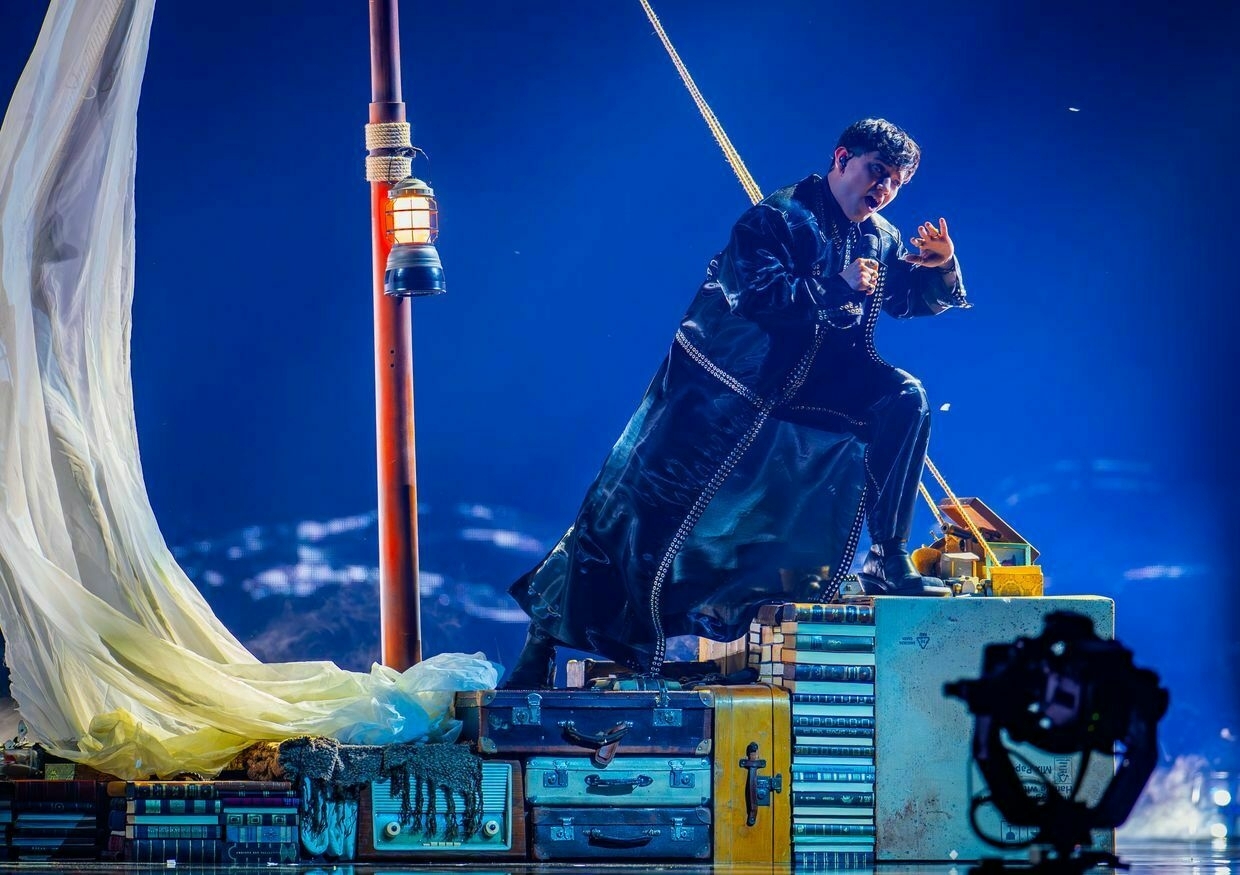
JJ of Austria performs “Wasted Love” during a rehearsal for the semi-final of the 69th Eurovision Song Contest in Basel, Switzerland, on May 14, 2025. (Jens Büttner / Picture Alliance via Getty Images) Many Ukrainians still recall that in 2014, Netrebko was photographed at an event in St. Petersburg alongside pro-Russian Ukrainian politician Oleh Tsariov and the flag of Russian-occupied Donetsk. At the event, she donated one million rubles to an opera house in Donetsk, claiming it had “nothing to do with politics."
In 2012, Netrebko also supported Putin’s reelection, with her name officially listed among the campaign’s endorsers.
Since the onset of Russia’s full-scale war, many of Netrebko’s concerts were canceled across Europe over her controversial political stance. However, some European opera houses have recently begun welcoming her back.
Netrebko now resides in Austria and performs at the Vienna State Opera, where JJ also performs.
JJ, who had followed Netrebko on Instagram and liked her posts until recently, no longer appears to be following her. Furthermore, Netrebko’s page seems to have been deactivated.
The Austrian contestant has remained silent on the controversy and his stance on the Russian war in Ukraine.
Join our communitySupport independent journalism in Ukraine. Join us in this fight.Support usArmeniaArmenia’s Eurovision contestant Parg has drawn criticism for maintaining close cultural ties with Russia following its full-scale invasion of Ukraine.
In June 2022, during the early months of the war, he performed in Volgograd and was shortlisted for the Ural Music Night festival in Yekaterinburg.
Between 2022 and 2024, he recorded and posted a few covers of songs by Russian artists active in the country. In July 2024, he also performed at the opening of a water park in Sochi.
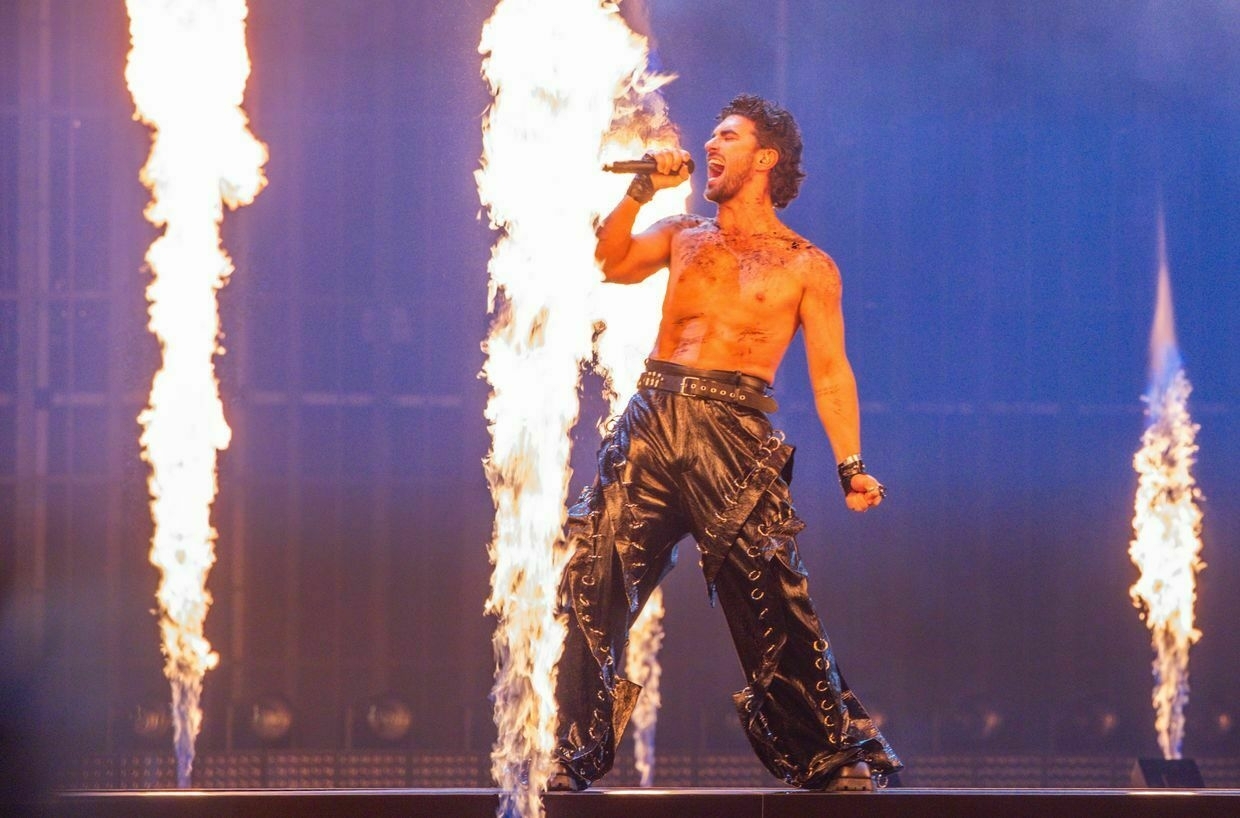
Parg of Armenia performs the song “Survivor” during a rehearsal for the semi-final of the 69th Eurovision Song Contest in Basel, Switzerland, on May 14, 2025. (Jens Büttner / Picture Alliance via Getty Images) Born in Armenia, Parg moved to Russia with his parents as a child and lived there for most of his life. Although he returned to Armenia in 2022, he has continued to travel to Russia and perform there.
Parg hasn’t publicly commented on his performances in Russia during the full-scale war.
IrelandIreland will be represented at this year's Eurovision by Norwegian singer Emmy performing “Laika Party” — a song about the Soviet space dog who became the first living being launched into Earth orbit in 1957.
Laika, a stray from the streets of Moscow, was sent into space by the Soviet Union at a time when no technology existed to bring her back. Its survival was never expected. Initial Soviet reports falsely claimed Laika lived for several days, using its story to glorify the mission.
It was later revealed that the dog died within hours due to overheating and stress. Some believe its death could have been avoided if the mission hadn’t been rushed to showcase Cold War-era technological dominance.
Laika’s story is both a scientific milestone and a moral controversy that continues to raise ethical questions about animal testing. Meanwhile, “Laika Party” is a cheerful electro-dance song that frames Laika’s journey as a heroic sacrifice.
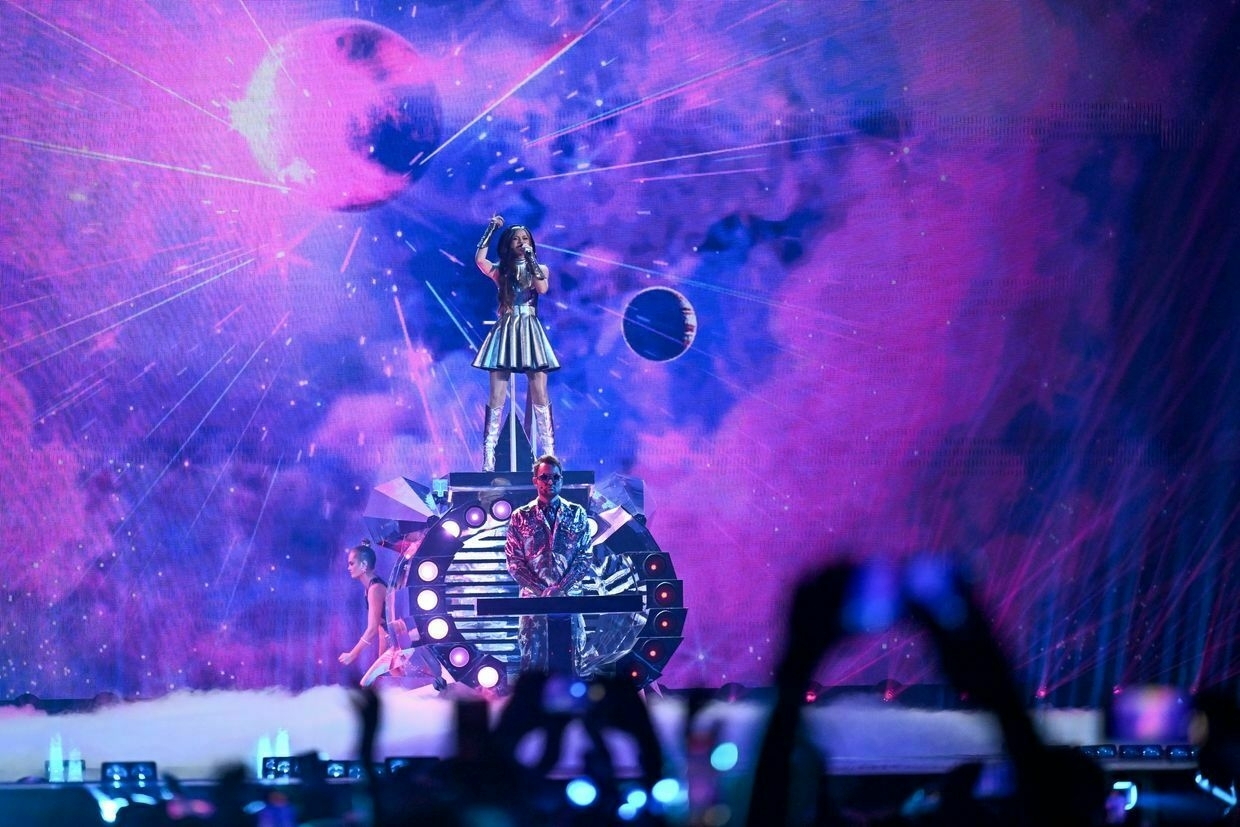
Norwegian singer Emmy, representing Ireland with the song “Laika Party,” performs during the rehearsal for the semi-final of the Eurovision Song Contest 2025 in Basel, Switzerland, on May 14, 2025. (Fabrice Coffrini / AFP via Getty Images) The song was co-written by a Russian singer and songwriter, Larissa Tormey, who relocated to Ireland 25 years ago after getting married to an Irish man.
She met Emmy at a songwriting camp in Norway, where Emmy reportedly told her she had recently learned about Laika’s tragic fate at a family quiz and felt compelled to write a song “with a more cheerful ending, where the dog is dancing around the stars.”
“This topic was very close to me, because it’s part of Soviet history,” Tormey told the Russian propaganda outlet Komsomolskaya Pravda. “We wrote the song in two hours.”
It was Tormey who encouraged Emmy to submit the track to Ireland’s national selection. As the only Irish citizen among the songwriters, she made the entry eligible under contest rules.
Tormey has publicly opposed the war in Ukraine and took part in a fundraising concert for the Irish Red Cross to support Ukrainian aid efforts. At the same time, she has expressed sympathy for people in Russia, saying, “Ordinary Russian people have nothing to do with what is happening, and they are going to be victims of this as well.”
GeorgiaThe participation of Georgian representative Mariam Shengelia has sparked backlash both internationally and among many Georgians, with some even calling for her disqualification.
Shengelia openly supports Georgian Dream, the pro-Russian ruling party accused of seizing power through fraudulent elections. Thousands of Georgians continue nationwide protests as the party intensifies its crackdown on dissent.
Georgian Dream has increasingly distanced the country from the West by passing a controversial “foreign agents” law and adopting Kremlin-style policies. The party pushes to abandon European integration in favor of closer ties with Russia.
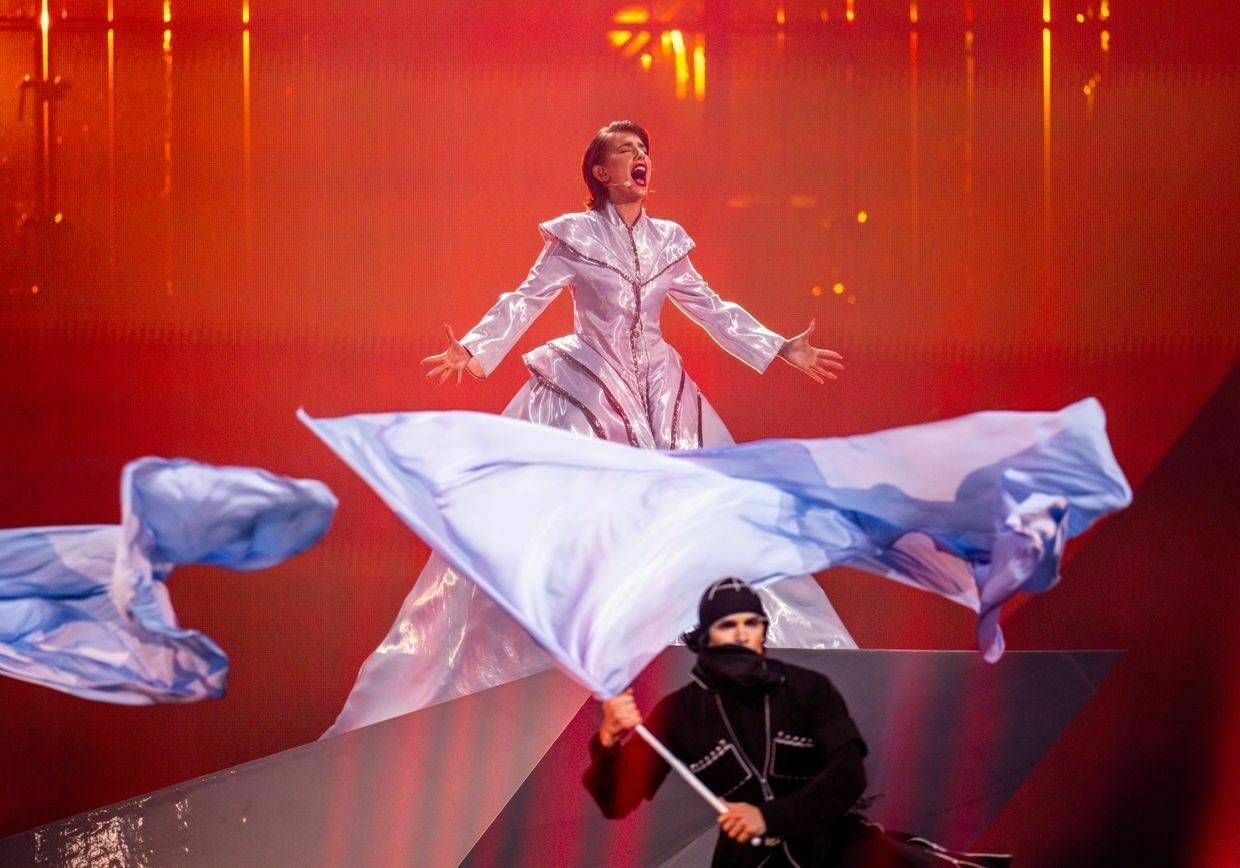
Mariam Shengelia of Georgia performs her song “Freedom” during a rehearsal for the semi-final of the 69th Eurovision Song Contest in Basel, Switzerland, on May 14, 2025. (Jens Büttner / Picture Alliance via Getty Images) Interestingly, Shengelia supported Ukraine in early 2022 following Russia’s full-scale invasion, but by 2024, her attitude shifted as she performed at a pro-Georgian Dream concert and campaigned for the party ahead of the elections, urging voters to keep the country "in peace."
Though her Eurovision song “Freedom” sounds like a patriotic ode to Georgia, Shengelia describes it as a message of peace. Peace was also a central theme in Georgian Dream’s campaign, which branded itself as a party that "says yes to peace, no to war," while clearly endorsing a pro-Russian stance.
In response to social media claims labeling her pro-Russian, Shengelia dismissed the criticism as “absurd” and the result of “disinformation.”
Russia killed Ukrainian author Victoria Amelina — but not her words or quest for justiceUkrainian author Victoria Amelina never got to finish writing her book “Looking at Women, Looking at War.” After she was killed in a Russian missile strike on Kramatorsk in Ukraine’s eastern Donetsk Oblast in 2023, it fell upon her closest friends and colleagues to do what they could toThe Kyiv IndependentKate Tsurkan
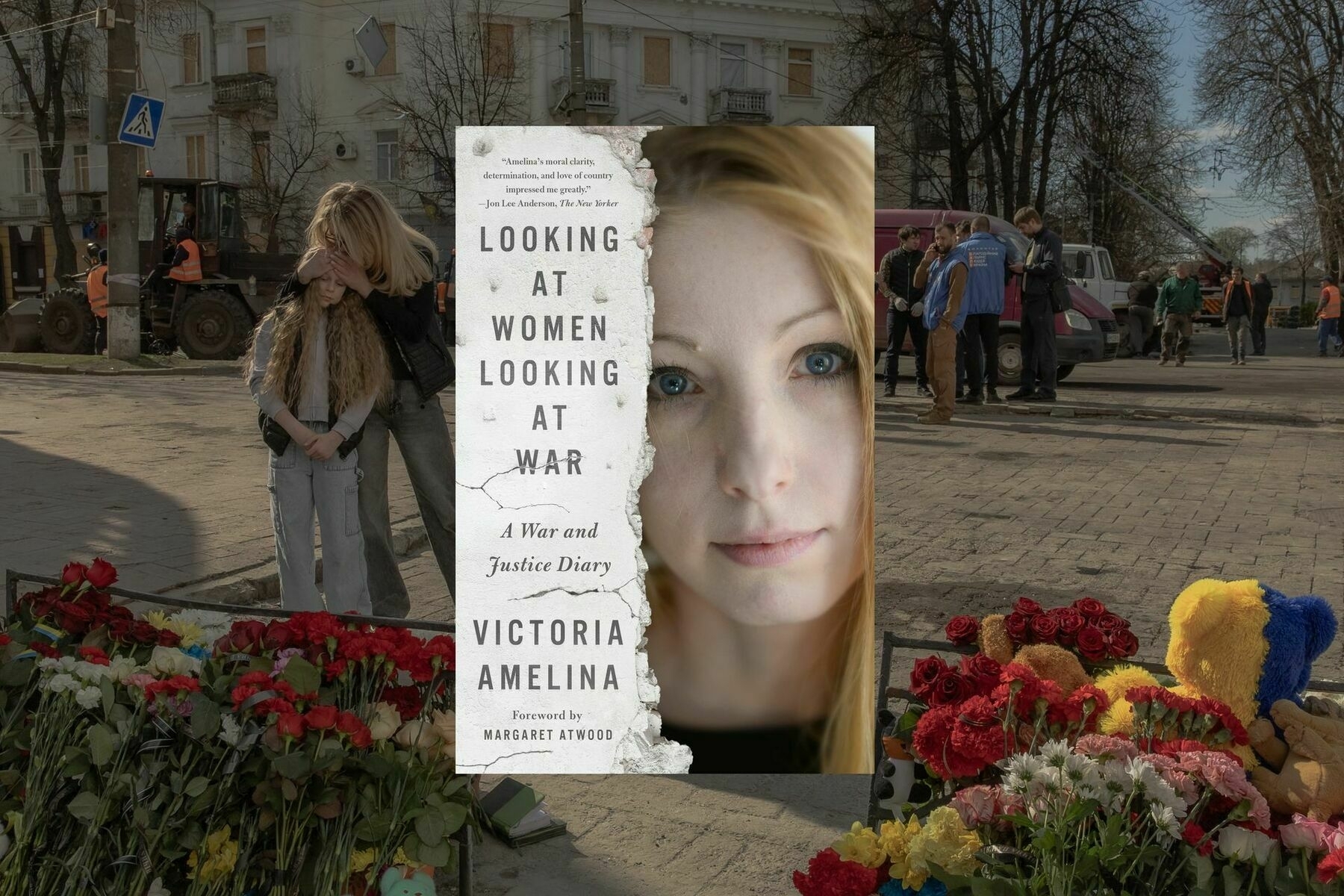
-
EU to hike tariffs on Ukrainian imports amid Poland's push, FT reports
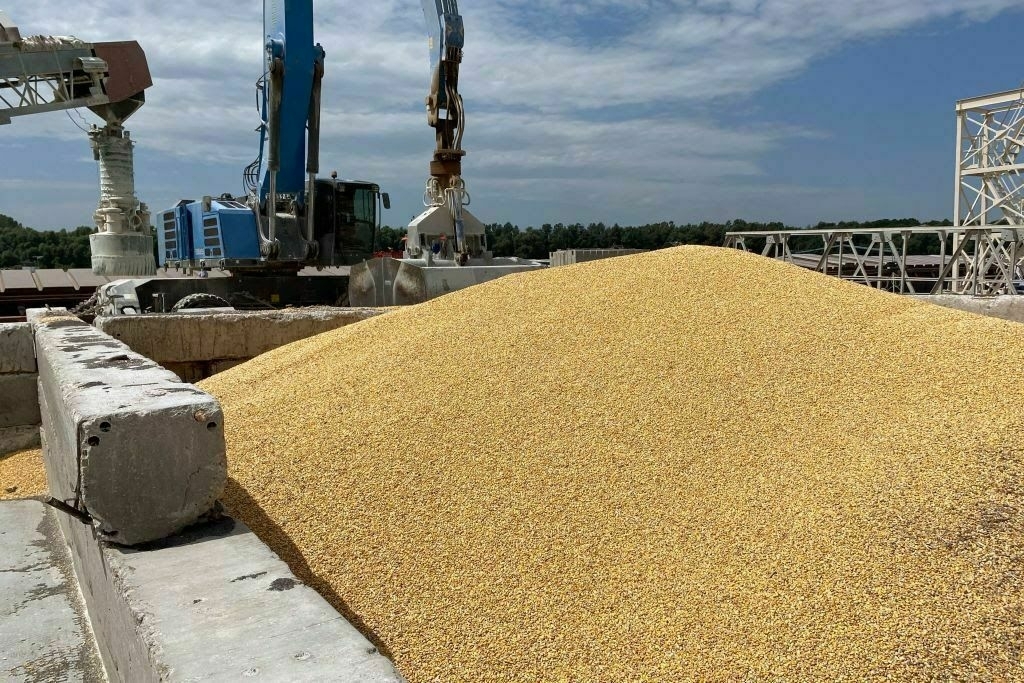
The EU plans to significantly increase tariffs on Ukrainian goods after the current duty-free deal lapses on June 6, the Financial Times reported on May 14, citing undisclosed diplomatic sources.
The move follows Poland’s call for the European bloc to adopt measures to protect European farmers, according to the news outlet.
The EU concluded a duty-free regime deal with Ukraine in 2022 to alleviate the Ukrainian economy amid the full-scale war with Russia and help the country ship out its goods, primarily agricultural products, to global markets.
This prompted protests among farmers across Europe, namely in Poland, who complained that the influx of cheaper Ukrainian grain, poultry, eggs, and other products is pushing down prices and damaging their businesses.
The Polish media reported in February that the EU does not plan to extend the preferential trade agreement framework in its current form past its June expiration date and is considering a new set of rules instead.
The subsequent transition period would significantly reduce the tariff-free quota for Ukrainian agricultural products, its key export commodity, the Financial Times reported.
The development comes as Polish truckers launched a brief blockade at one of Ukraine’s border crossings over what they see as unfair competition from Ukrainian carriers. It also comes shortly before Poland’s presidential election, with the leading right-wing candidate, Karol Nawrocki, adopting increasingly harsh rhetoric toward Kyiv.
Romania heads to historic presidential runoff as pro and anti-Ukraine candidate are neck-and-neckDays before the Romanian presidential election runoff, the two presidential hopefuls are neck-and-neck. According to the latest poll by AtlasIntel, far-right George Simion and liberal pro-EU Bucharest Mayor Nicusor Dan are tied at 48.2%. Yet, another poll by CURS gives Simion 52% and Dan 48%. Both are running on an anti-establishment platform in a country seeking change. Yet, with two drastically different views on the country’s future, whoever takes the presidency will have the chance to chan The Kyiv IndependentPaula Erizanu
The Kyiv IndependentPaula Erizanu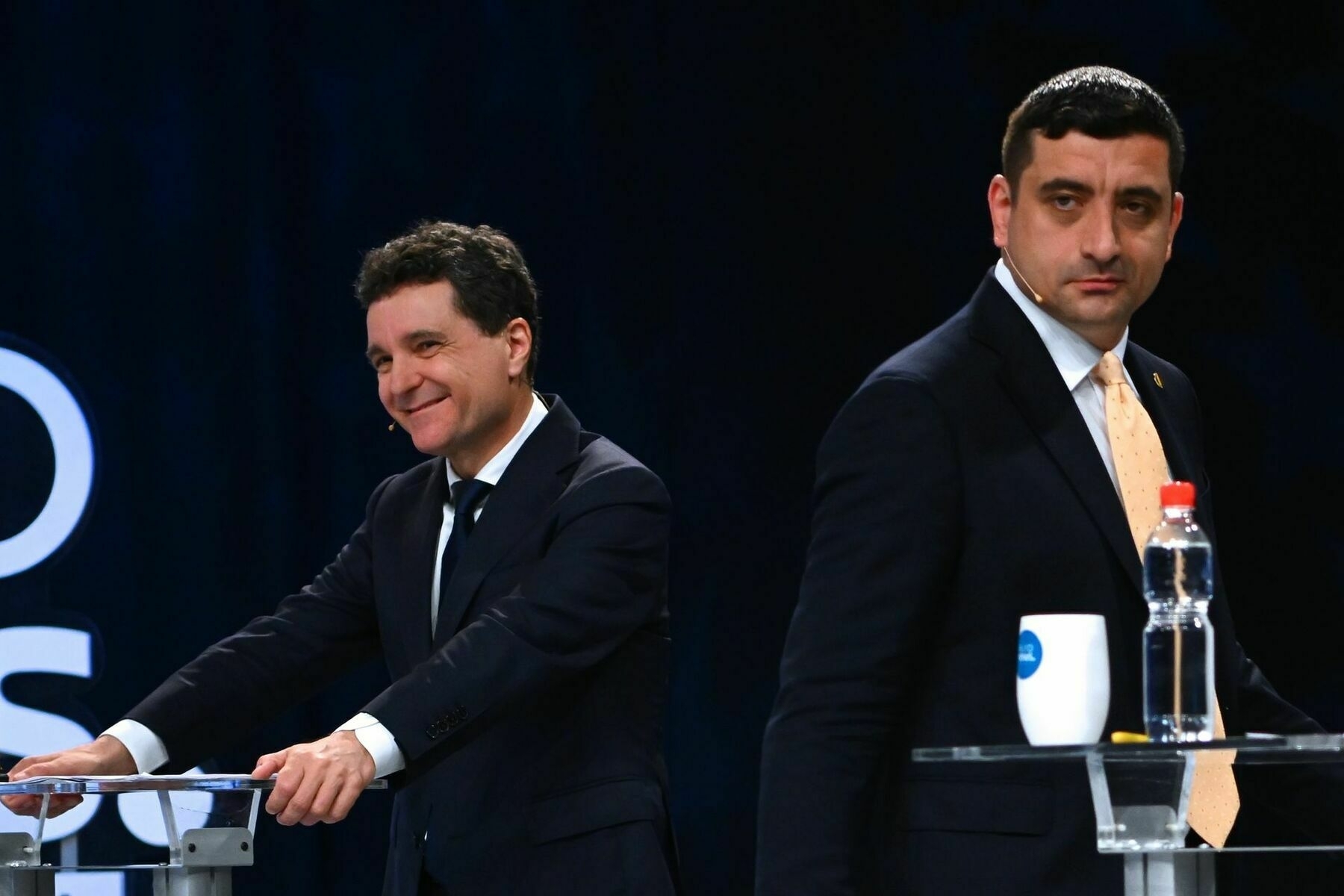
-
Polish protesters end blockade at Ukraine's border after court ruling

Polish truckers lifted the blockade at the Yahodyn-Dorohusk checkpoint on the Ukrainian border, Ukraine’s State Border Guard said on May 13.
The protesters ended the blockade after the Lublin Court of Appeal upheld Dorohusk Mayor Wojciech Sawa’s decision to ban the rallies on May 8.
The blockade ended at 10:30 p.m. local time. Truck traffic in both directions is now moving as usual, according to Ukraine’s State Border Guard’s statement.
Polish truckers started protests at the Yahodyn-Dorohusk checkpoint on May 12 at 4 p.m. local time.
The protesters limited truck passage through the largest cargo customs post on the Ukrainian-Polish border to one vehicle per hour in each direction.
Overnight on May 13, the Yahodyn customs post processed only eight trucks. Gasoline and gas tankers were allowed to pass along with other trucks, one truck per hour. Some trucks have been waiting in line for over a day, Ukraine’s State Border Guard said.
The organizers presented the latest protest as an effort to draw attention to the “plight of transport companies and the threat to thousands of jobs."
Over the past few years, Polish truckers, farmers, and other protesters have launched months-long blockades at the Polish-Ukrainian border, largely aimed against Ukrainian agricultural imports and the EU’s lifting of most duties on Ukrainian imports in 2022.
-
Romania heads to historic presidential runoff as populist and pro-EU candidate are neck-and-neck
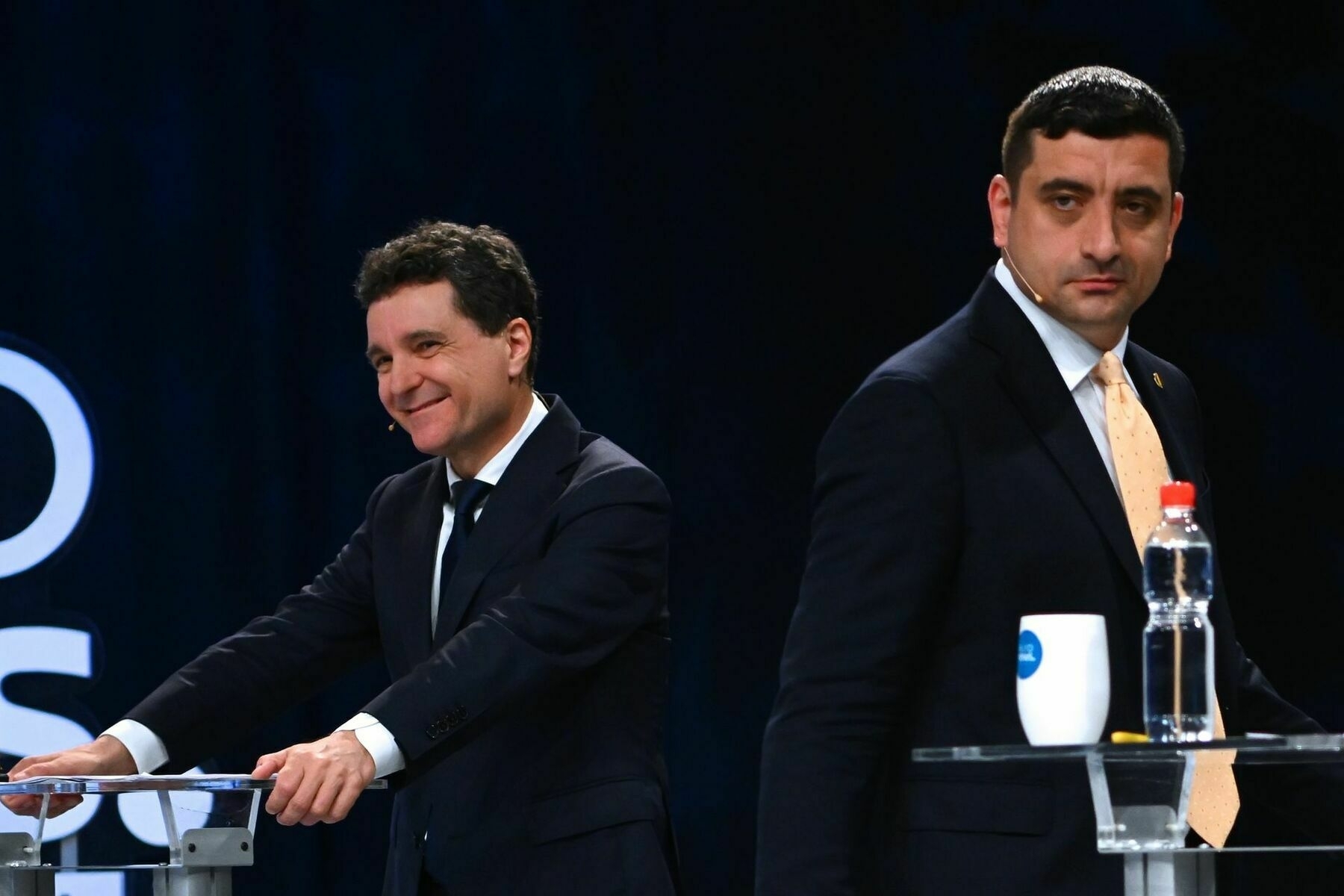
Days before the Romanian presidential election runoff, the two presidential hopefuls are neck-and-neck. According to the latest poll by AtlasIntel, far-right George Simion and liberal pro-EU Bucharest Mayor Nicusor Dan are tied at 48.2%.
Yet, another poll by CURS gives Simion 52% and Dan 48%.
Both are running on an anti-establishment platform in a country seeking change. Yet, with two drastically different views on the country’s future, whoever takes the presidency will have the chance to change Romania for years to come.
The shocking voteAfter Russian-friendly nationalist Simion, leader of the Alliance for the Union of Romanians (AUR), took the first round by storm with 41% of the votes on May 5, the government coalition formed by the mainstream National Liberal Party, the Social Democrat Party and the Hungarian minority UDMR — whose common candidate Crin Antonescu came third with 20% of the vote — dismantled.
The national currency, the leu, fell to a historic low when compared to the euro and dollar, despite the Romanian Central Bank’s billion-euro effort to stabilize the national currency.
Scoring a mere 21% of the votes, Dan’s chances to win the presidency seemed dim without an incredibly high mass mobilization of the electorate.
The first opinion poll made by Verified and published by Dan after the first round showed Simion winning with almost 55% of the votes in the runoff. The poll excluded Romania’s diaspora, which is backing Simion. There has also been a tendency for Simion voters to refuse to participate in polls.
Running as an independent and relying on private donations, Dan has gained the support of the liberal Save Romania Union (USR), the party he founded in 2016 but left next year over the question of LGBTQ+ rights.
Dan was opposed to giving same-sex partnerships the same rights as those of heterosexual couples.
For the runoff, Dan has also garnered the support of the National Liberal Party and the Hungarian minority party UDMR. The Social Democratic Party, Romania’s biggest political party, officially abstained from endorsing a candidate. Antonescu, who came third, dismissed both candidates.
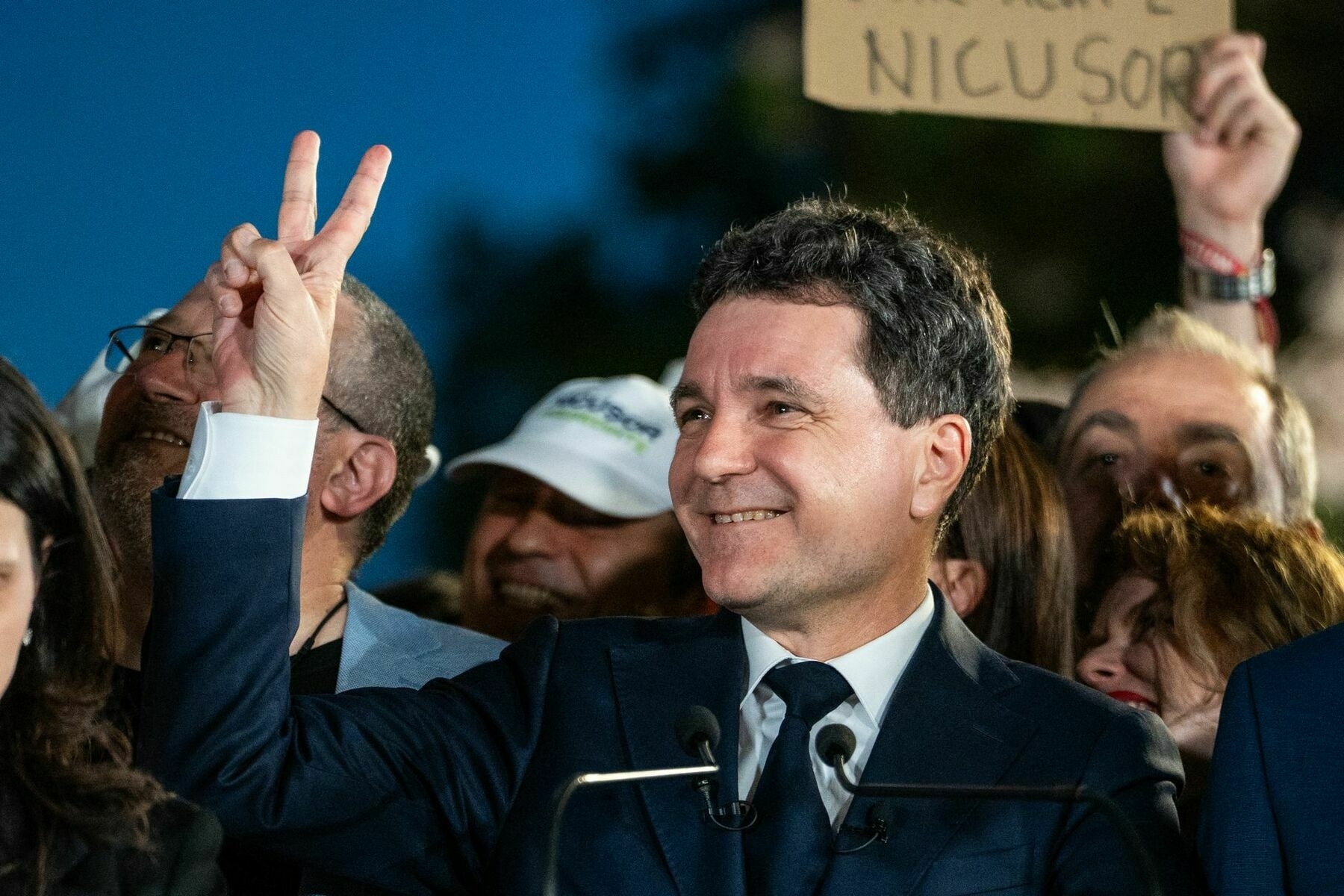
Romanian presidential candidate Nicusor Dan after exit poll results are announced in Bucharest, Romania, on May 4, 2025. (Mihai Barbu / AFP via Getty Images) 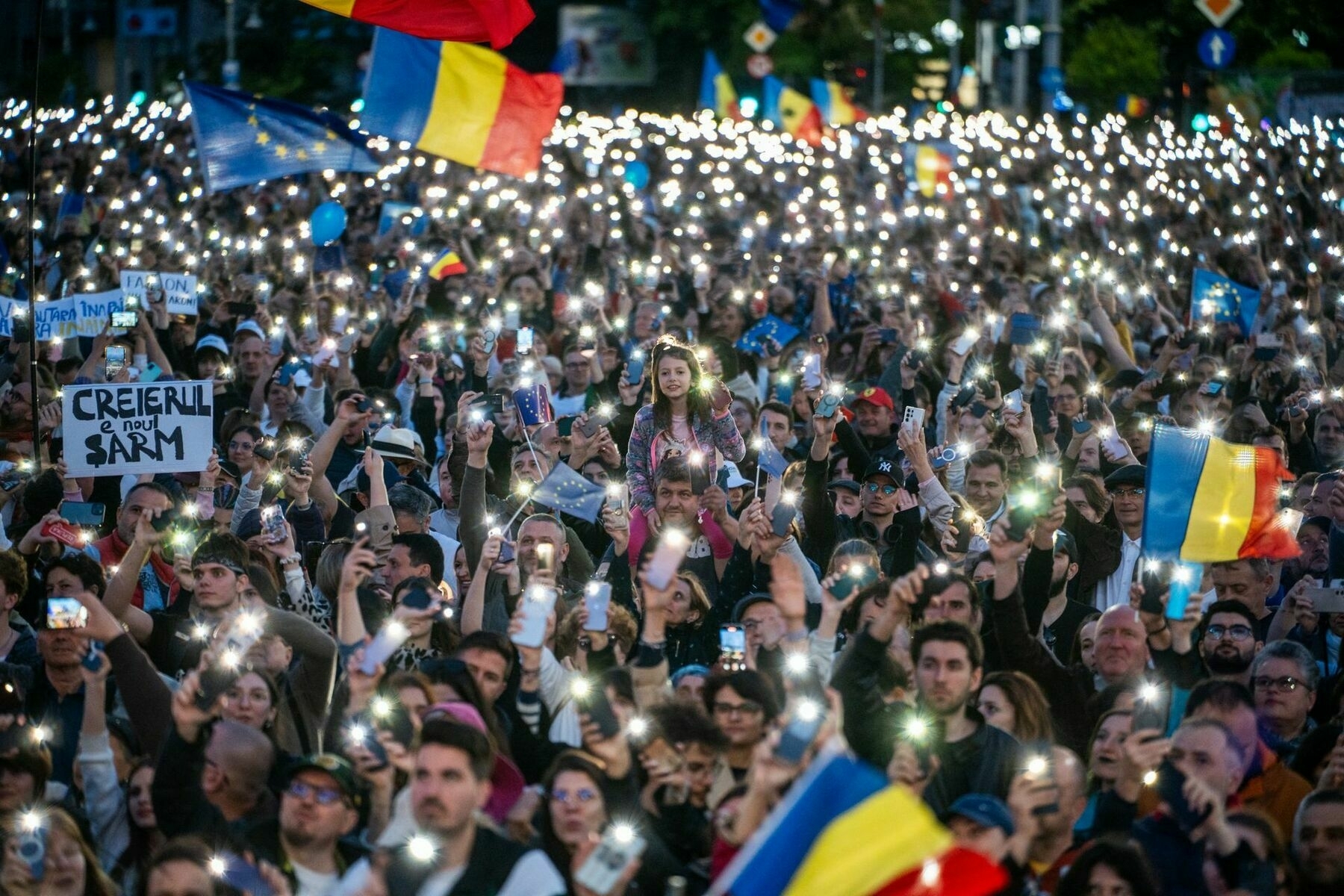
Supporters of Romanian presidential candidate Nicusor Dan attend an electoral rally in Bucharest, Romania, on May 11, 2025. (Mihai Barbu / AFP via Getty Images) “There is no precedent for this runoff,” political scientist Claudiu Craciun told the Kyiv Independent.
“In 2004, 2009, and 2014, we had candidates who took 40% of the votes in the first round of presidential elections, and then they lost in the runoff. But they were center-left candidates defeated by center-right candidates, from the two major parties representing those ideological positions. Now, historical parties are in decline, for the second time in a row, they cannot bring candidates into the runoff, which means that this is a systemic issue,” Craciun added.
“We have a new situation, with the candidates of two smaller parties, USR, on the relatively progressive neoliberal center, and AUR, on the ultra-conservative side. We can anticipate that towns and cities, wealthier, more educated people will vote for Dan, but it’s not clear how religious groups will vote, or how social democrats will be split,” he added.
In the first televised debate between Simion and Dan, which lasted over four hours on May 8, national security and Russia’s war against Ukraine were major topics. The relationship with Moldova, the cost of living crisis, the public health sector and foreign investment were also widely discussed.
“In the debate, Nicusor Dan showed a different facet, which took Simion by surprise: he was much more combative and managed to project the image of a leader more powerfully,” journalist Ioana Dogioiu told the Kyiv Independent.
“He was resilient and spontaneous — things that people said he’d lacked before. He managed to stick the financial crisis to Simion, to say that the chaos he created scared investors, and to show Simion’s duplicity by confronting him on his contradictory claims, which generate uncertainty and mistrust. But I’m not sure this is enough to create (additional) 3.5 million votes, which is how much Dan needs in order to win,” Dogioiu added.
Simion, who is the executive vice president of the European Conservatives and Reformists Party, tried to appear more moderate and calm, repeatedly invoking the example of Italian Prime Minister Georgia Meloni, while also tying himself to the Trump administration.
Narrowly overcoming pro-Russian comeback, Moldovan President Sandu is facing tough term aheadMoldovan President Maia Sandu begins her second term in office on Dec. 24 in unprecedented circumstances. Russian meddling in domestic affairs is widespread, and the Kremlin makes clear their position of not acknowledging Sandu as a legitimate president of her own country. Sandu also begins her term amid an energy crisis sparked by years of dependency on Russian gas. Meanwhile, the U.S. support for Ukraine is not a certainty under the new administration, leaving neighboring Moldova in a precar The Kyiv IndependentPaula Erizanu
The Kyiv IndependentPaula Erizanu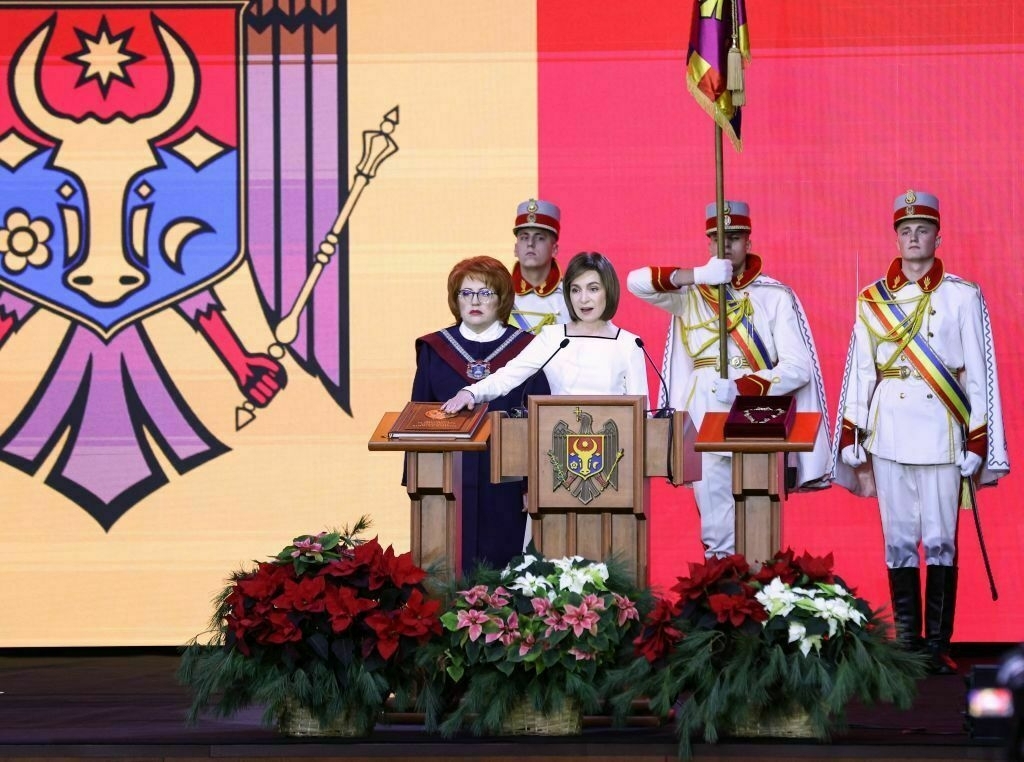
Dan and Simion on UkraineIn the debate, while Dan pleaded for further support of Ukraine, Simion, who is persona non grata in both Ukraine and Moldova, emulated banned Russian-linked Calin Georgescu, saying that Romania has to stay “neutral” and only spend money on itself rather than give military aid to its neighbor.
Dogioiu says Simion’s position on the war may garner some support, fueling old tensions between Romania and Ukraine, concerning Romanian minority rights. It can also give a voice to the frustrations with the market disruption caused by cheap Ukrainian grains passing through Romania since the start of Russia’s full-scale invasion.
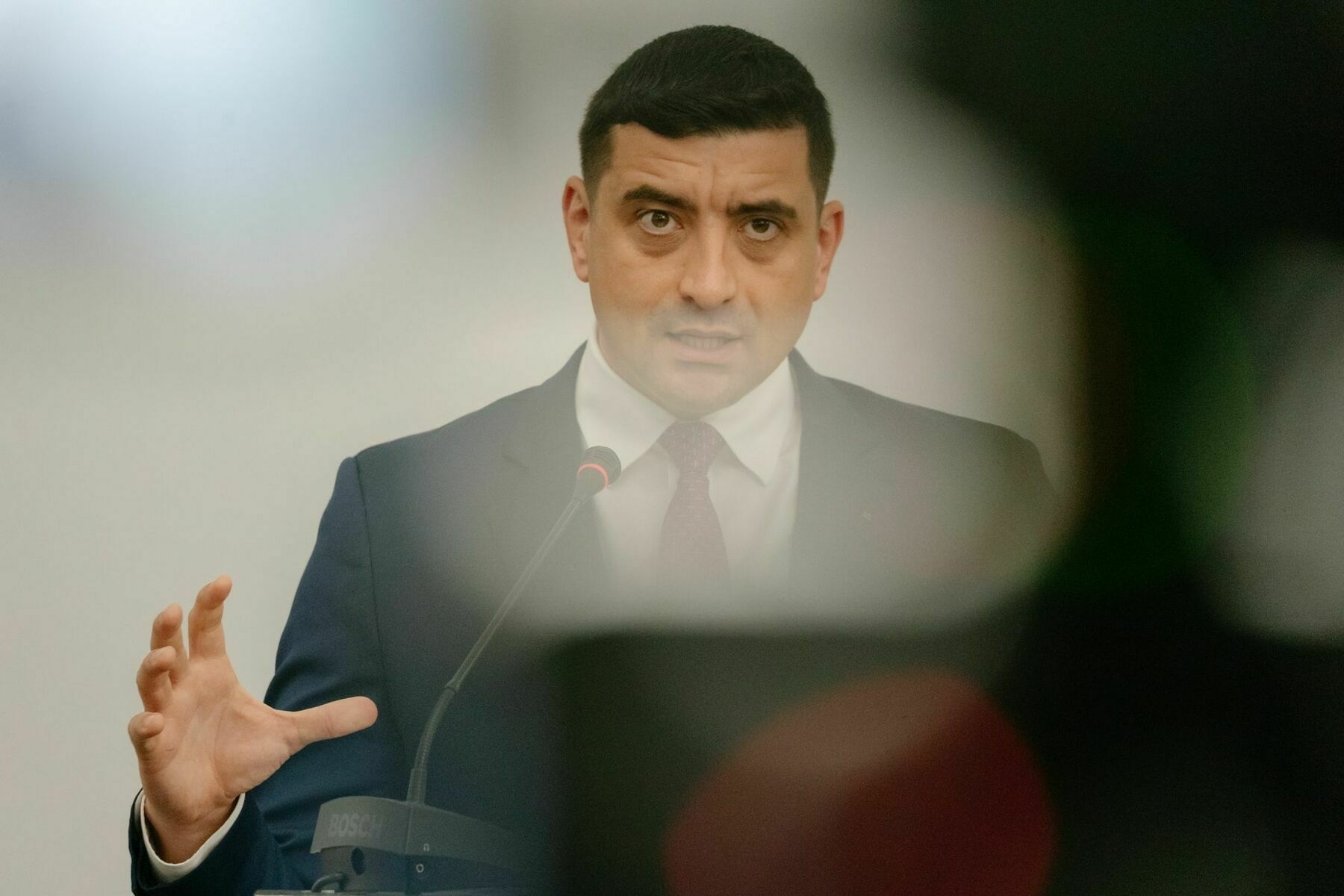
Presidential candidate George Simion takes part in a talk organized by the Romanian Chamber of Commerce in Bucharest, Romania, on May 13, 2025. (Andrei Pungovschi / Getty Images) 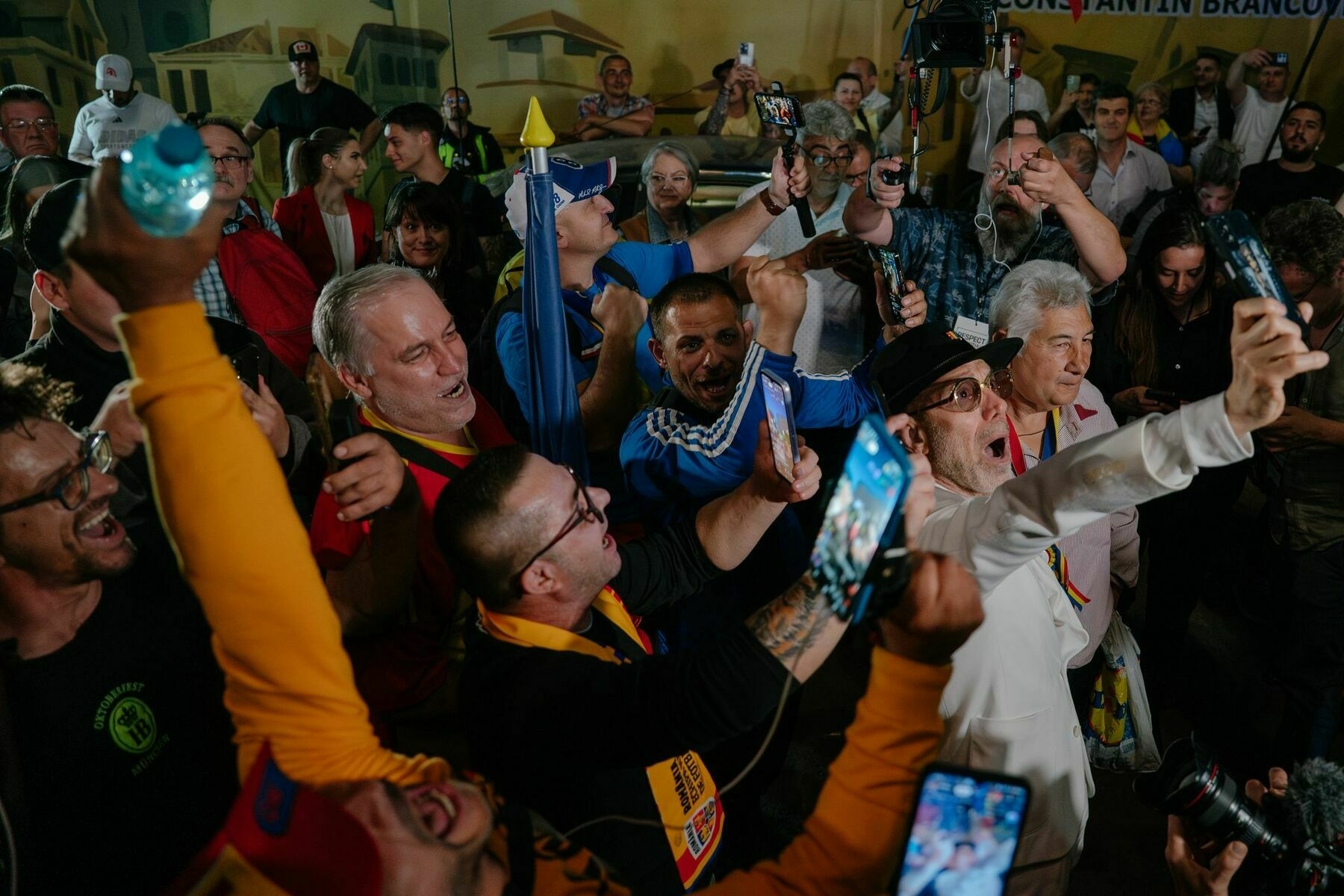
Supporters of presidential candidate George Simion celebrate after exit poll results outside his campaign headquarters in Bucharest, Romania, on May 4, 2025. (Andrei Pungovschi / Getty Images) But according to political scientist Cristian Preda, post-communist Romania has never had candidates openly supported by Russia until Georgescu and Simion.
On election day, Kremlin ideologist Alexandr Dugin said that Simion’s success “is Georgescu’s win” and “a chance” for Russia.
“If Simion wins, we may get the old, radical, extremist, anti-media Simion, or the new, runoff Simion, who is more pro-European, more moderate.”
"Romanians have mobilized before for smaller bets," Preda told the Kyiv Independent. "It wouldn't be bad for Ukraine and Moldova to provide more details about why Simion was made persona non grata now. This would clarify the situation even better. How do you elect a president who can't enter two such important neighboring countries?"
Further on, Preda argues that Simion is perceived as a candidate who will "prolong the electoral dispute" after Romanians have been exhausted from voting in five different elections — parliamentary, local, European, and two sets of presidential ones.
"Simion says he would organize a referendum to sack the members of the Constitutional Court who canceled the Nov. 24 presidential elections (citing malicious foreign influence), and organize snap elections," Preda said.
"We've never had snap elections. This gives a sense of instability."
What happens if Simion wins?"If Simion wins, we may get the old, radical, extremist, anti-media Simion, or the new, runoff Simion, who is more pro-European, more moderate. Let's say he goes through a 'Melonization' process," Dogioiu said.
"It will take time to convince international markets that he is not a radical; will his party, AUR, also go through a 'Melonization' process? Even in the best-case scenario, it will take time to gain the trust of the markets," she added.
"He is trying to appeal to both radicalized Georgescu voters and to the more moderate electorate, which creates uncertainty but not panic."
In addition to the financial crisis and the potential loss of EU funds, a Simion victory would isolate Romania, Craciun said.
"He will play in the Fico-Orban field, building a pressure group within the EU. It's enough for him to delay initiatives, such as military aid to Ukraine, to become a malign actor."
Despite Russian-backed Georgescu barred from presidential race, Romania’s far-right still aim to winProtests erupted in downtown Bucharest following the Central Electoral Bureau’s decision to ban Russian-backed far-right politician Calin Georgescu from running in the upcoming re-run presidential elections. Georgescu, who is openly supported by the Russian and the U.S. administrations, said this was a “direct hit against democracy.” Following the announcement on March 9, Georgescu’s supporters began setting the streets of Bucharest on fire and throwing bottles, stones, and firecrackers at the The Kyiv IndependentPaula Erizanu
The Kyiv IndependentPaula Erizanu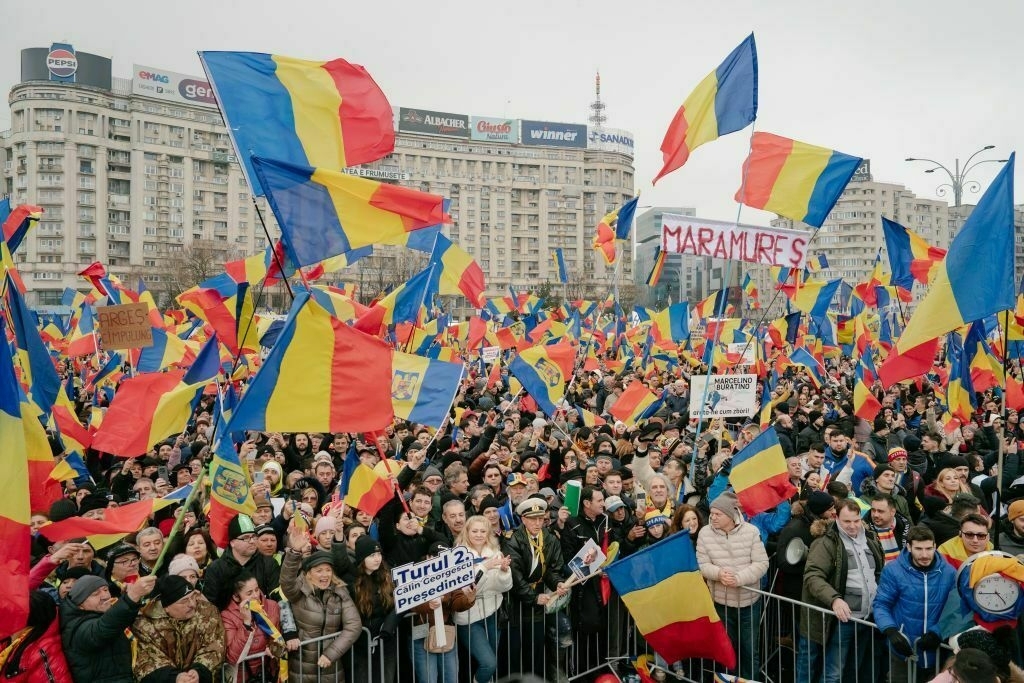
-
Tusk slams foreign leaders attending Russia's Victory Day parade
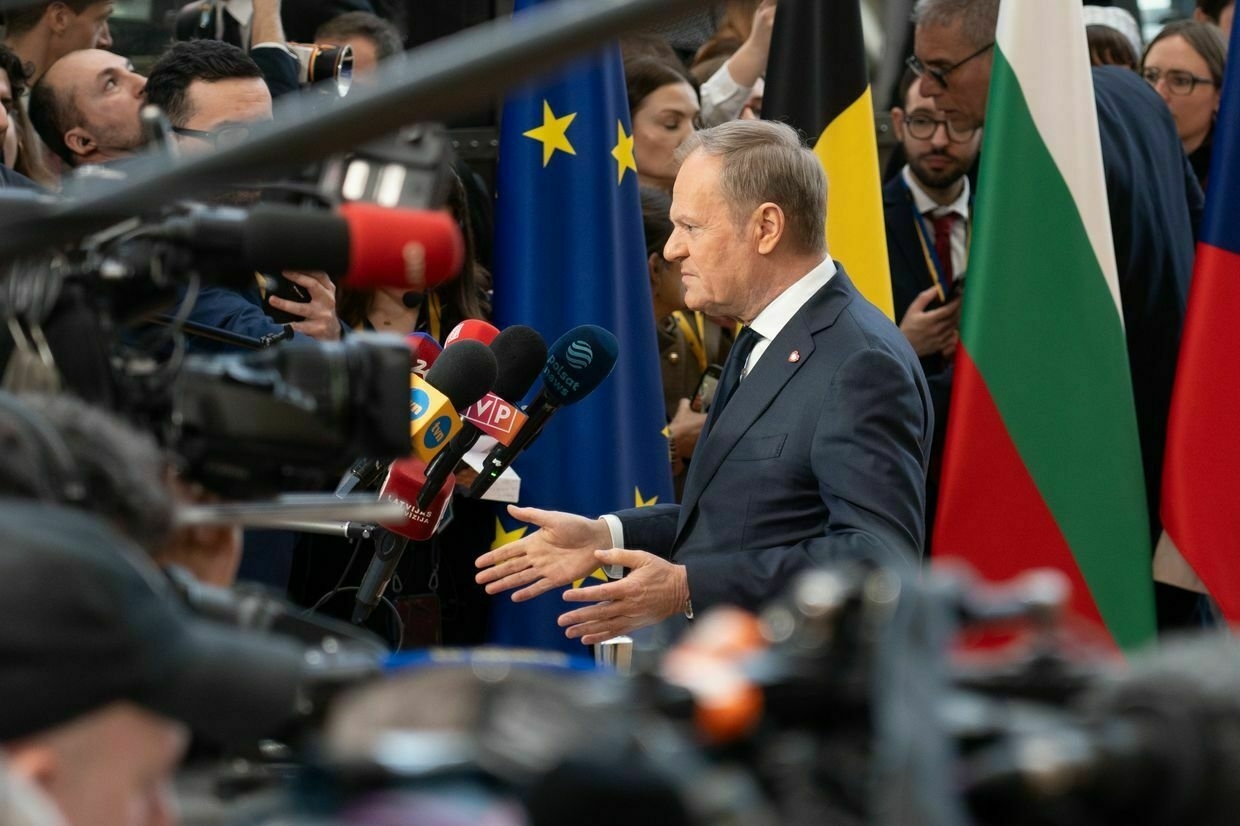
Polish Prime Minister Donald Tusk on May 9 slammed European leaders attending Russian President Vladimir Putin’s Victory Day celebrations as Russia wages its war against Ukraine.
“I have no doubt that being present at the victory parade in Moscow and applauding President Putin, who says he will continue to cleanse Ukraine of Nazism, is a shame for everyone who is present there and pretends not to see the truth,” Tusk said.
Tusk, alongside leaders from France, Germany, and the U.K., will visit Kyiv on May 10 in a show of support for Ukraine. Many European leaders boycotted Russia’s Victory Day celebrations, but Slovak Prime Minister Robert Fico attended.
Tusk denounced foreign leaders attending Moscow’s Victory Day celebrations despite Russia’s ongoing war against Ukraine.
Chinese President Xi Jinping and Brazilian President Luiz Inacio Lula da Silva are among the notable guests present at Putin’s request.
“Therefore, the presence at the victory parade of a country that bombs cities, hospitals, and daycares, and which has caused the deaths and injuries of over a million people over three years, is a shame,” Tusk told reporters alongside French President Emmanuel Macron in Nancy, France.
Tusk, alongside Macron, U.K. Prime Minister Keir Starmer, and newly elected German Chancellor Friedrich Merz, are set to arrive in Kyiv on May 10 to meet with President Volodymyr Zelensky.
In protest of Russia’s “immortal regiment” and its Victory Day celebrations, demonstrators have been holding street performances since May 4, a source in Ukraine’s military intelligence agency (HUR) told the Kyiv Independent on May 9.
“The series of actions took place under the name ‘Death Regiment,’ as the antithesis of Putin’s propaganda campaign, ‘Immortal Regiment,'” the source said.
Russia tries to use Victory Day celebrations as a historical justification for its ongoing war against Ukraine.
Lula da Silva’s visit to Russia is hypocritical, undermining everything he allegedly stands forPutin has done in Russia everything that Luiz Inacio Lula da Silva had been against in Brazil. The Kyiv IndependentUria Fancelli
The Kyiv IndependentUria Fancelli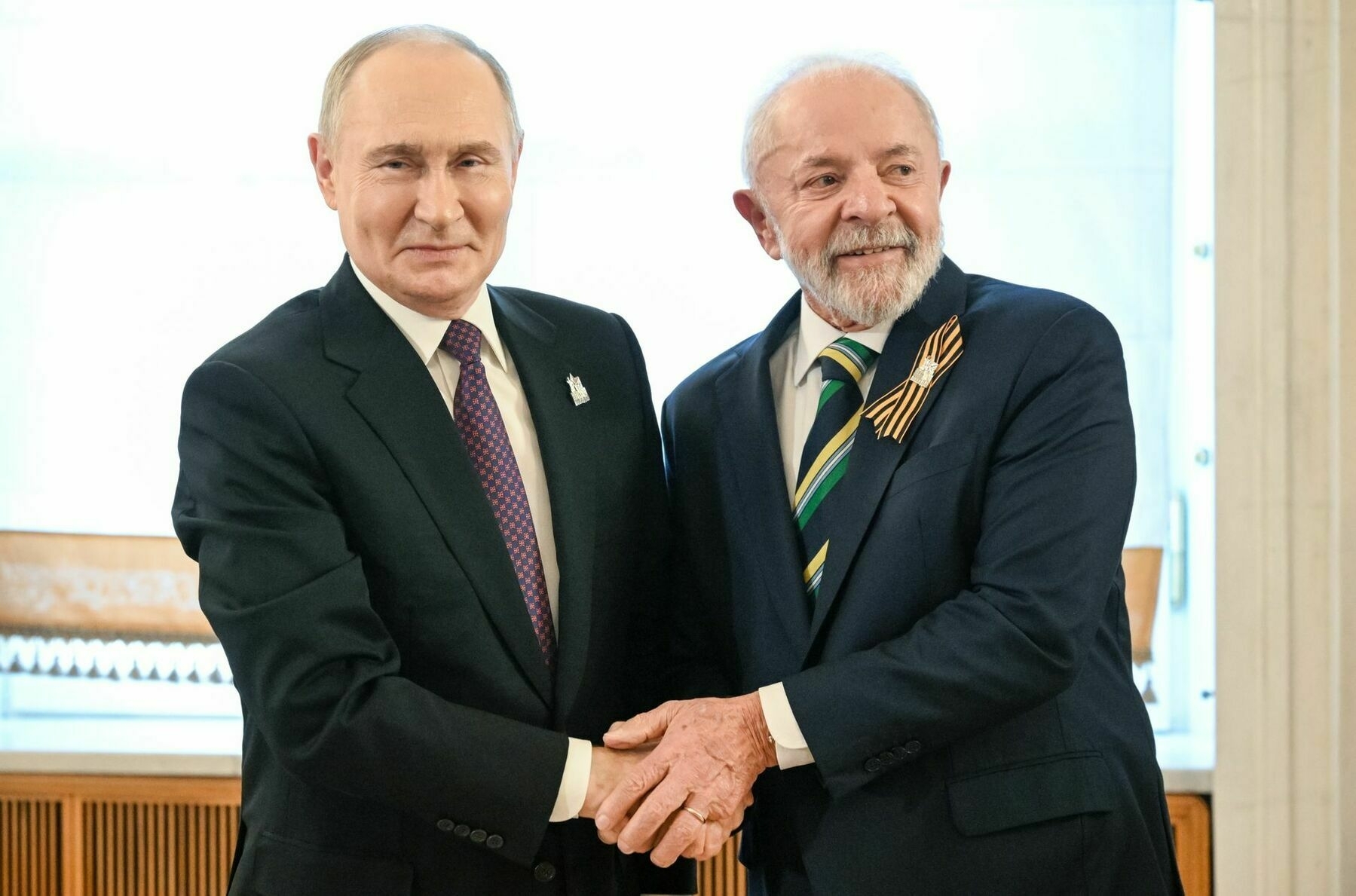
-
'Death regiment' counters Russia's Victory Day celebrations in many protests
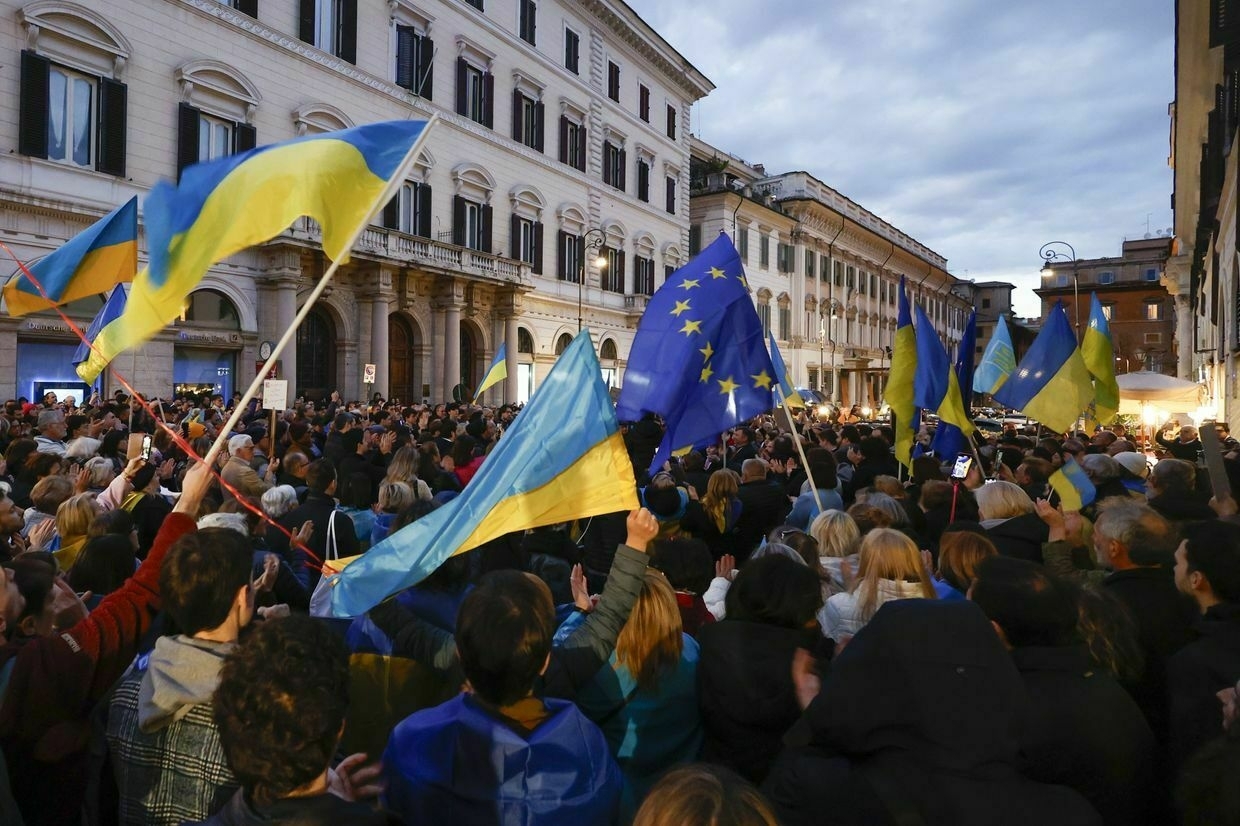
Demonstrators have been holding street performances since May 4 in protest of Russia’s “immortal regiment” and its Victory Day celebrations, a source in Ukraine’s military intelligence agency (HUR) told the Kyiv Independent on May 9.
“The series of actions took place under the name ‘Death Regiment,’ as the antithesis of (Russian President Vladimir) Putin’s propaganda campaign, ‘Immortal Regiment,'” the source said.
Russia tries to use Victory Day celebrations as a historical justification for its ongoing war against Ukraine. The Kremlin invited foreign leaders to its Victory Day parade on May 9 as Moscow faces isolation from the West due to its ongoing war.
Russia’s Victory Day celebrations are marked with grand military parades and its “immortal regiment.” Putin has used the celebrations to fuel nationalism.
“For several days, starting from May 4, street performances were held in nine European countries and in Canada to remind humanity of the systemic war crimes of Putin’s Russia,” the source said.
Moscow often situates victory in World War II as a sole Russian achievement and not a multinational one, Jonathan Brunstedt, an assistant professor of history at Texas A&M University, focusing on nationalism and historical memory in the Soviet Union, said.
“As reported by representatives of the Ukrainian diaspora, the actions took place in (the U.K.), Germany, Poland, Italy, the Czech Republic, Spain, Albania, Ukraine, and Canada,” the source told the Kyiv Independent.
The counter performances will likely span from May 4 until Russia’s Victory Day celebrations on May 9, the source said.
“According to the participants of the performances, their goal is to remind the civilized world of the barbaric actions of Moscow, which for many years and decades has systematically violated international law,” the HUR source said.
President Volodymyr Zelensky said on May 3 that Ukraine cannot guarantee the safety of foreign officials planning to attend Russia’s Victory Day parade in Moscow.
“They are responsible for your safety. We will not provide any guarantees, because we do not know what Russia might do on those dates,” he added.
Slovak Prime Minister Robert Fico, a proponent of Putin, arrived in Moscow on May 9 to attend the Victory Day celebrations, despite Russia’s war against Ukraine.
The EU’s top diplomat, Kaja Kallas, on April 15 warned European leaders against attending Russia’s Victory Day celebrations in Moscow.
“What was also discussed very clearly, and said by different member states, is that any participation in the 9th May parades or celebrations in Moscow will not be taken lightly on the European side, considering that Russia is really waging a full-scale war in Europe,” she said.
Why Ukraine remains dependent on US Patriot missilesA series of Russian ballistic missile attacks on Ukrainian cities have killed dozens of civilians in recent weeks, shaking an already uneasy sense of safety for Ukrainians living far from the front lines. The Russian strikes are growing more lethal as foreign air defense aid to Ukraine has dwindled, particularly deliveries of Patriot missiles. Ukraine is left struggling to cover the shortfall. Ukraine’s ability to shoot down inbound Russian drones and cruise missiles has grown enormously since The Kyiv IndependentKollen Post
The Kyiv IndependentKollen Post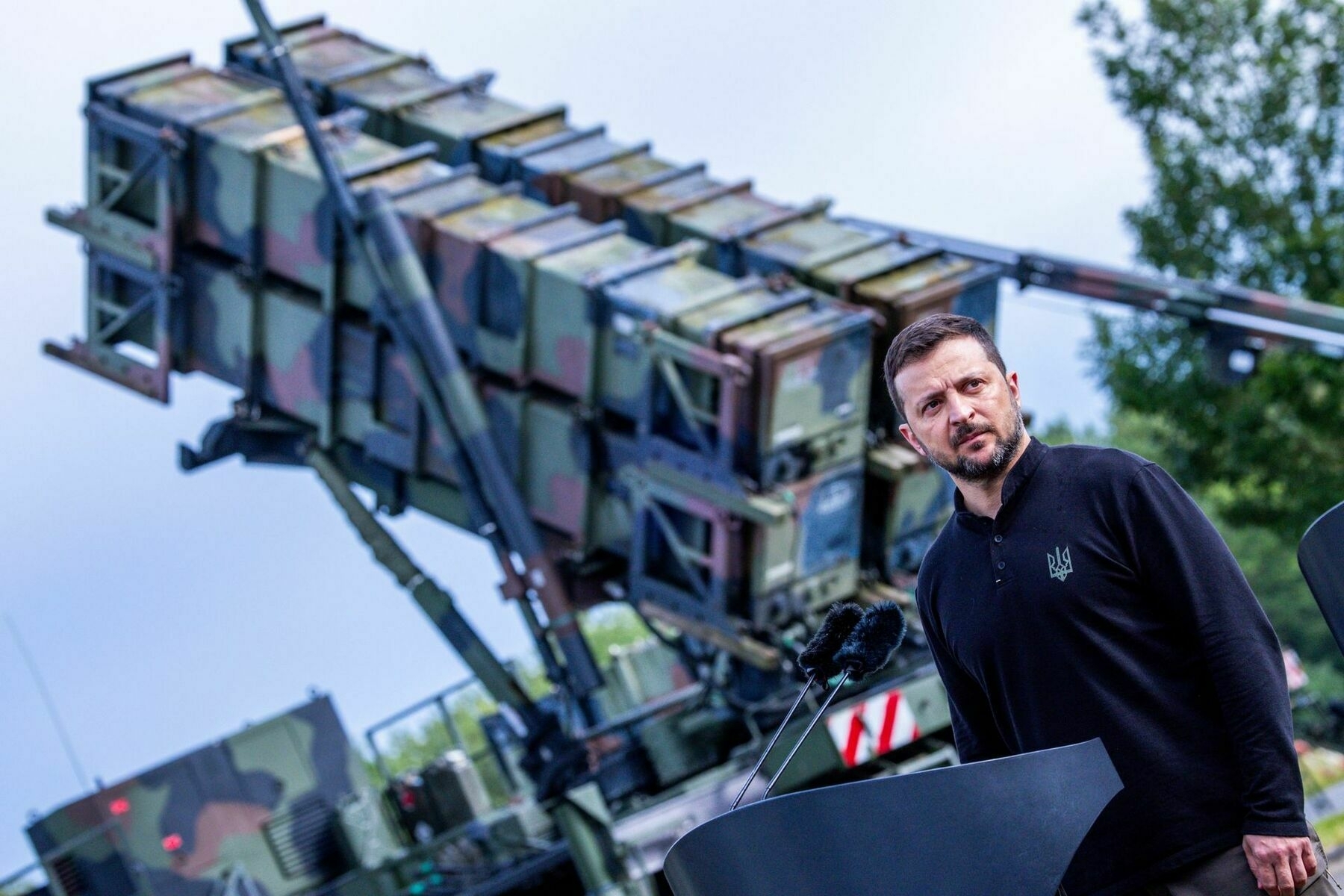
-
Media identifies over 1,500 foreign mercenaries from 48 countries Russia recruited for war in Ukraine
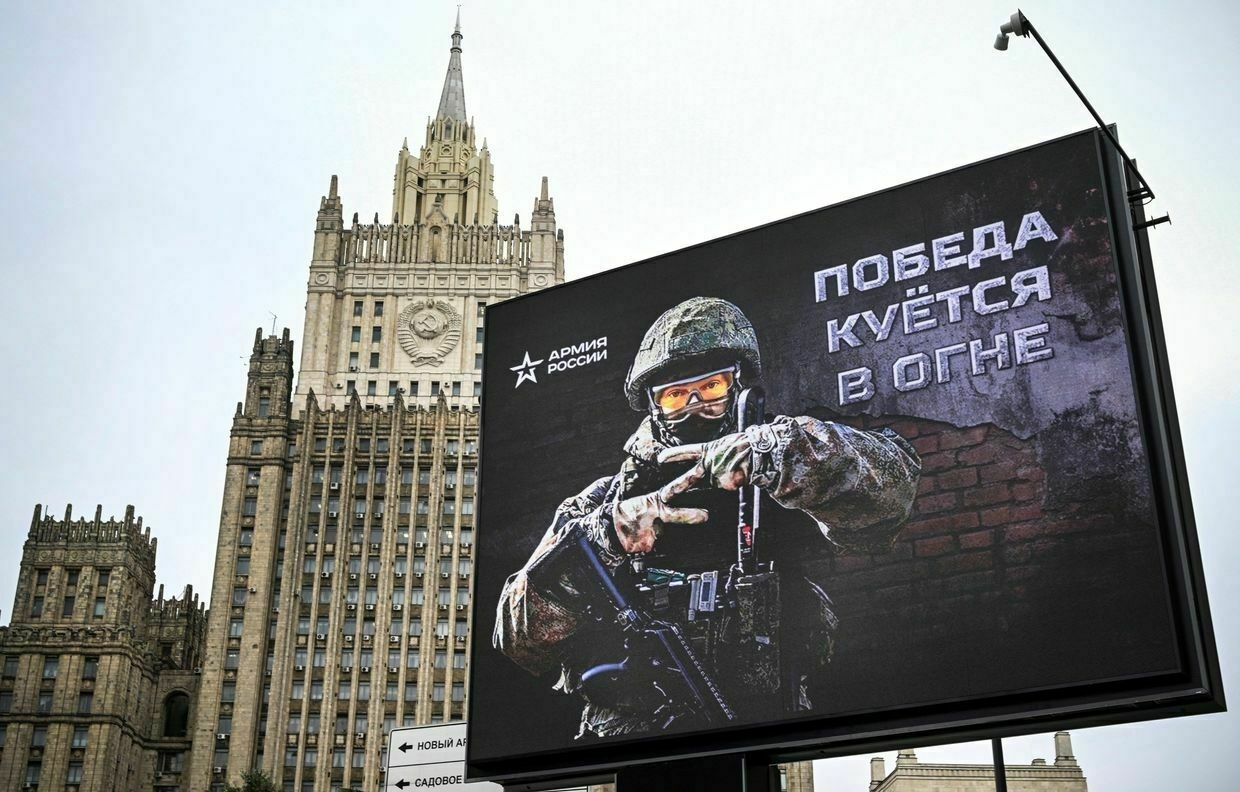
More than 1,500 foreign mercenaries from 48 countries recruited to fight for Russia against Ukraine have been identified in an investigation by the independent Russian media outlet Important Stories published on April 23.
Despite Russian President Vladimir Putin’s earlier claims that Russia had “no need” for foreign fighters, the data reveals widespread recruitment through official military selection points in Moscow.
Journalists obtained the names and nationalities of the mercenaries through a leaked database from the Unified Medical Information and Analytical System of Moscow.
According to the publication, these individuals passed through Moscow’s recruitment center between April 2023 and May 2024. Of the more than 1,500 foreigners processed, at least 1,300 have been identified by nationality.
Nepal tops the list, with at least 603 nationals joining the Russian army. The influx reportedly began in small groups in mid-2023, escalating to over 370 Nepalese recruits passing through the Moscow selection point in October alone.
Recruitment declined by the end of the year, reportedly following diplomatic protests from Nepal.
Other nationalities include citizens of Sri Lanka (64), China (51), India (43), Serbia (8), Cuba (8), and Latvia (4). From former Soviet states, recruits include citizens of Tajikistan (86), Uzbekistan and Belarus (71 each), Kyrgyzstan (64), Kazakhstan (59), Turkmenistan (19), and Moldova (12).
The total number of foreign fighters is likely far higher. On Feb. 11, CNN reported that up to 15,000 Nepalese citizens could have been recruited by Russia.
Ukrainian forces have also confirmed the presence of foreign fighters on the battlefield. In early April, two Chinese nationals were captured in Donetsk Oblast while fighting for Russia.
President Volodymyr Zelensky later said that “several hundred” Chinese nationals were taking part in the war on Russia’s side. One detainee reportedly paid a middleman 300,000 rubles (about $3,500) to enlist in exchange for Russian citizenship.
China has denied involvement, claiming it urges its citizens to avoid armed conflicts. Moscow has also used some 12,000 North Korean army troops dispatched by Pyongyang to counter the Ukrainian incursion in Kursk Oblast.
‘Groundless accusations, political manipulations’ — China reacts to Ukraine summoning its envoyA day earlier, Chinese Ambassador to Ukraine Ma Shengkun was invited to the Ukrainian Foreign Ministry to meet with Deputy Foreign Minister Yevhen Perebyinis.The Kyiv IndependentKateryna Hodunova
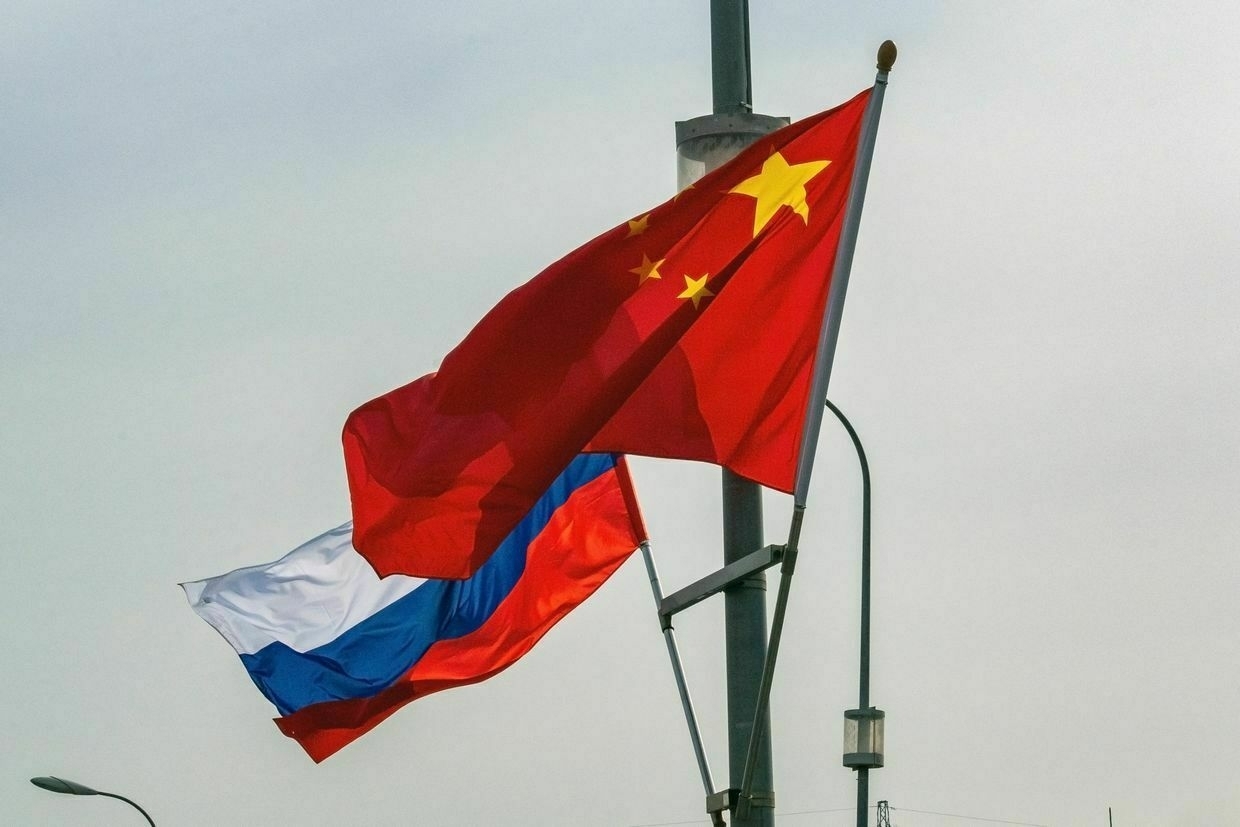
-
Belarus Weekly: Poland reports attacks on border guards, one allegedly involving a Belarusian serviceman
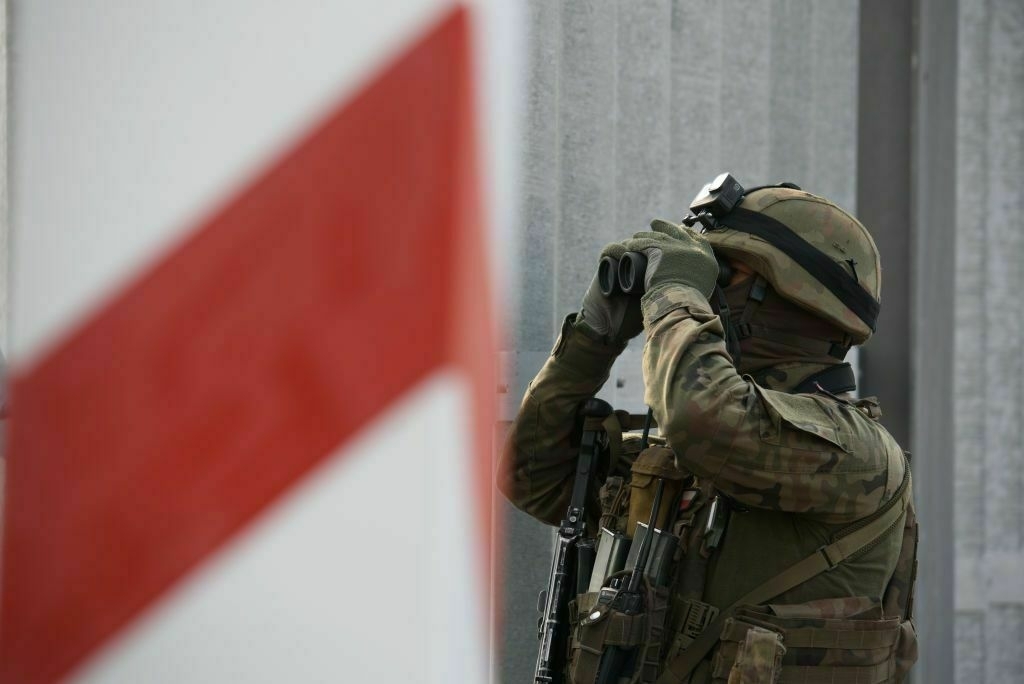
Poland reports two attacks on border guards, one allegedly involving a Belarusian serviceman.
Belarus dictator Alexander Lukashenko invites up to 150,000 workers from Pakistan to Belarus amid deepening labor shortage.
Director of Russia’s Foreign Intelligence Service Sergey Naryshkin threatens Poland, Baltic states during a visit to Belarus.
Meanwhile, Russia has added 1,200 Belarusians to its wanted list since July, while Belarus brands jailed EU mission staffer as “terrorist."
Subscribe to the NewsletterBelarus Weekly<span data-sanitized-id="belarus-weekly-info" data-sanitized-class="belarusWeekly__info"></span> <button data-sanitized-id="belarus-weekly-subscribe-btn" data-sanitized-class="belarusWeekly__form_button"> <span data-sanitized-class="belarusWeekly__form_label">Join us</span> <path d="M4.45953 12.8114H7.90953C8.00052 12.8127 8.09085 12.7958 8.17517 12.7616C8.25949 12.7274 8.3361 12.6766 8.40044 12.6123C8.46478 12.548 8.51556 12.4714 8.54975 12.387C8.58395 12.3027 8.60088 12.2124 8.59953 12.1214C8.58173 11.9269 8.48974 11.7467 8.34265 11.6183C8.19555 11.4898 8.00465 11.4229 7.80953 11.4314H4.45953C4.27653 11.4314 4.10103 11.5041 3.97163 11.6335C3.84223 11.7629 3.76953 11.9384 3.76953 12.1214C3.76953 12.3044 3.84223 12.4799 3.97163 12.6093C4.10103 12.7387 4.27653 12.8114 4.45953 12.8114Z" fill="white"></path> <path d="M8.6 15.0114C8.60135 14.9204 8.58442 14.83 8.55022 14.7457C8.51603 14.6614 8.46525 14.5848 8.40091 14.5205C8.33656 14.4561 8.25996 14.4053 8.17564 14.3711C8.09131 14.3369 8.00098 14.32 7.91 14.3214H2.69C2.507 14.3214 2.3315 14.3941 2.2021 14.5235C2.0727 14.6529 2 14.8284 2 15.0114C2 15.1944 2.0727 15.3699 2.2021 15.4993C2.3315 15.6287 2.507 15.7014 2.69 15.7014H7.81C8.00511 15.7099 8.19602 15.643 8.34311 15.5145C8.49021 15.386 8.5822 15.2058 8.6 15.0114Z" fill="white"></path> <path d="M24.4202 6.01122H7.55022C7.43403 5.99626 7.31641 5.99626 7.20022 6.01122L7.08022 6.06122C6.85578 6.16602 6.66595 6.33276 6.53308 6.54181C6.4002 6.75086 6.32982 6.99352 6.33022 7.24122C6.32744 7.43266 6.36832 7.62222 6.44976 7.79549C6.5312 7.96876 6.65105 8.1212 6.80022 8.24122L12.5802 13.4512L6.89022 18.7112C6.71923 18.8375 6.57973 19.0016 6.4826 19.1907C6.38546 19.3797 6.33331 19.5887 6.33022 19.8012C6.32652 20.0535 6.3952 20.3015 6.52812 20.516C6.66105 20.7304 6.85264 20.9023 7.08022 21.0112C7.14691 21.0484 7.21729 21.0786 7.29022 21.1012C7.46476 21.1609 7.64625 21.1979 7.83022 21.2112H24.5102C24.8263 21.2048 25.1378 21.1355 25.4268 21.0074C25.7158 20.8792 25.9763 20.6948 26.1932 20.4648C26.4101 20.2349 26.579 19.9641 26.6901 19.6681C26.8012 19.3722 26.8522 19.0571 26.8402 18.7412V8.47122C26.8278 7.82952 26.5701 7.21694 26.12 6.7594C25.6699 6.30185 25.0616 6.03412 24.4202 6.01122ZM8.57022 8.08122L7.92022 7.49122H24.4202L16.4902 14.6812C16.407 14.7305 16.312 14.7565 16.2152 14.7565C16.1185 14.7565 16.0235 14.7305 15.9402 14.6812L8.57022 8.08122ZM7.73022 19.7912L8.48022 19.1112L13.4802 14.5812L14.8802 15.8612C15.1804 16.157 15.5793 16.3315 16.0002 16.3512C16.4212 16.3315 16.82 16.157 17.1202 15.8612L18.5202 14.5812L24.2002 19.8012H7.73022V19.7912ZM25.3502 18.7112L19.6602 13.5912L25.3502 8.37122V18.7112Z" fill="white"></path> </button> </div>Poland reports two attacks on border guards as migration crisis with Belarus intensifiesPoland reported two attacks on Polish border guards by migrants over the weekend, with one incident involving a uniformed Belarusian officer throwing rocks at a Polish patrol.
Polish guards stopped 115 illegal border crossing attempts, between April 11 and 13, Polish authorities said.
Belarus initiated an artificial migration crisis at its borders with the EU in 2021 “in response” to a package of European sanctions. While Minsk denied Warsaw’s accusations of orchestrating a hybrid attack, Lukashenko claimed Belarus “would not stop” (illegal migrants) attempting to cross into the EU.
The migrants attacked a Polish border guard patrol near Mielnik, the village close to the border with Belarus. CCTV footage recorded a Belarusian soldier joining them in throwing rocks at the patrol, the spokesperson for Polish Interior Ministry Jacek Dobrzynski said on X.
Another attack occurred on April 12 near the village of Czeremcha, with one guard being struck on the face with stones twice. “The migrants are very aggressive when trying to cross the border,” the Border Guards department in the Podlasie region said in a statement, adding that the soldier's life and health were not threatened.
Poland’s Internal Minister Tomasz Siemoniak confirmed that Belarusian officers were involvement in direct provocations. Siemoniak characterized the actions as “unheard of.”
“If a certain line is crossed here, we will regard it as an attack by representatives of the Belarusian state on our border,” Siemoniak told Polish broadcaster TVP Info on April 14. “I understand that an employee of the Belarusian special services, probably instructing (the migrants), got carried away. However, we take this very seriously.”
According to Siemoniak, previously, Belarusian secret services kept well back from the border, delivering migrants to the area but not approaching the barrier themselves.
Heightened rates of irregular border crossing attempts have also been reported in Latvia, as 179 individuals have tried to cross the country's border from Belarus.
Data from EU member states’ border guards, collected by the independent Belarusian news outlet Pozirk, indicates a drastic increase in illegal border crossing attempts since the beginning of April, to 522 attempts — compared to 355 attempts for the entire first quarter of 2025.
Lukashenko invites 150,000 Pakistani workers to Belarus amid labor shortagesFollowing an official meeting with Pakistan’s Prime Minister Shehbaz Sharif in Minsk on April 11, Belarusian dictator Alexander Lukashenko said he would invite up to 150,000 Pakistani guest-workers to Belarus.
Belarus’s role in Russia’s war against Ukraine and Lukashenko’s crackdown on mass public protests following the 2020 contested elections, have forced between 300,000 and half a million Belarusians to flee the country. This exodus, combined with downward-trending demographics, has left the country with severe labor shortages.
Lukashenko’s proposal to take in up to 150,000 Pakistani guest-workers to help address Belarus’s deepening labor crisis came amid an array of agreements reached between Sharif and Lukashenko at their Minsk meeting, ranging from military cooperation, to food security, and trade.
“We’re ready to receive (guest-workers) in Belarus and create the necessary conditions for them to work,” Lukashenko said. Accepting “100,000, maybe 120,000-150,000” guest-workers would ease the pressure on the labor market of Belarus, which has over 199,000 vacancies among a working population of roughly 4.1 million.
The outflow of political exiles from the country is compounding the twin problems of an aging population and a historically low birth rate, which dropped to 6.96 per 1,000 in 2023, comparable to wartime Ukraine’s six births per 1,000 people. Belarus, which had a population of 10 million at independence, has likely seen it drop below the officially reported 9.1 million. Leaked documents from the State Control Committee suggest that the actual population could be as few as 8.8 million.
However, Belarus is hardly an attractive destination for Pakistani workers compared to the job markets of the EU or even Russia, argues Lev Lvovskiy, the academic director of Belarus’s leading economic think-tank BEROC.
In 2024, the average monthly wage in Belarus amounted to approximately $647, significantly lower than in Europe and barely double Pakistan’s $294 average. Besides, Belarus is a monoethnic country that lacks the experience of assimilating distinct cultural and religious groups.
Meanwhile, RFE/RL political analyst Valer Karbalevich writes that “like many other projects of Lukashenko, (this) will probably end in failure. (…) Even if Pakistanis come to Belarus, they will most likely strive, by all means and without any hesitation, to move on to a better life – to Europe.”
The arrival of hundreds of thousands of Pakistani guest-workers might also ring alarm bells in neighboring EU states tackling weaponized migration on their borders with Belarus.
In response to European sanctions in 2021, the Belarusian regime created an artificial migration crisis at its borders with Lithuania, Latvia, and Poland — all EU member states. Belarus facilitated travel from the Middle East, Africa, and South Asia, including Pakistan, promising easy passage into the EU.
Russian Intelligence Service chief threatens NATO nations during visit to BelarusThe director of Russia’s Foreign Intelligence Service, Sergey Naryshkin, threatened NATO states during an April 15 meeting with Belarusian dictator Alexander Lukashenko in Minsk, saying that Poland and the Baltic states would be the “first to suffer” if there were any “NATO aggression” against the Russia-Belarus Union State.
Speaking to journalists after meeting Lukashenko, Naryshkin described Poland and the Baltic states as “highly aggressive,” portraying their defensive measures as “saber rattling,” state-owned Belarusian news agency Belta reports.
“In the event of aggression by NATO against (Russia and Belarus), damage will be done, of course, to the entire NATO bloc, but to a greater extent, the first to suffer will be the bearers of such ideas among the political circles of Poland and the Baltic countries,” Naryshkin said.
Polish President Andrzej Duda, reiterating NATO’s defensive role, dismissed Naryshkin’s remarks as “Russian baloney disinformation, typical of the Soviet school of propaganda.”
Naryshkin’s visit comes amid preparations for Zapad 2025, large-scale Russia-Belarus military drills set to host up to 13,000 Russian troops in Belarus in September 2025. Lithuanian Foreign Minister Kęstutis Budrys, told Baltic news portal Delfi that the actual scale of Zapad exercises far exceeds the publicly declared scale.
Earlier in April, Belarus state-owned news agency Belta reported that three other military exercises — Interaction-2025 for the operational response forces, Echelon-2025 for logistical support, and Search-2025 for reconnaissance — are scheduled to be held in September in Belarus along with Zapad-2025, with a yet undisclosed number of additional troops to be involved.
The drills will occur under the framework of the Collective Security Treaty Organization (CSTO), a Russia-led military alliance created to an extent as an alternative to NATO, but now weakened by internal rifts. Armenia froze its participation in 2024 as the bloc failed to support it in its conflict with Azerbaijan.
Amid rising regional security tensions, Estonia, Latvia, Lithuania, and Poland on March 18 withdrew from the Ottawa Convention, banning the use, production, and stockpiling of anti-personnel mines, citing “fundamentally deteriorated” security in the region.
The four states have also been developing a joint Baltic Defense Line on their borders with Russia and Belarus.
1,200 more Belarusians added to Russia’s wanted list, media reportRussia has added another 1,200 Belarusian citizens to its wanted list over the past five months, independent news outlet Mediazona Belarus reported on April 9.
Mediazona found that since July 2024, at least 100 Belarusians have been added to the Russian wanted list every month. The largest increase of almost 300 entries came in December 2024.
Currently, the database lists 4,700 Belarusians, including members of the exiled opposition, Belarusian volunteers fighting for Ukraine, journalists, and human rights activists. Included at Belarus’s request, those on the list are wanted in both countries.
Belarus and Russia are part of the Interstate Wanted Persons Treaty of the Commonwealth of Independent States, a Russia-led political alliance of former post-Soviet countries. In 2022 alone, Russia extradited 16 Belarusians accused of “extremism” — a charge widely used against political opponents of the regime of Belarusian dictator Alexander Lukashenko.
International police organization Interpol has stopped executing politically motivated searches requested by Belarus. However, Belarusians in Russia and most CIS countries can be subject to extradition.
Belarus brands jailed EU diplomatic mission staffer as ‘terrorist’Belarus’s KGB has added a former EU diplomatic staffer in Belarus, Mikalai Khilo, who has been sentenced to a four-year prison term, to the list of “individuals involved in terrorist operations.”
The updated list was published on April 9 on the KGB’s Telegram channel.
Khilo, a local staff member of the European Union’s diplomatic service, was arrested in December 2024 for “incitement of hatred and calls for actions harming Belarus’s national security” — charges frequently brought against Belarusian dictator Alexander Lukashenko’s political opponents.
The EU’s External Action Service condemned the decision and reiterated calls for Khilo’s release. The Viasna Human Rights Center has also designated Khilo as a political prisoner.
Created in 2011 to fulfill Belarus’s international obligations in combating terrorism, the list of terrorists is now a tool to harass the regime’s political opponents in the aftermath of rigged 2020 presidential elections and resulting mass anti-government protests.
Currently, 580 of the 1,377 entries on the list are Belarusian citizens, including exiled Belarusian opposition leader Sviatlana Tsikhanouskaya, political activist Pavel Latushka, and jailed protest leader Maria Kalesnikava.
The list also includes journalists, human rights advocates and even students.
Those listed as “terrorists” are not permitted to receive money transfers, which deprives them of a major source of support. And for exiled opponents of the regime, being on the list elevates the risk of regime persecution.
Nearly 1,200 political prisoners remain behind bars in Belarus. Several demonstrative rounds of pardons last year reportedly saw 258 of them set free, but the pardons stalled soon after the January presidential elections, and regime repression continues.
According to Belarusian opposition leader Tsikhanouskaya, 15-20 politically motivated detentions are reported daily in Belarus.
Our readers’ questions about the war, answered. Vol. 8Editor’s note: We asked members of the Kyiv Independent community to share the questions they have about the war. Here’s what they asked and how we answered. Join our community to ask a question in the next round. Question: Is Ukraine formulating a plan to receive and house refugees fromThe Kyiv IndependentThe Kyiv Independent
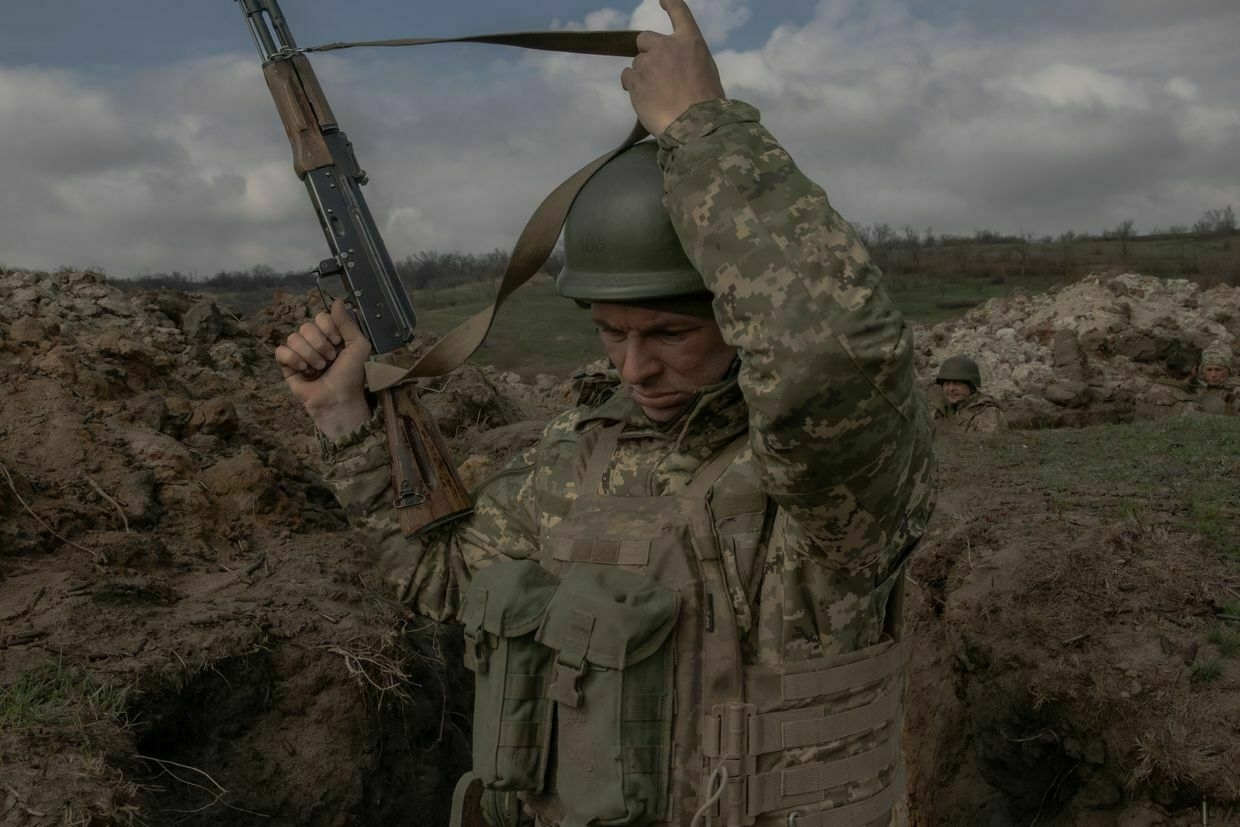
Serbia forms new government, expels top pro-Russian figure amid EU pressure
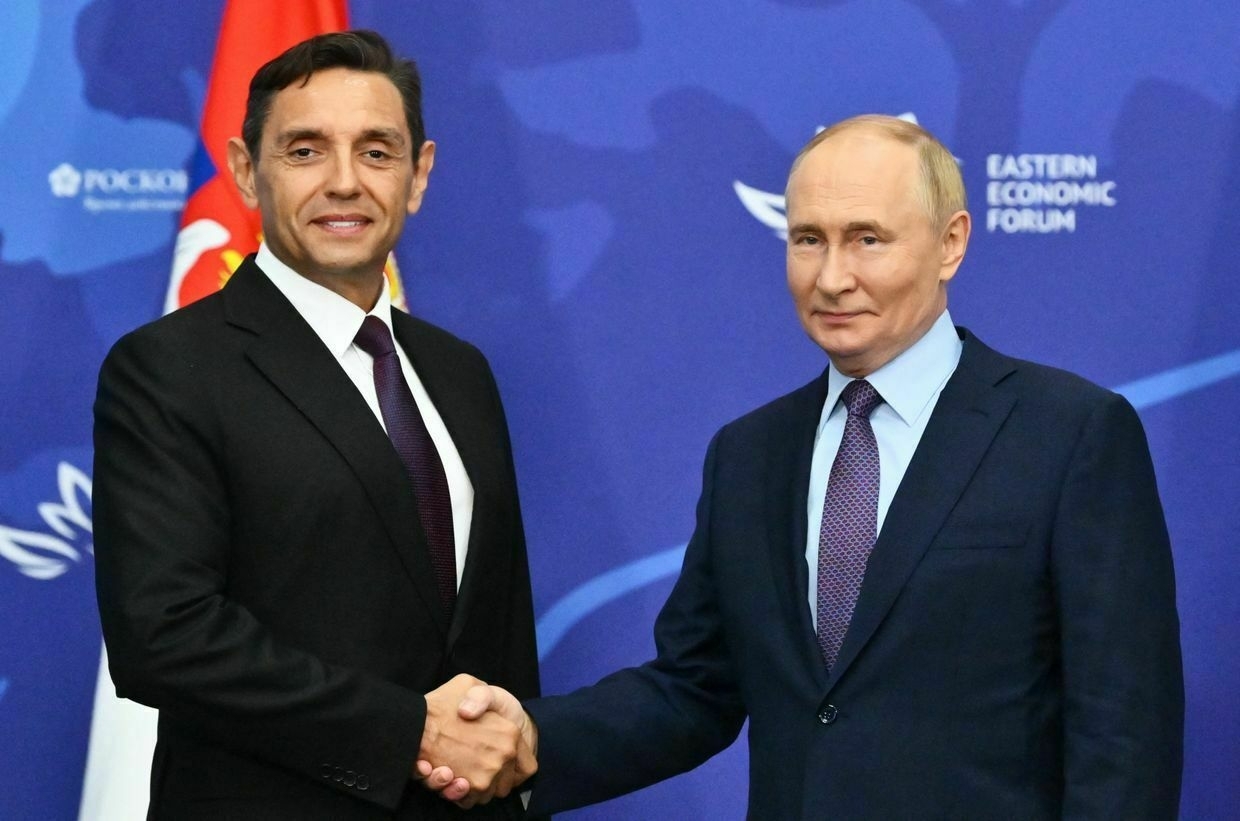
Serbia’s parliament approved the composition of a new government led by Prime Minister Djuro Macut on April 16, Serbian state broadcaster RTS reported.
While President Aleksandar Vucic had previously promised sweeping personnel changes, most ministers retained their posts.
The most notable shift was the removal of Deputy Prime Minister Aleksandar Vulin, a longtime pro-Russian figure who has served in the Serbian government since 2013.
In late March, EU Enlargement Commissioner Marta Kos publicly urged Serbian leaders not to include him in the new cabinet, saying, “Someone who behaves anti-European cannot lead Serbia to the European Union at the same time."
The commissioner’s remarks followed an interview in which Vulin thanked Russian security services for allegedly aiding Serbian authorities in suppressing student protests.
Over the past decade, Vulin has held roles as defense minister, interior minister, and head of Serbia's Security and Information Agency, the main intelligence service.
Vulin is known for his outspoken opposition to EU integration and repeated visits to Moscow, where he voiced support for the Kremlin. In 2022, the U.S. sanctioned Vulin over corruption, international drug trafficking, and assisting "Russia's malign activities in the Balkans."
The official has repeatedly dismissed Serbia's EU bid, suggesting the country should instead join BRICS. He also accused Brussels of trying to overthrow Vucic following deadly protests triggered by the collapse of a train station canopy in Novi Sad, which killed 16 people.
Serbia has officially been an EU candidate since 2012, but democratic backsliding, unresolved tensions over Kosovo, and close ties with Moscow have stalled its progress.
On April 16, Vucic confirmed plans to attend Russian President Vladimir Putin's May 9 Victory Parade in Moscow despite EU officials' warnings that the visit could further jeopardize Serbia's accession talks.
The annual parade is widely seen as a propaganda event highlighting Russia's military power.
Russia calls Ukraine ceasefire ‘unrealistic’ despite Trump’s peace efforts“Under the current circumstances, it is simply unrealistic to talk about a (full) ceasefire at this stage,” Russia’s U.N. Ambassador Vasily Nebenzya said.The Kyiv IndependentTim Zadorozhnyy
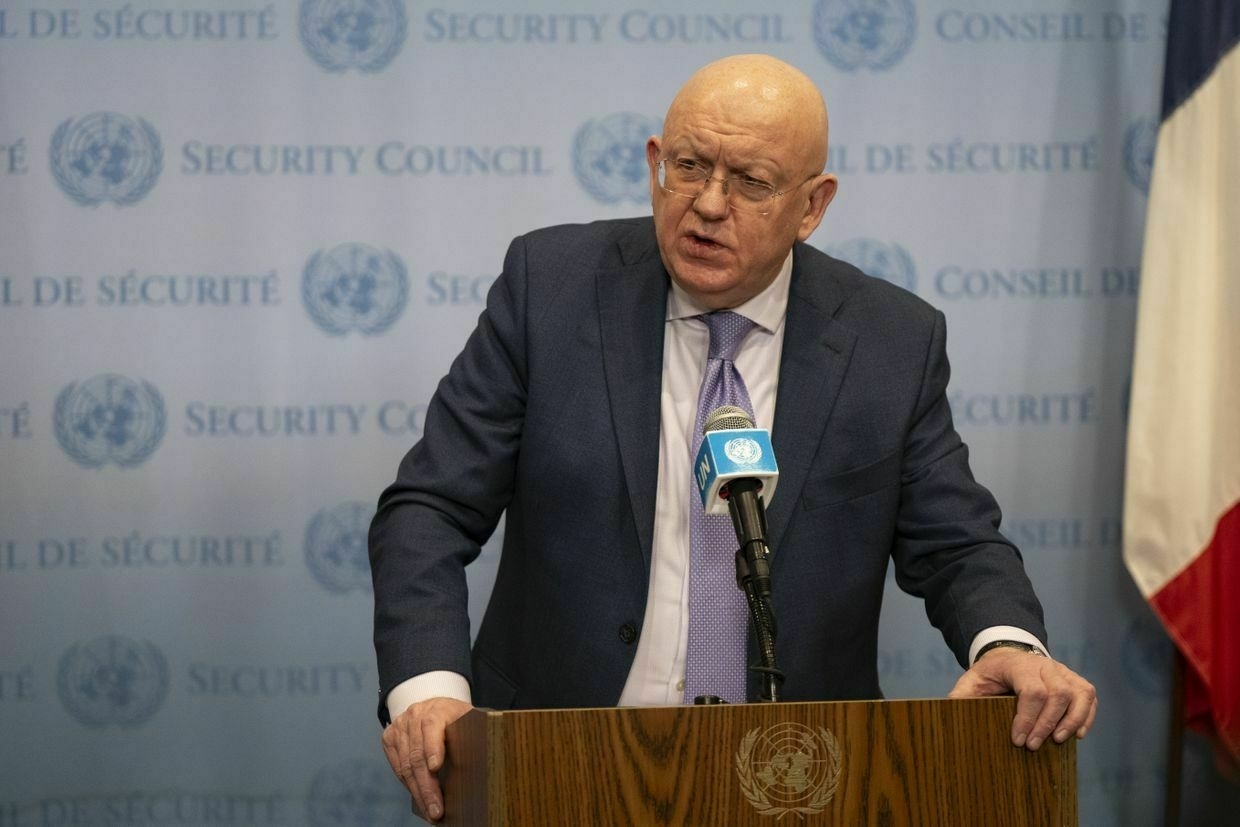
EU warns Serbia not to attend Russia's victory parade
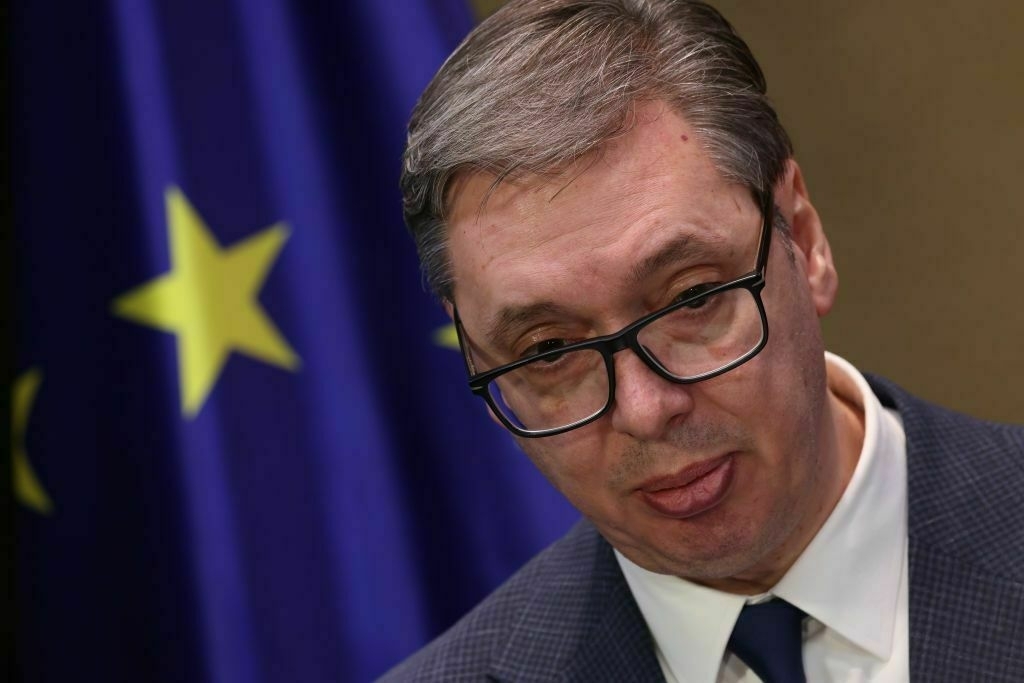
European Union officials have warned on April 15 that Serbia could be blocked from joining the EU if its president travels to Moscow for Russian President Vladimir Putin’s May 9 Victory Parade.
Serbia applied to join the European Union in 2009 and received candidate status in 2012. However, Serbian President Aleksandar Vucic, has also maintained friendly ties with Russia and Putin.
Vucic is reported to attend the annual Moscow Victory Day Parade on May 9 and will contribute military assets to the parade, according to Russian state media.
In response, European officials have issued a warning to Vucic, indicating that his visit would violate EU membership criteria and potentially block Serbia’s accession process.
Several EU officials have commented on Vucic’s upcoming trip to Moscow, including Jonatan Vseviov, Secretary General of Estonia’s Foreign Ministry.
“We need to ensure that they understand that certain decisions come at a cost. The consequence is them not joining the European Union,” Vseviov said.
He also added that attendance at Russia’s Victory Day Parade is “an important litmus test. Basically what we look at is whether or not they are on our side or playing on the other team."
Kaja Kallas, the EU’s top diplomat, also commented that “any participation in the May 9 parades or celebrations in Moscow will not be taken lightly on the European side, considering that Russia is really waging a full-scale war in Europe."
Russian state media reported that Putin has invited the leaders of China, Israel, and Brazil to attend the May 9 celebrations in Moscow, marking the 80th anniversary of the end of World War II.
Robert Fico, Prime Minister of Slovakia, is also confirmed to attend the parade in Moscow, despite EU warnings.
Meanwhile, Ukraine has invited senior EU leaders and officials to Kyiv on May 9 to counter Russia’s celebration.
Ukraine war latest: Ukrainian drones reportedly strike another Russian missile brigade linked to Sumy attackKey developments on April 16: * Ukrainian drones reportedly strike another Russian missile brigade linked to Sumy attack * North Korea earns over $20 billion aiding Russia’s war effort, report says * Kyiv doesn’t rule out North Korean participation in Russia’s assault on Sumy, Kharkiv oblasts *…The Kyiv IndependentThe Kyiv Independent news desk
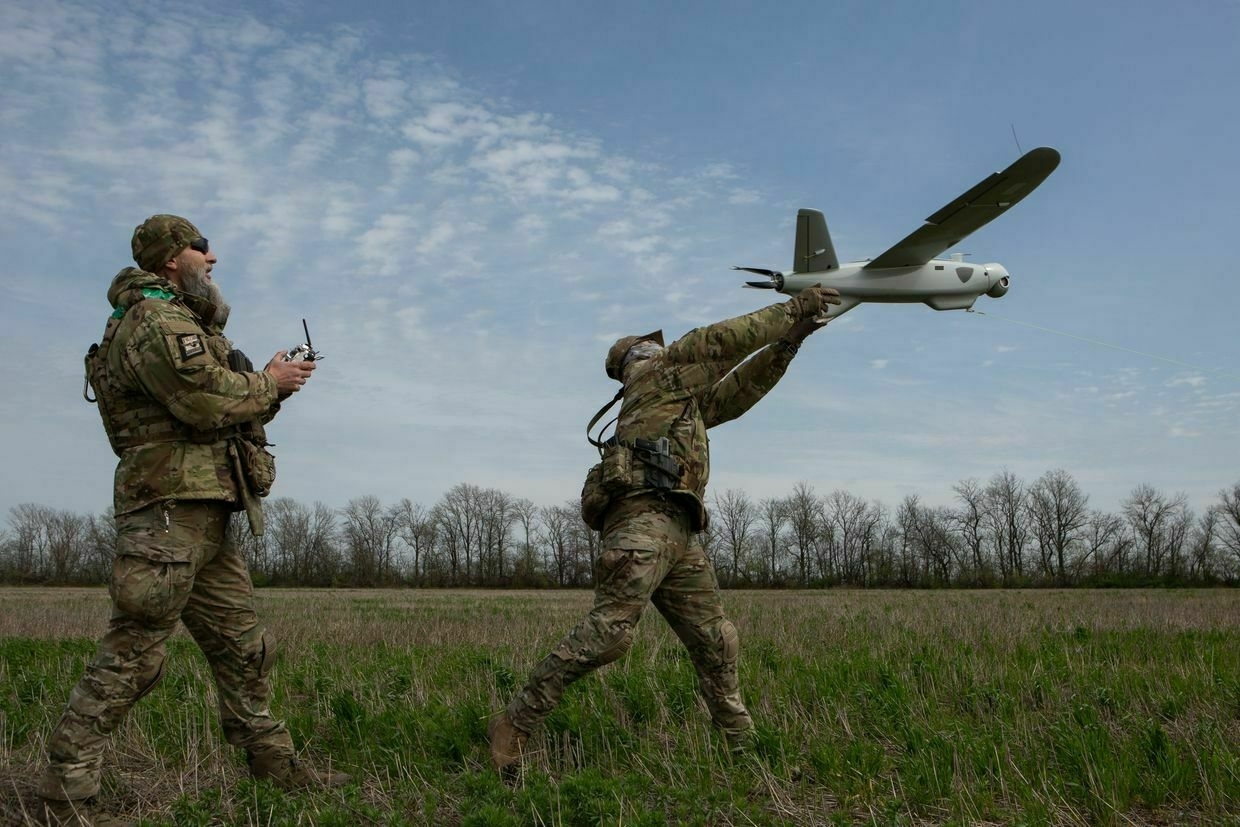
Fico to vist Moscow May 9 despite EU warning
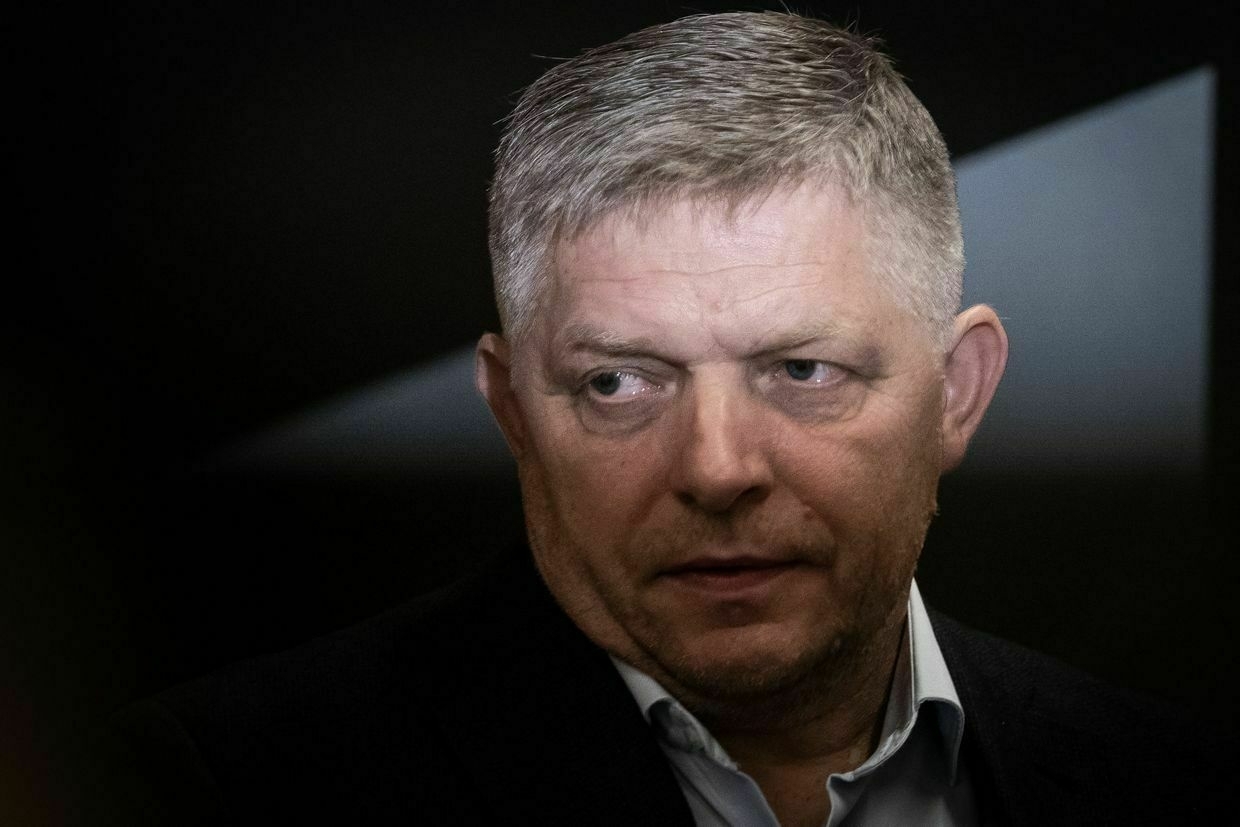
Slovak Prime Minister Robert Fico will attend Russia’s military celebrations in Moscow on May 9, despite EU High Representative Kaja Kallas' warnings to European leaders.
“I am going to Moscow on May 9,” Fico wrote in a Facebook post published April 15.
Kallas earlier in the day urged European leaders to boycott the event in solidarity with Ukraine. Participation in the Moscow celebrations “will not be taken lightly on the European side, considering that Russia is really waging a full-scale war in Europe,” she said.
In his post, Fico addressed Kallas' warning directly and insisted he had the right to visit Moscow.
“Ms. Kallas, I would like to inform you that I am the legitimate Prime Minister of Slovakia — a sovereign country,” he wrote. “No one can tell me where I should or should not travel. I will go to Moscow to pay my respects to the thousands of Red Army soldiers who died liberating the Slovak Republic."
Russian President Vladimir Putin’s government has reportedly invited a number of world leaders to attend events marking the 80th anniversary of the Soviet Union’s victory over Nazi Germany. In addition to EU member Slovakia and EU candidate Serbia, the Kremlin has invited leaders from China, India, and Brazil.
Russia has repeatedly used historical commemorations to justify its invasion of Ukraine, with Putin falsely claiming the war is an attempt to “denazify” the country.
Fico initially announced his plans to attend the May 9 parades in November 2024. A month later, Fico traveled to Moscow for a meeting with Putin, becoming the third EU leader to do so since the start of the full-scale invasion.
The meeting with Putin precipitated large-scale protests in Slovakia, with demonstrators denouncing Fico’s Kremlin-friendly policies. In addition to seeking warmer ties with Moscow, Fico has made comments justifying Russia’s invasion and has consistently opposed military aid to Ukraine.
The Ukrainian government has invited senior EU leaders and officials to Kyiv on May 9 to counter Russia’s celebration.
Our readers’ questions about the war, answered. Vol. 8Editor’s note: We asked members of the Kyiv Independent community to share the questions they have about the war. Here’s what they asked and how we answered. Join our community to ask a question in the next round. Question: Is Ukraine formulating a plan to receive and house refugees fromThe Kyiv IndependentThe Kyiv Independent
